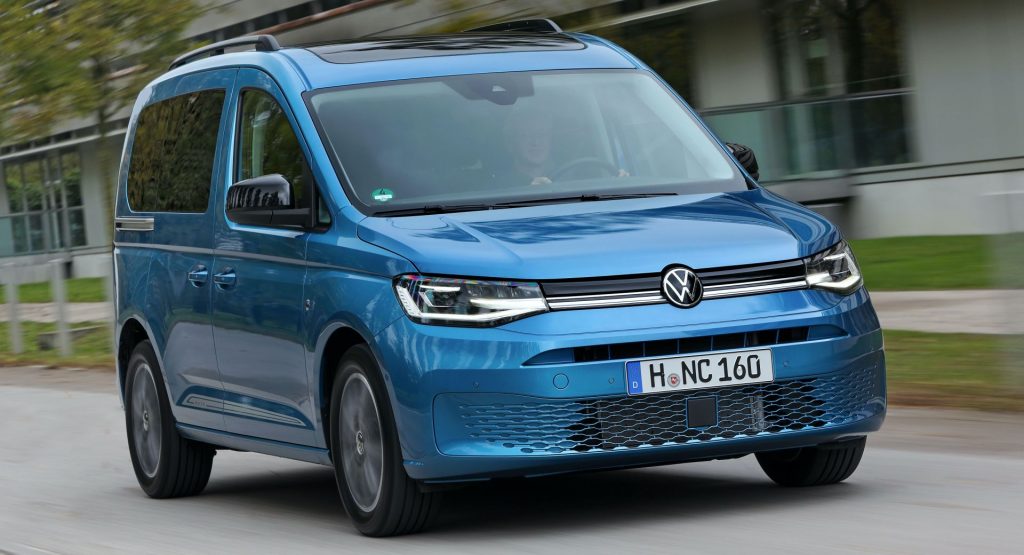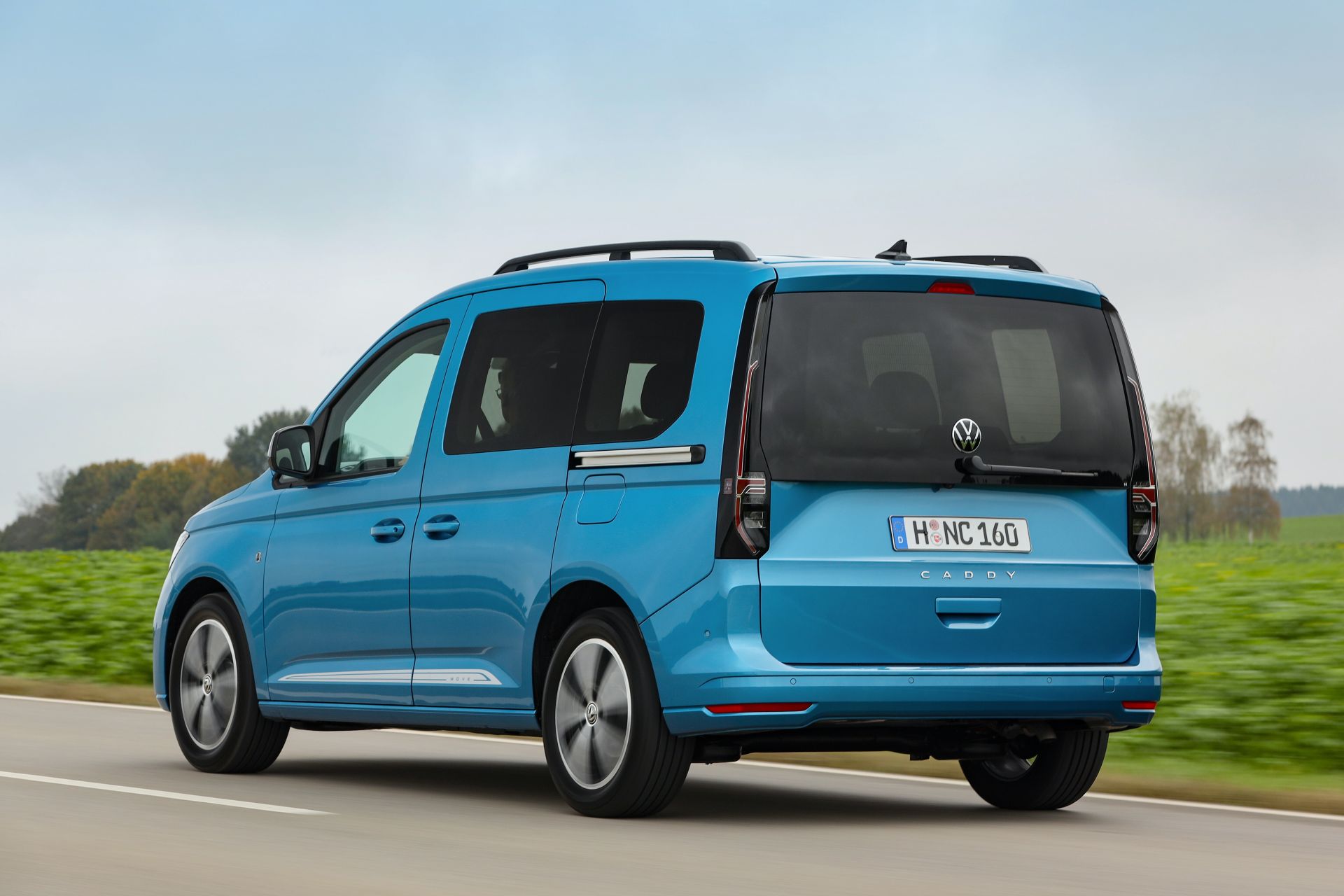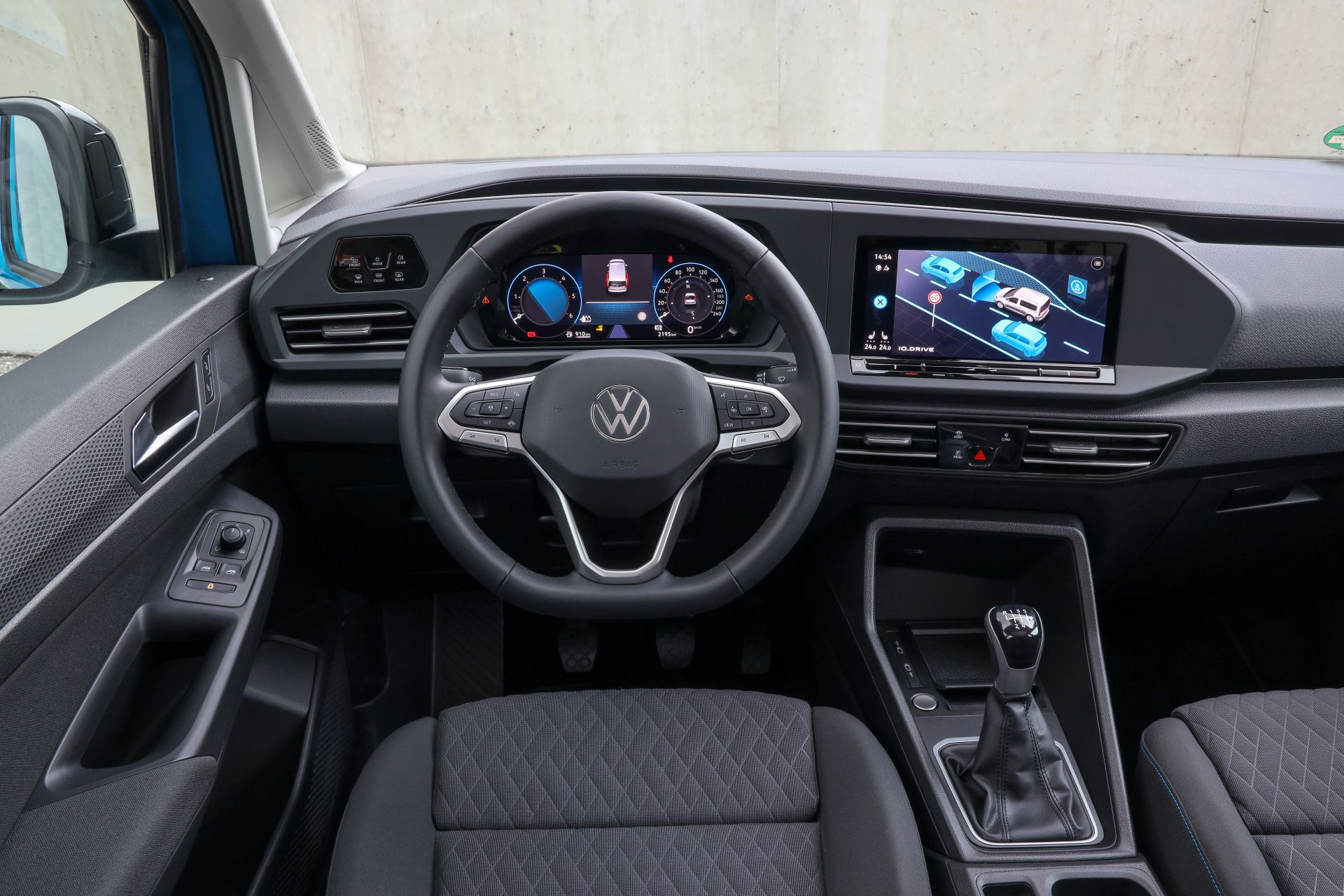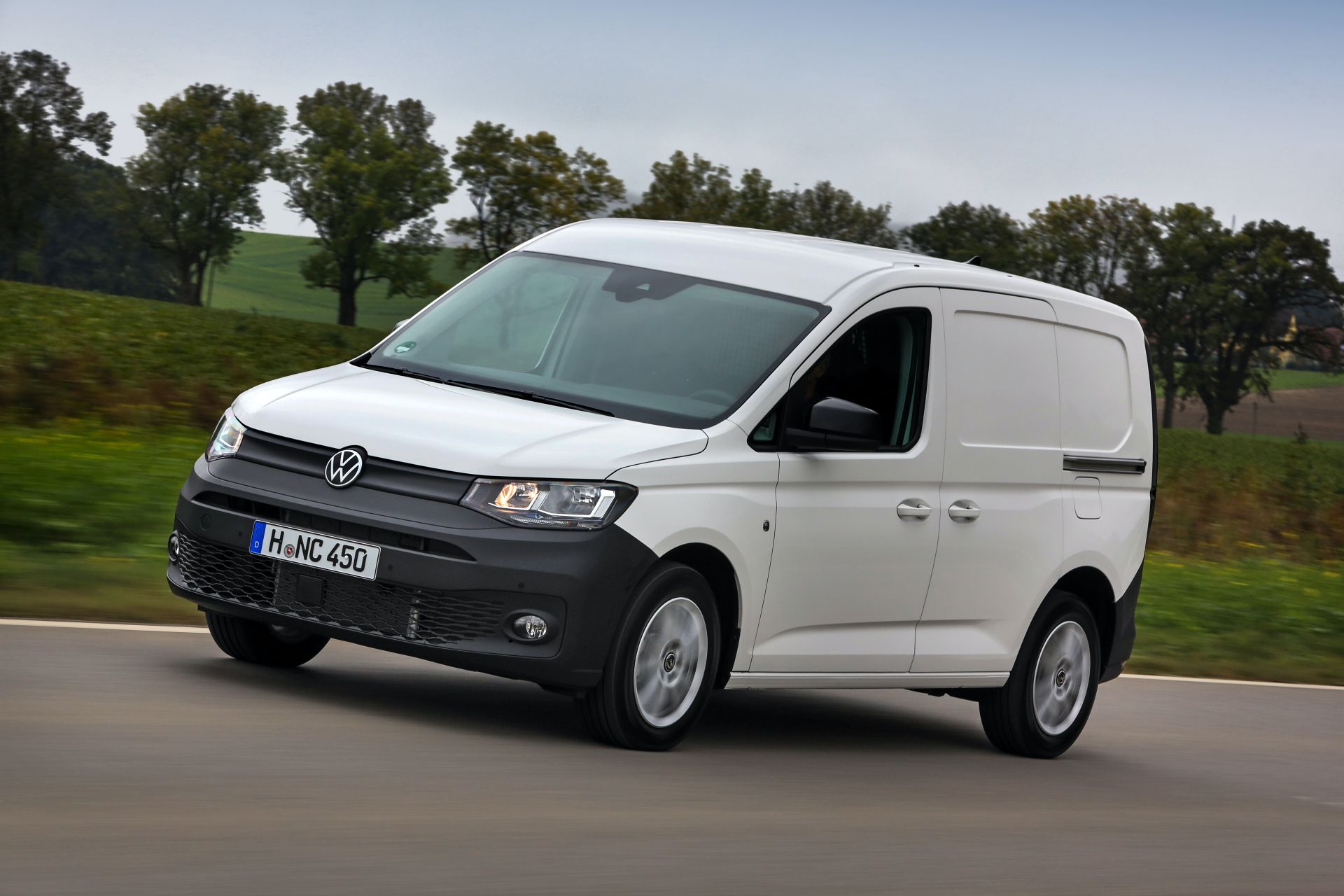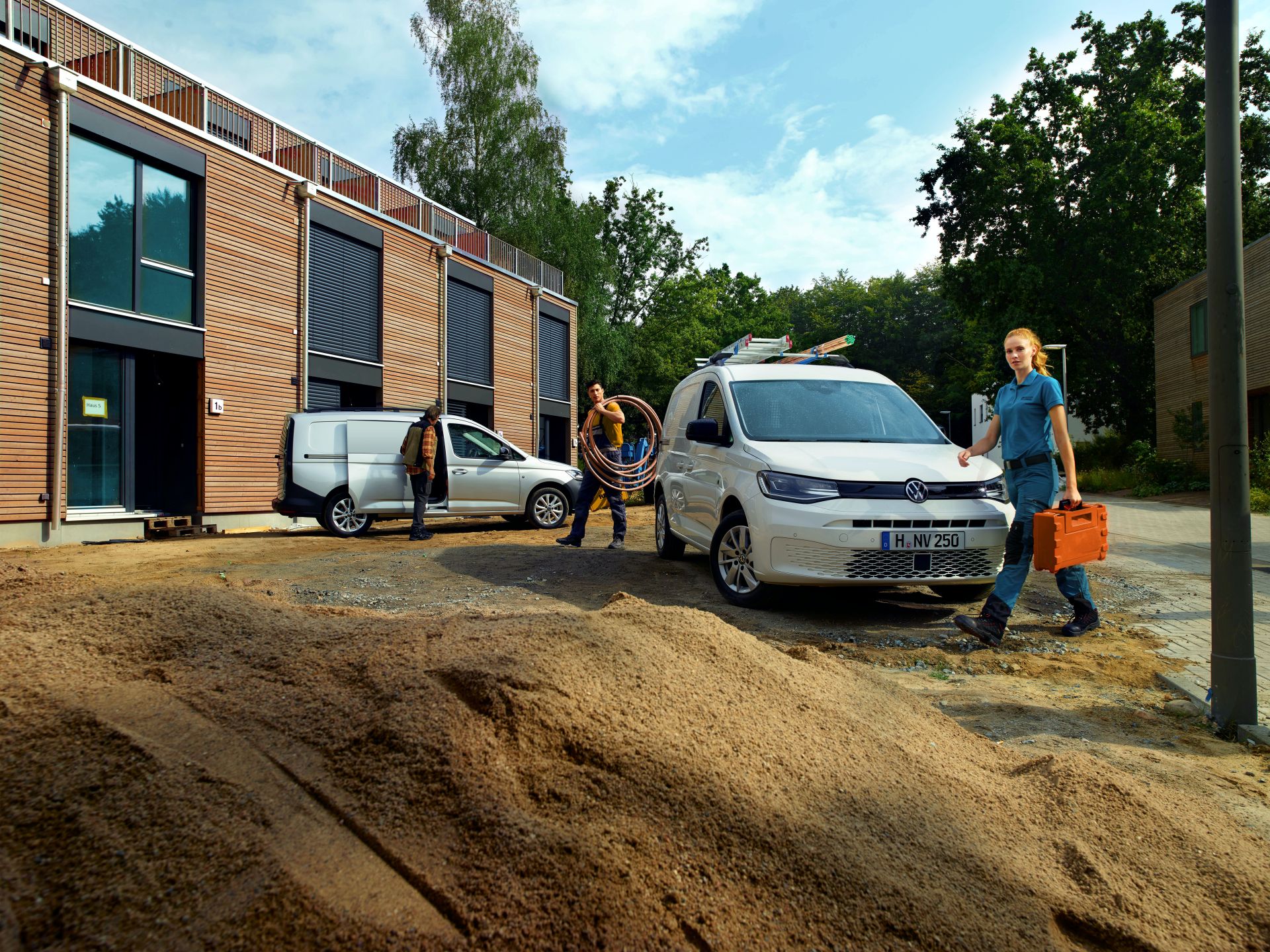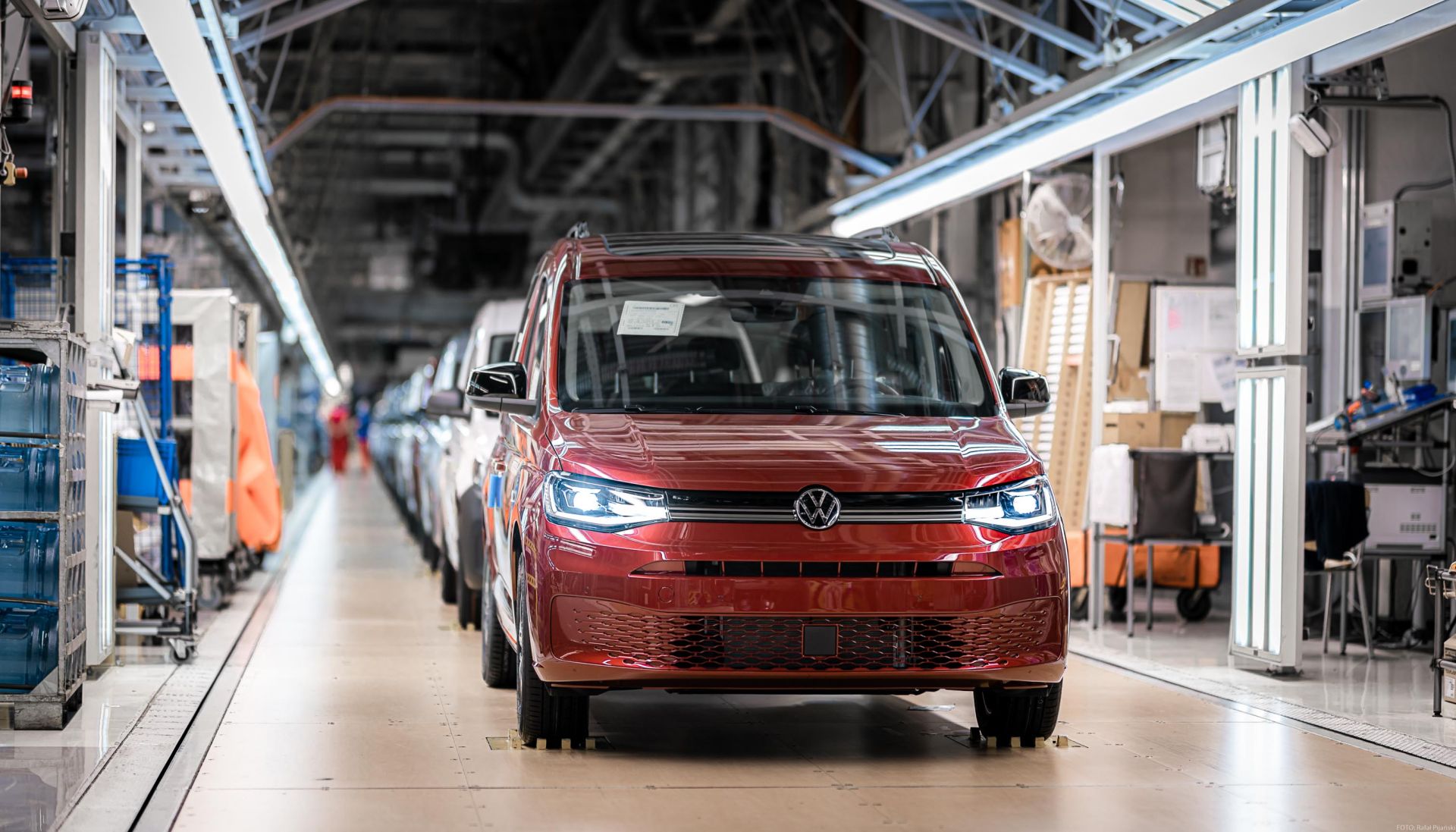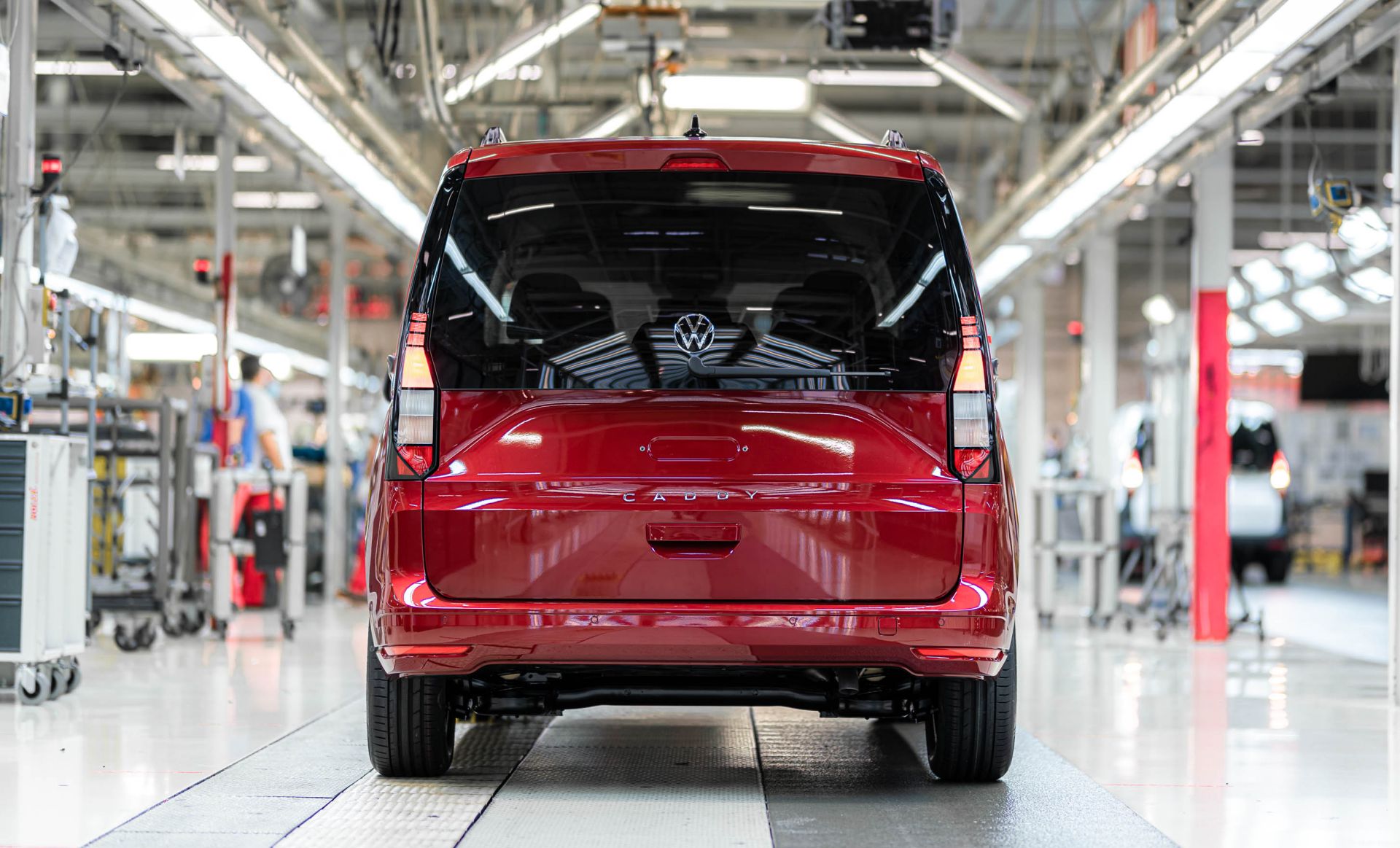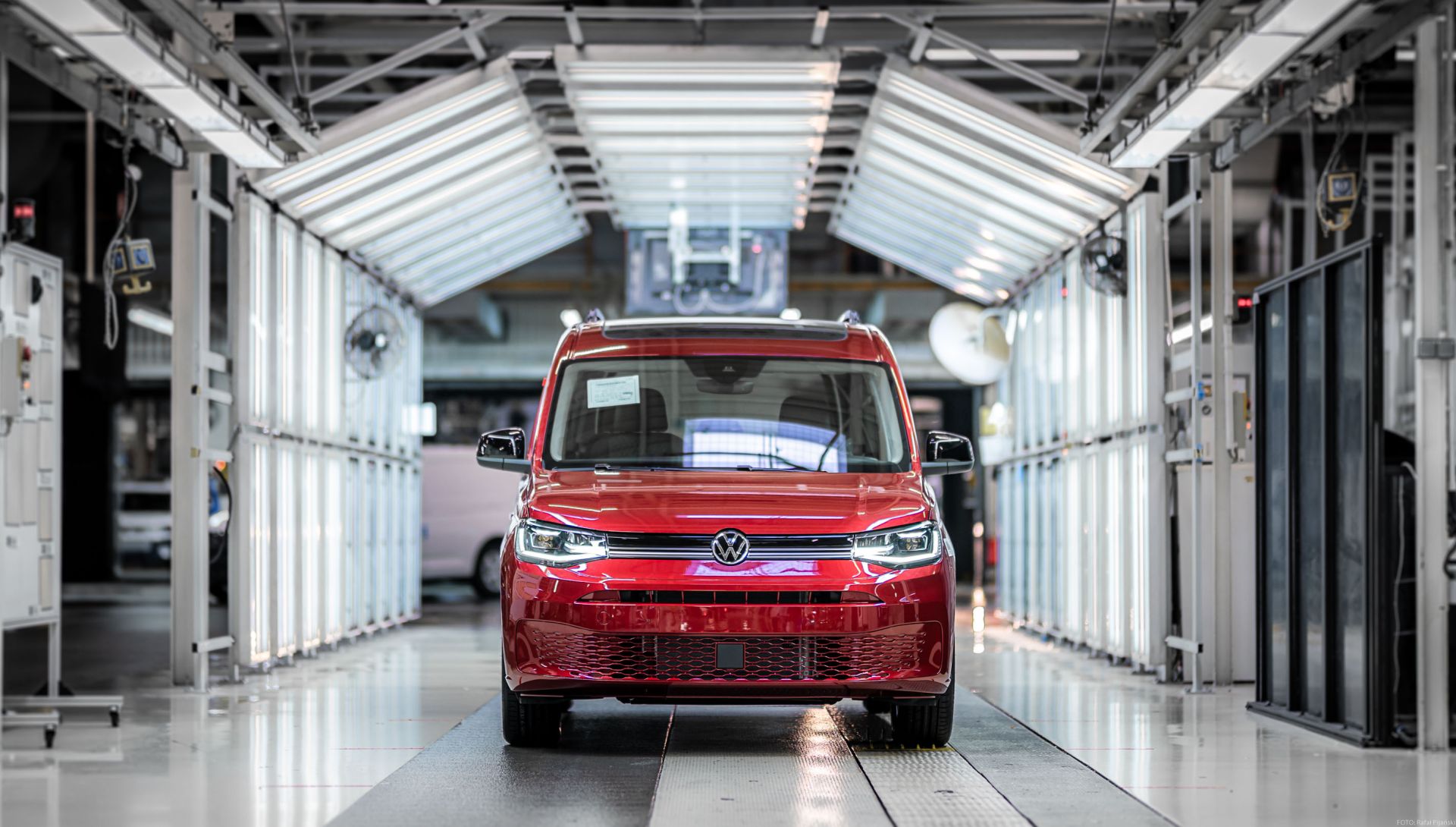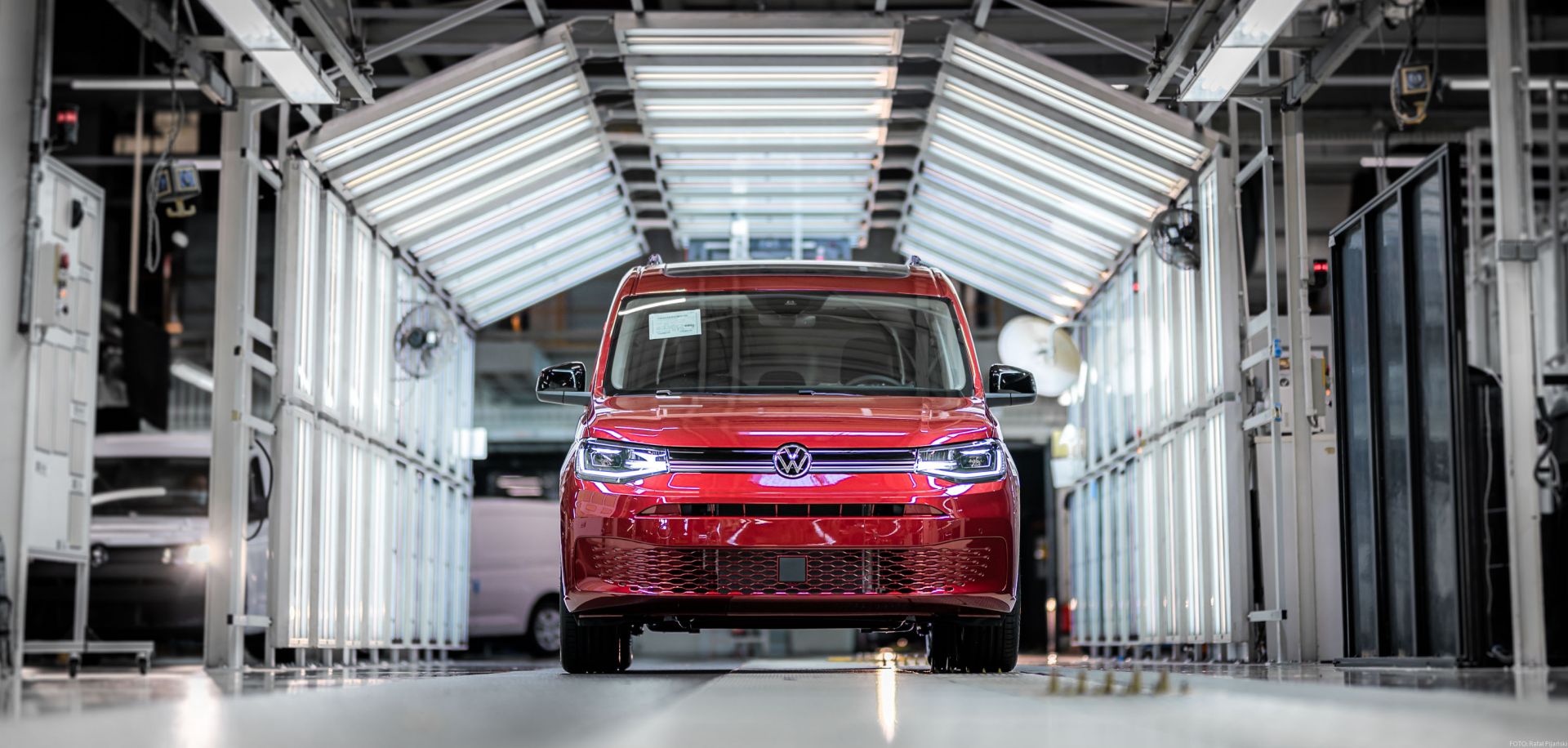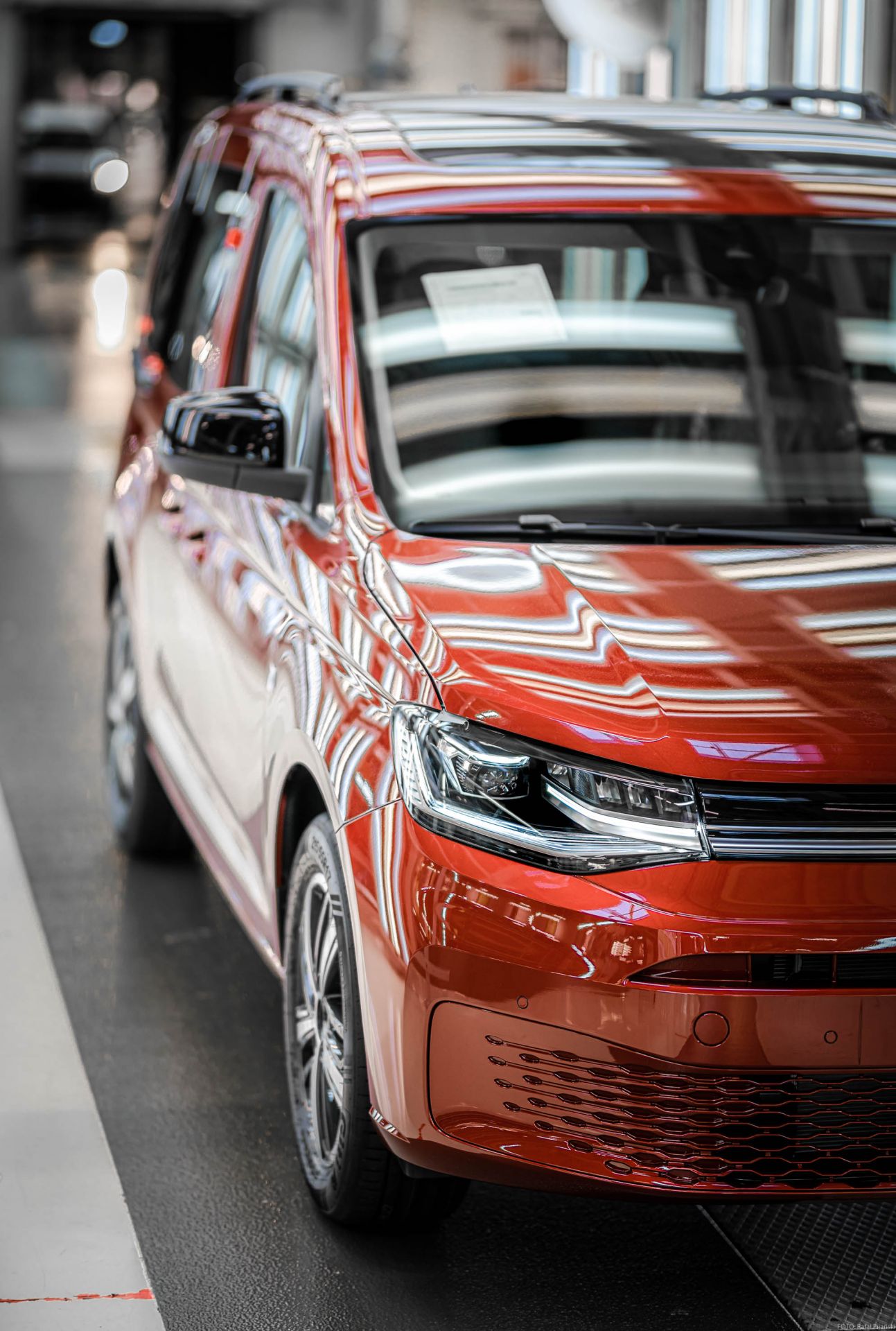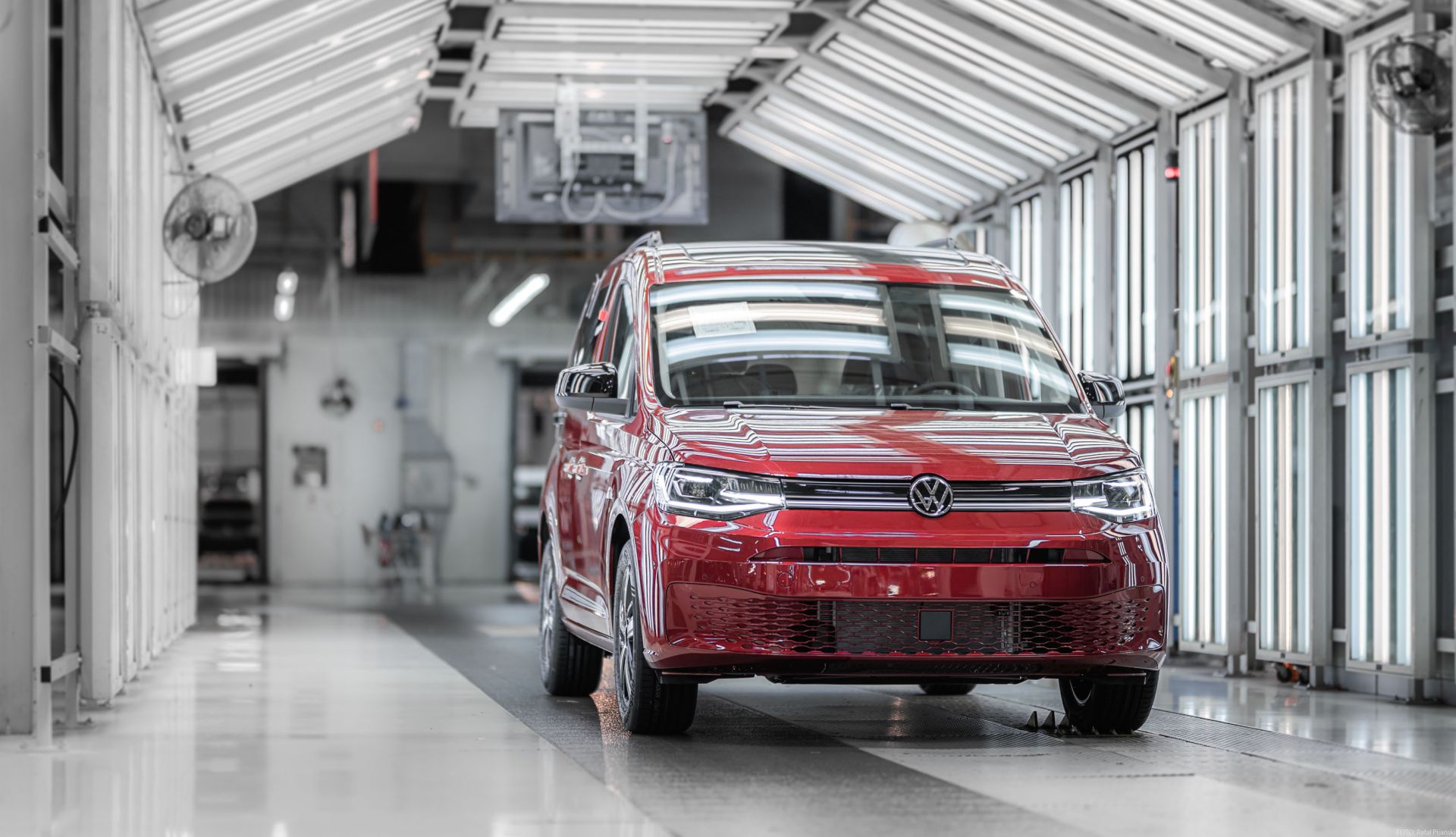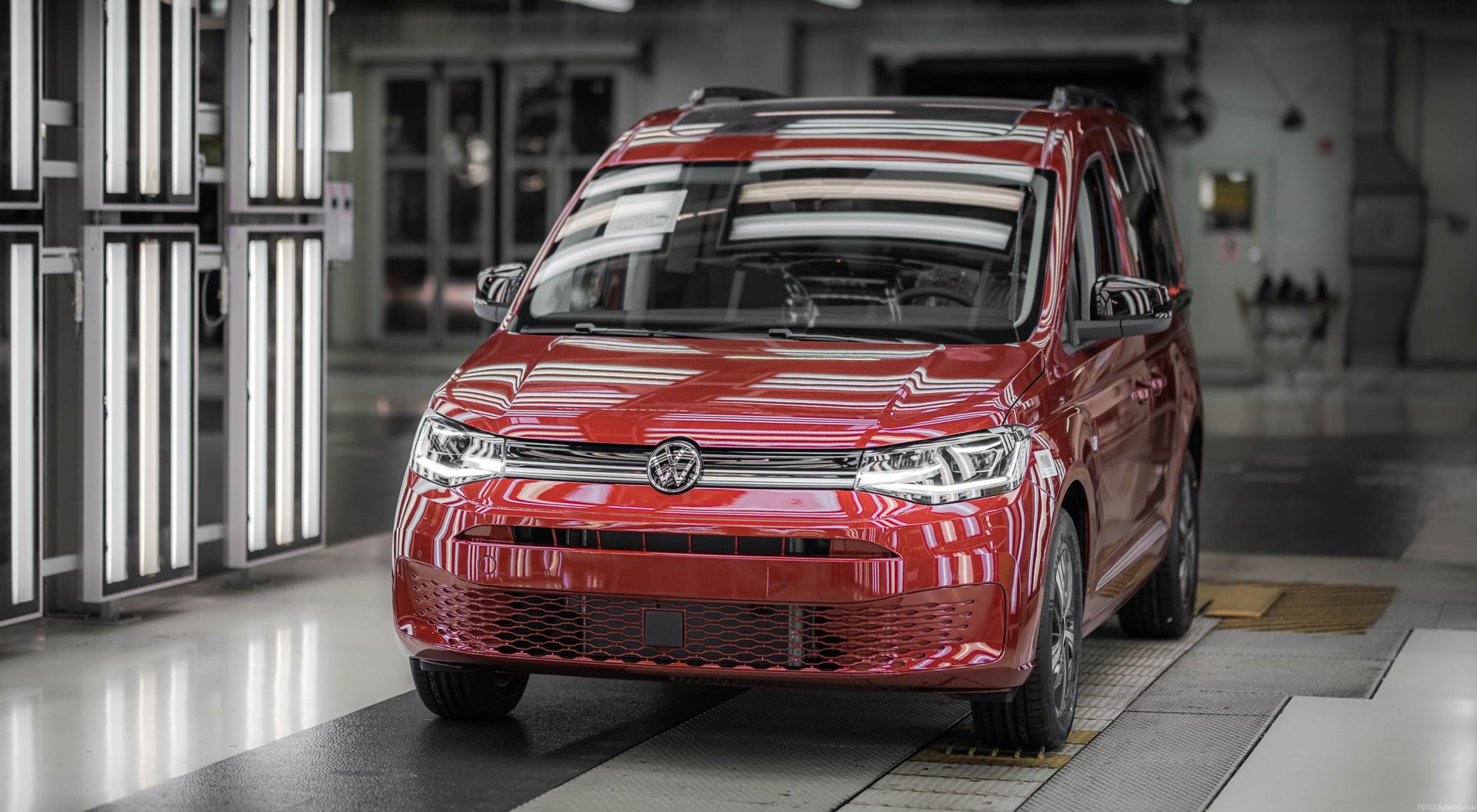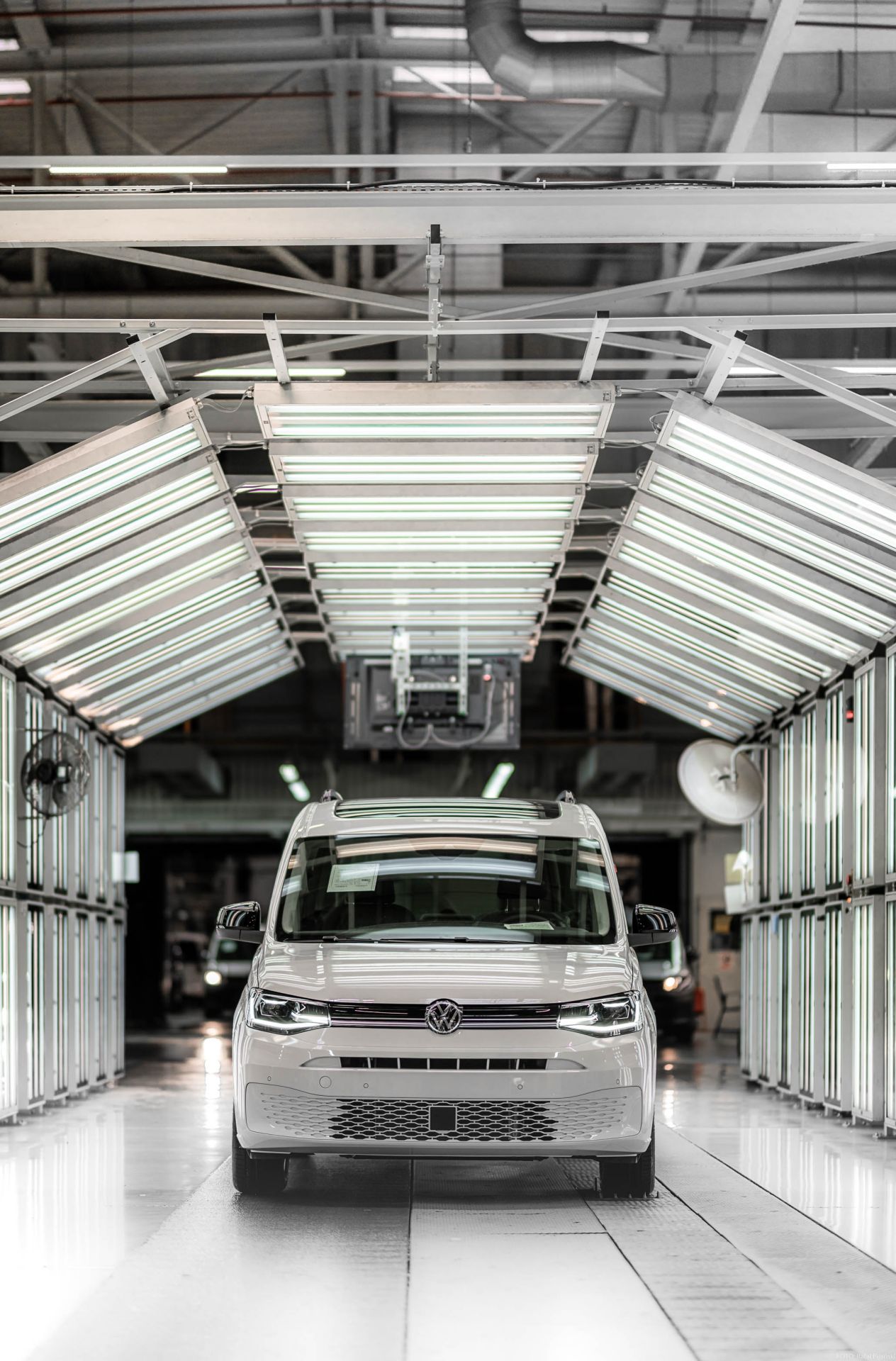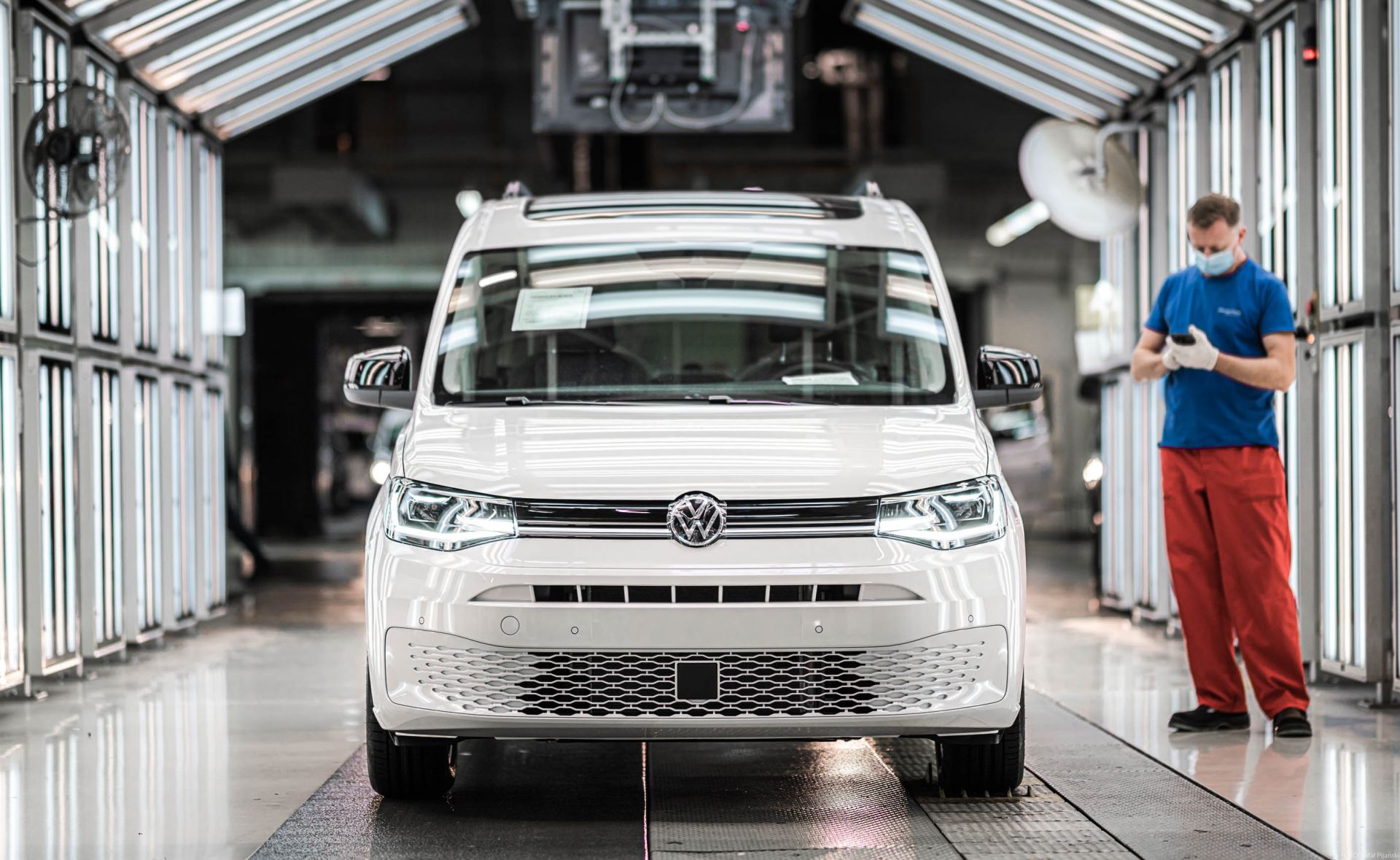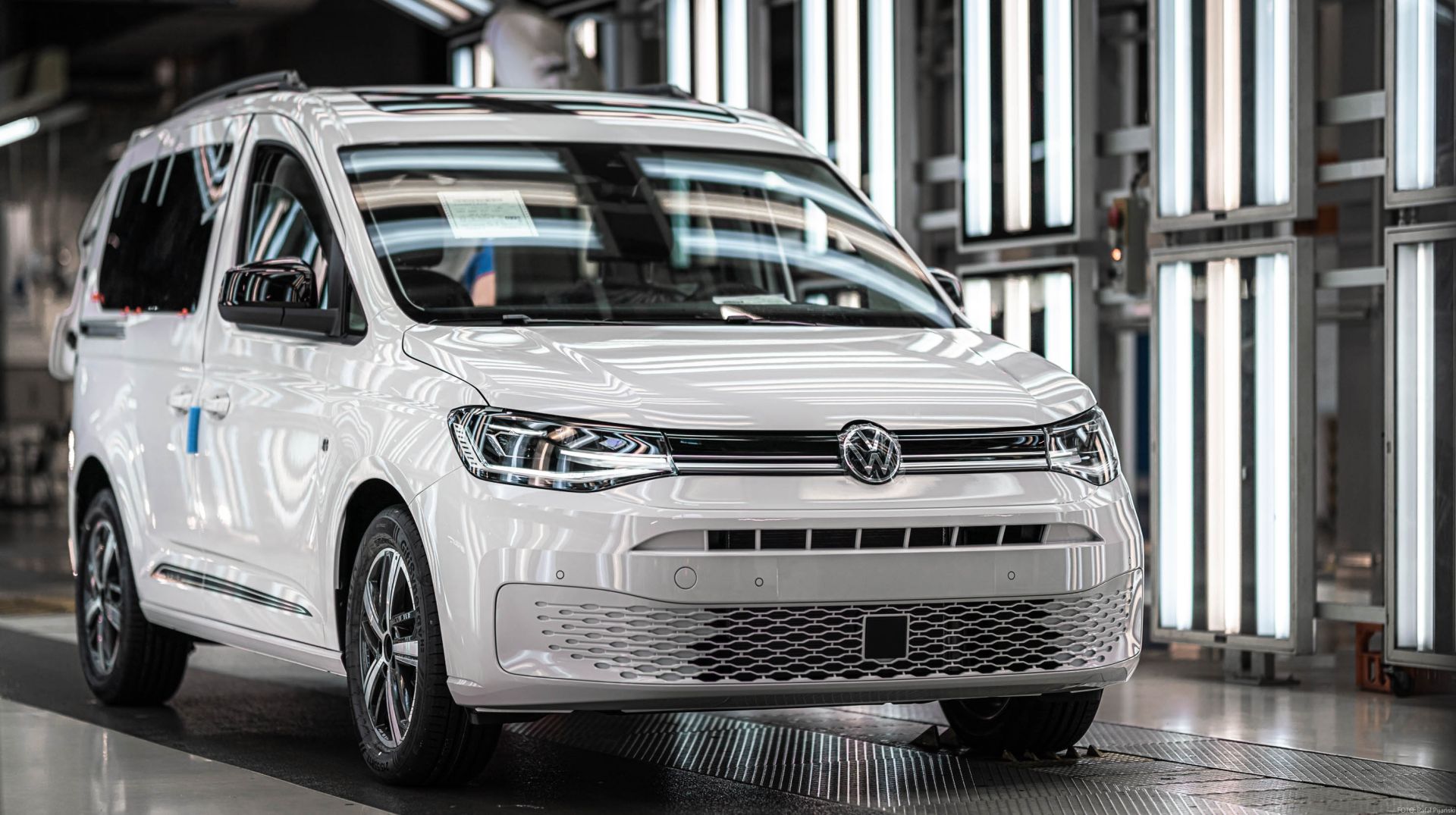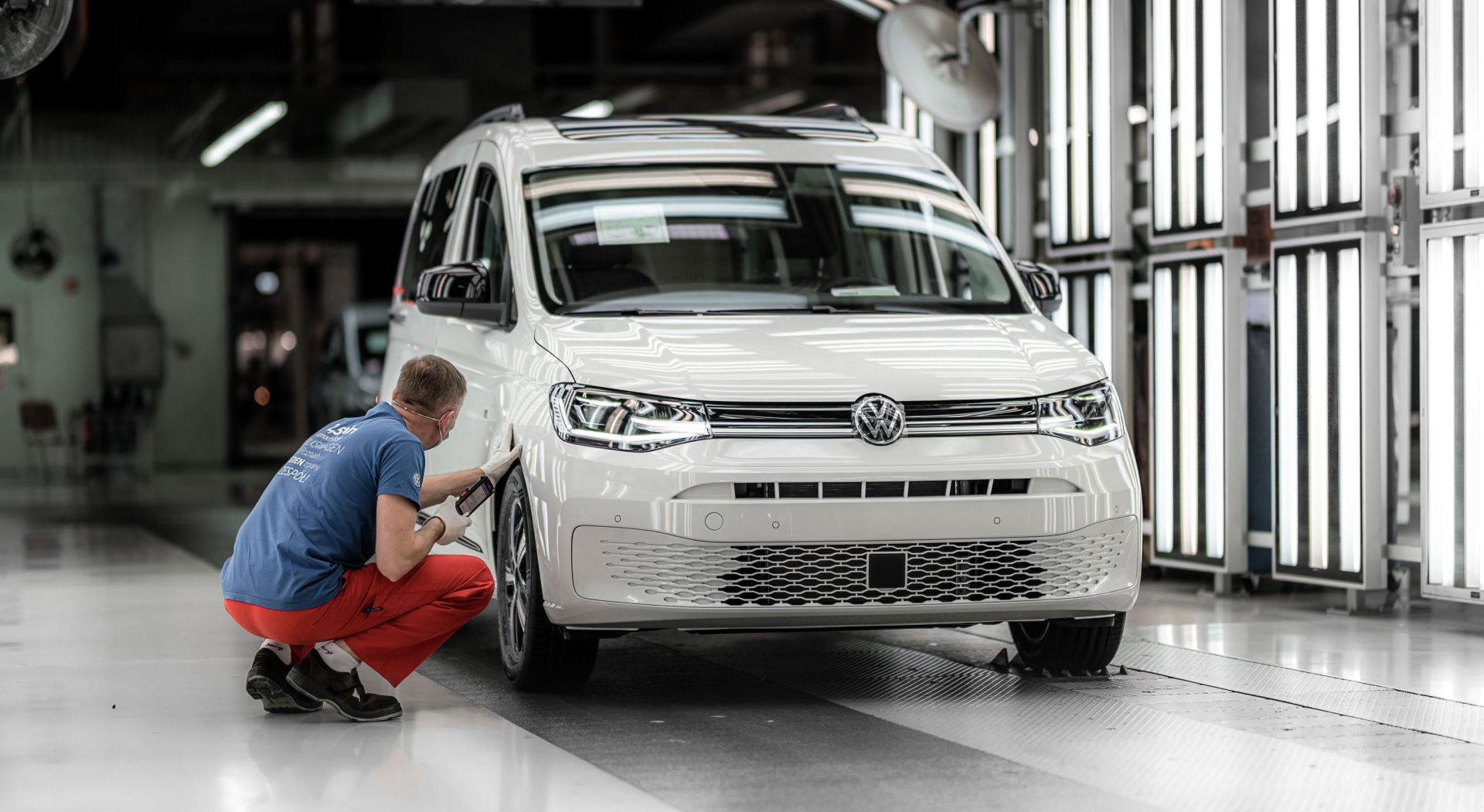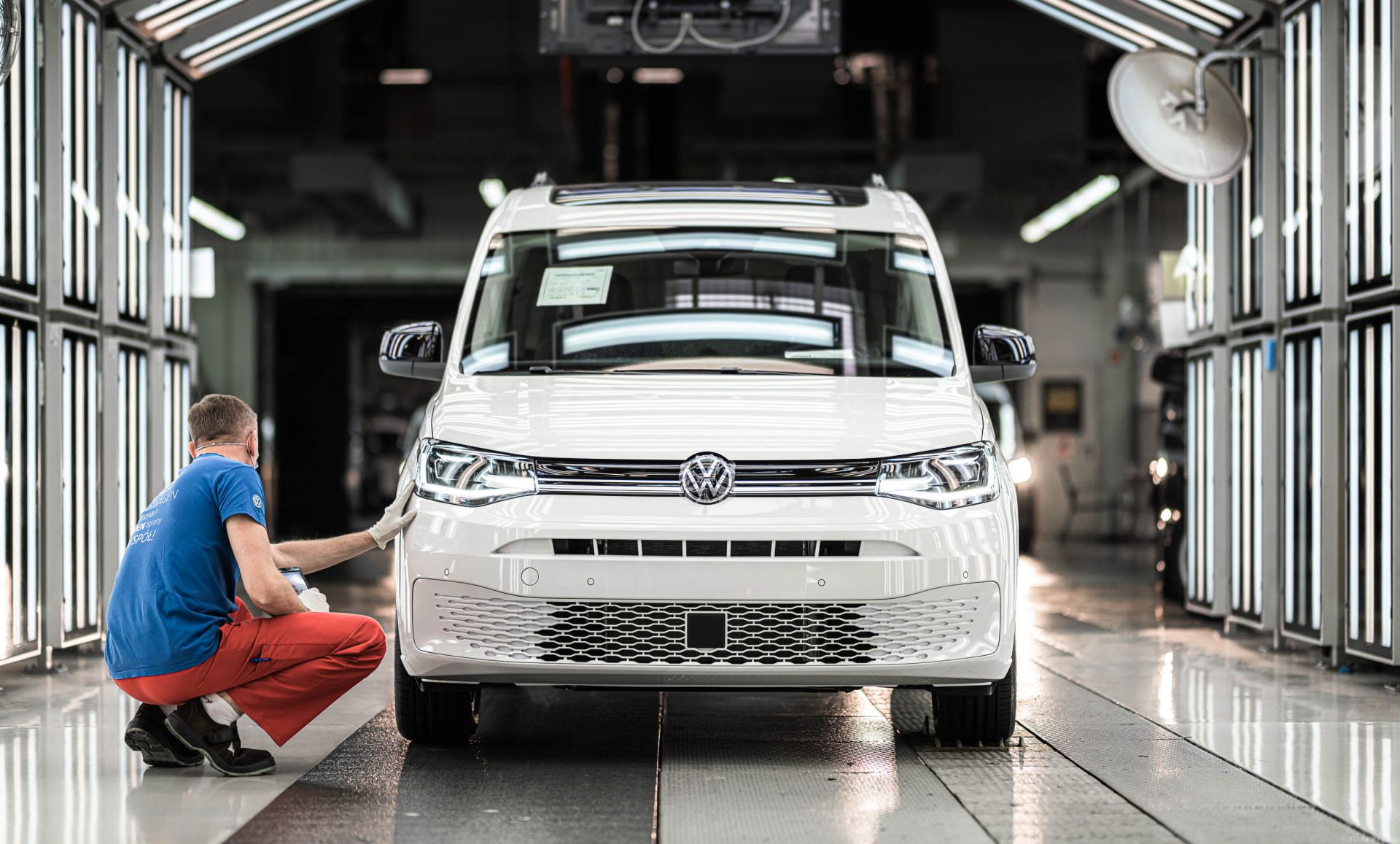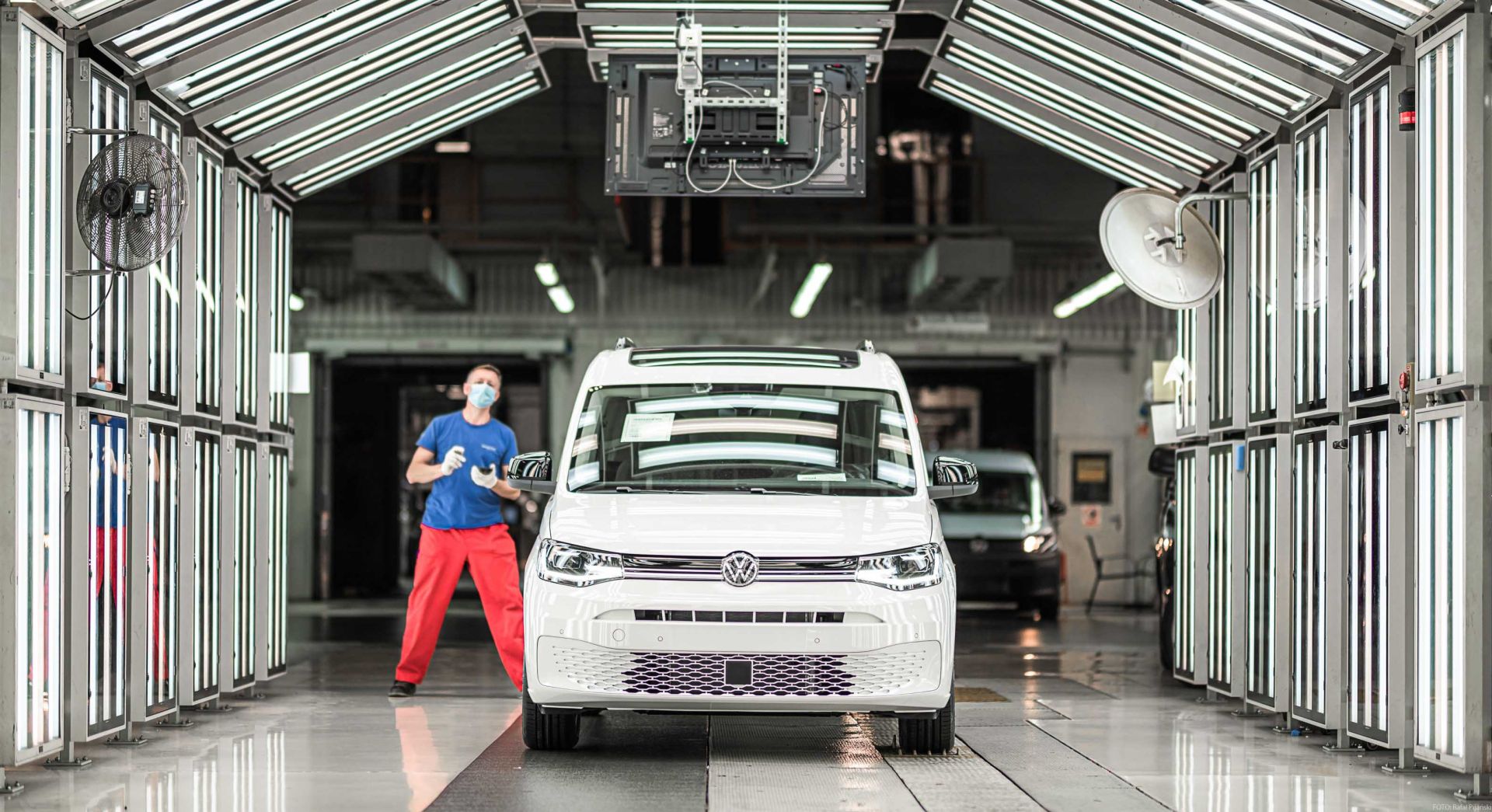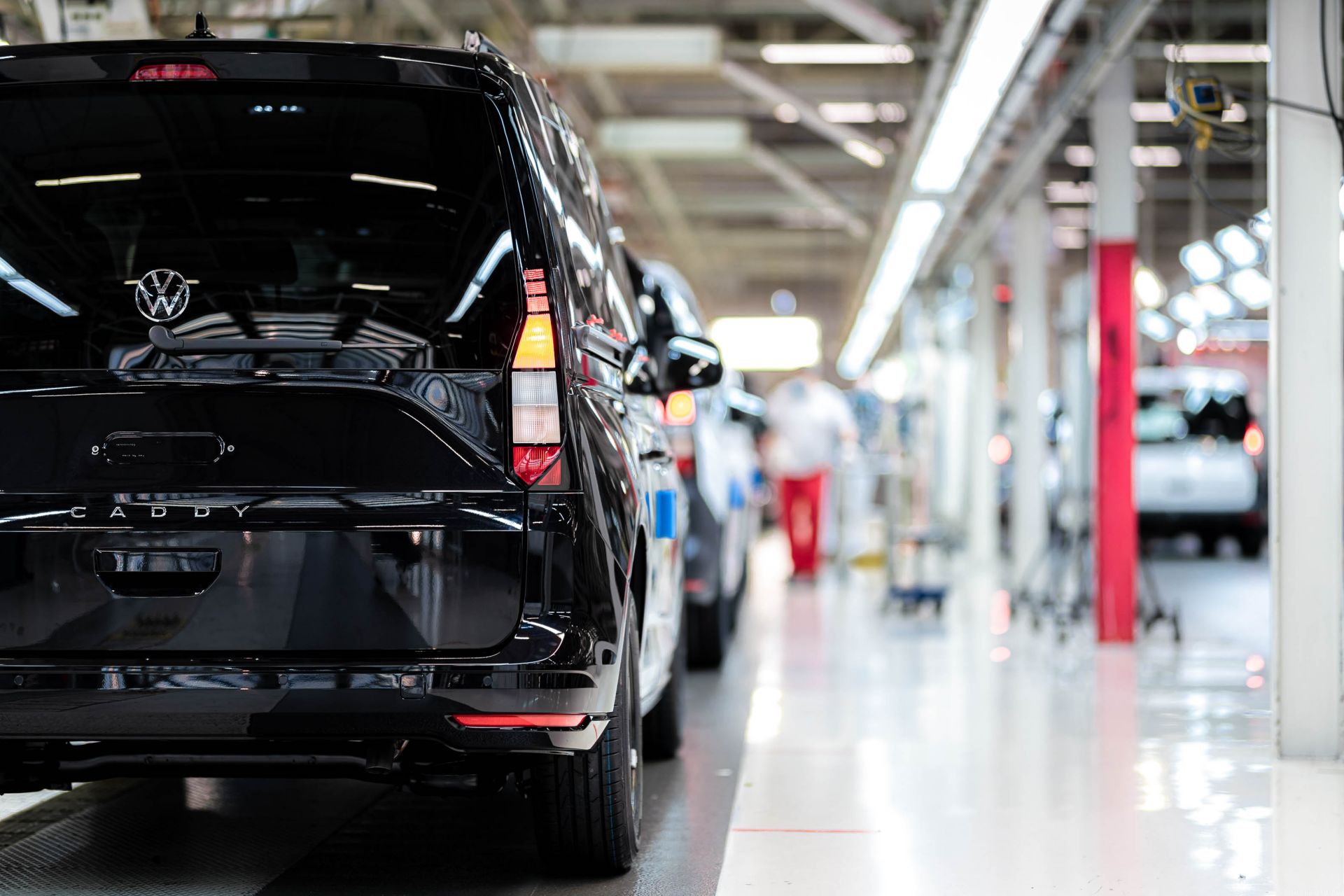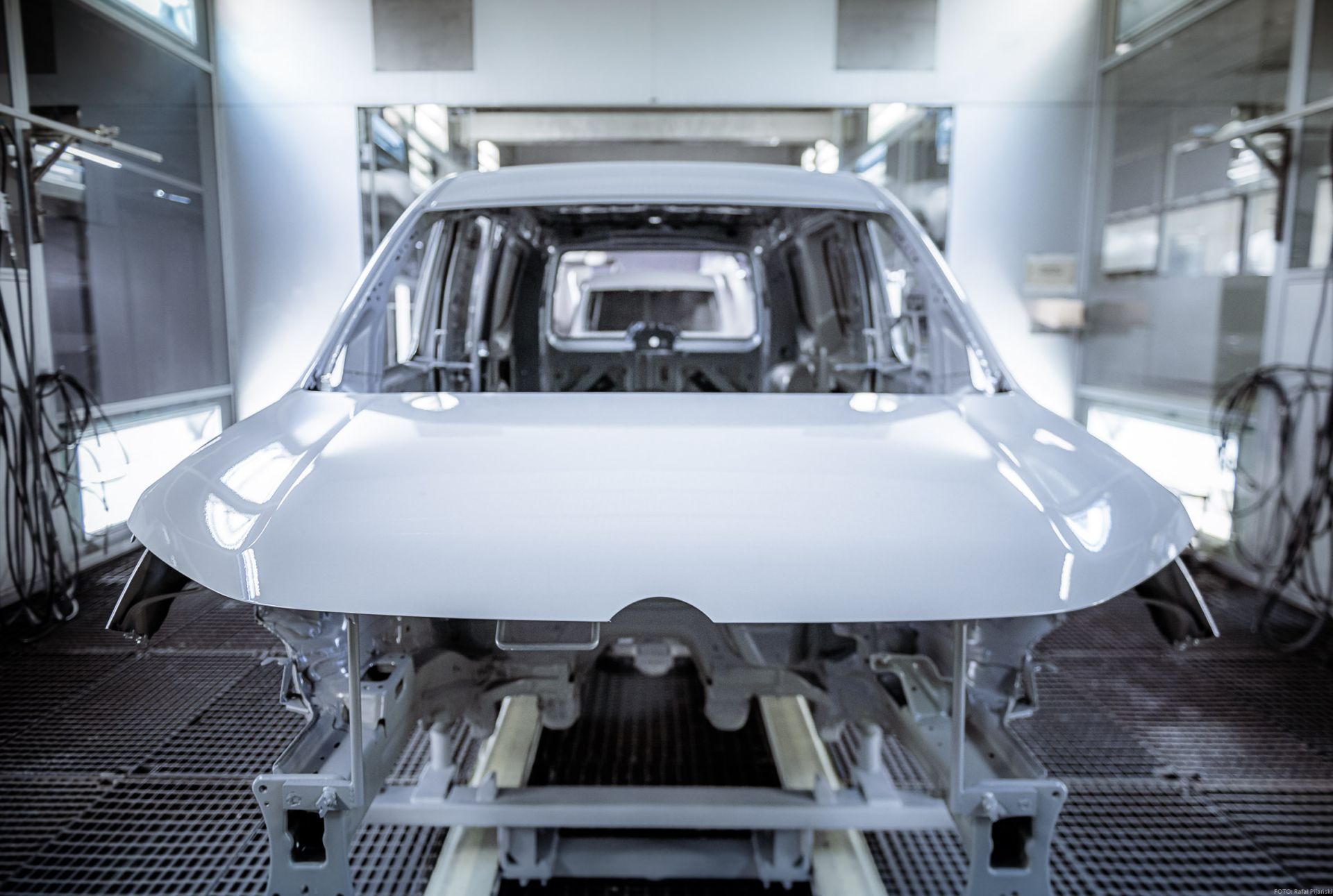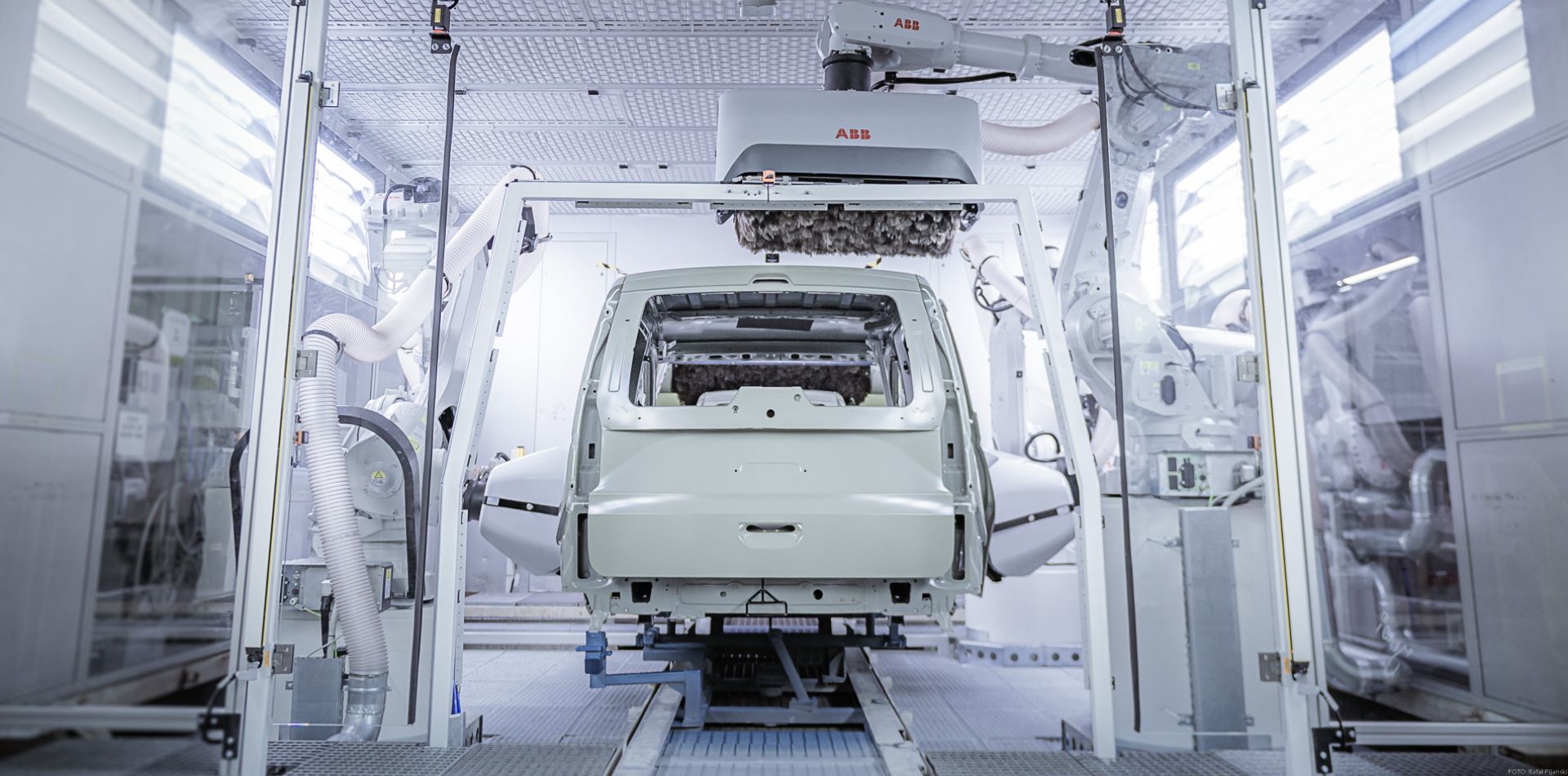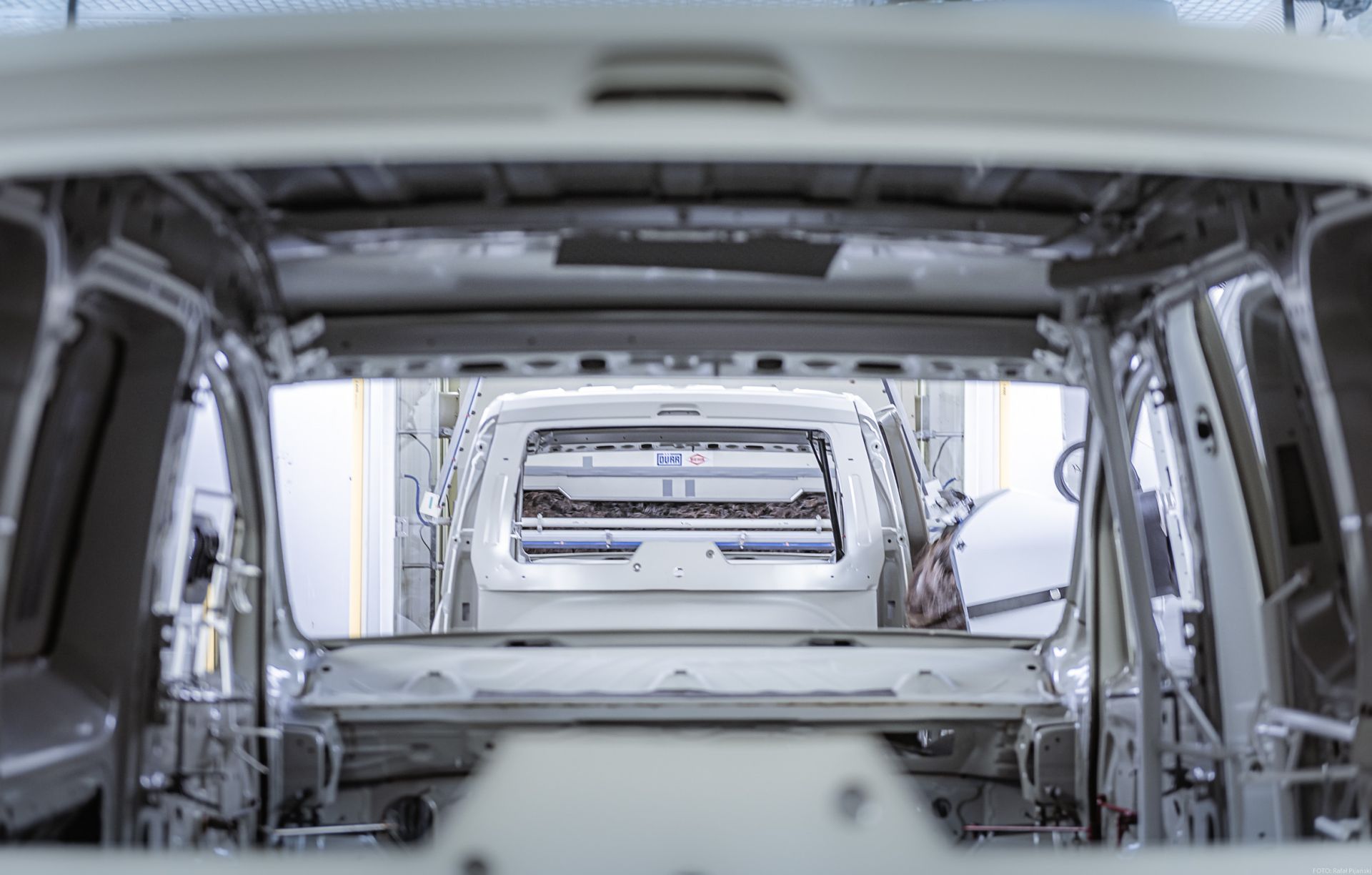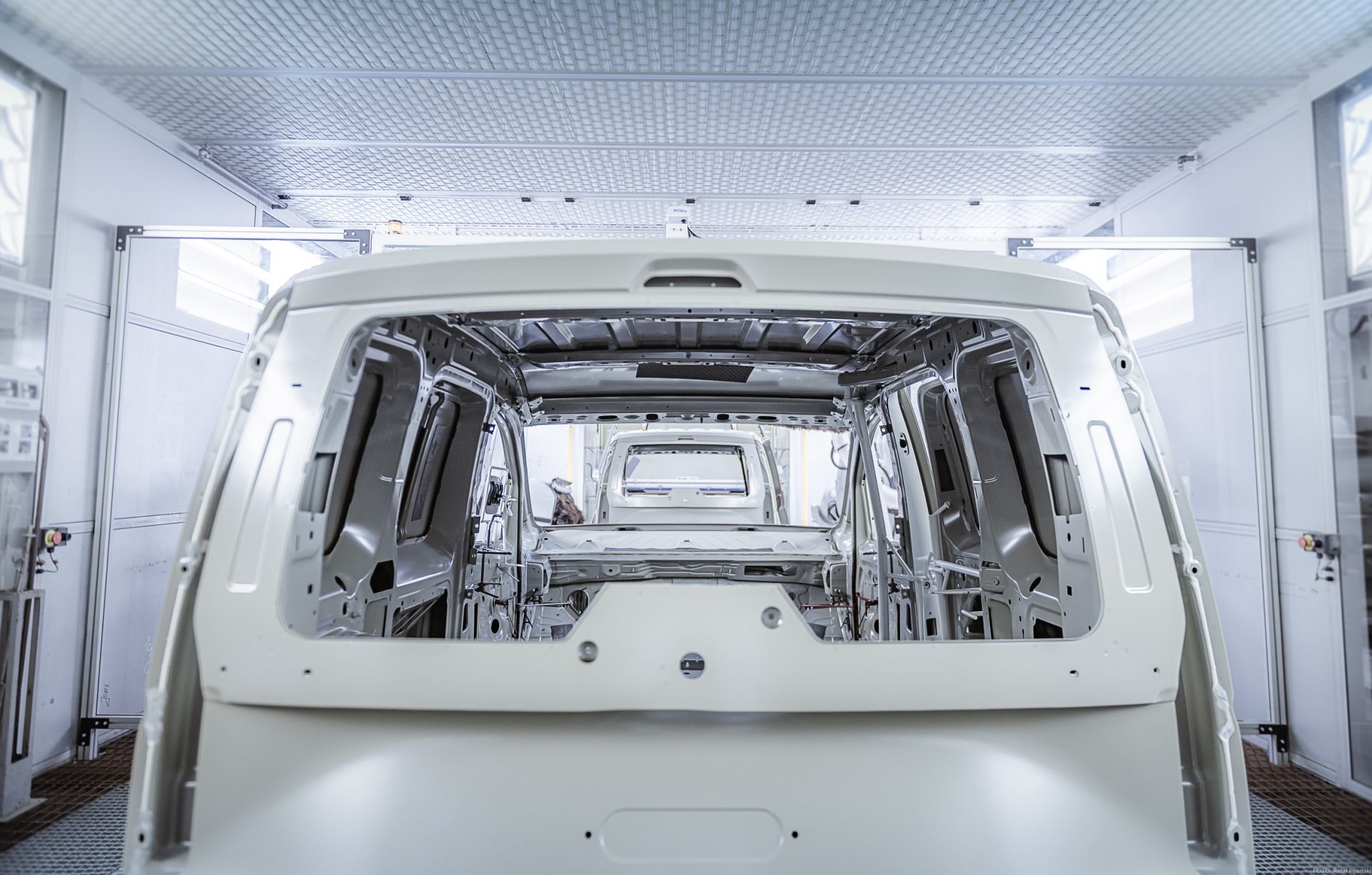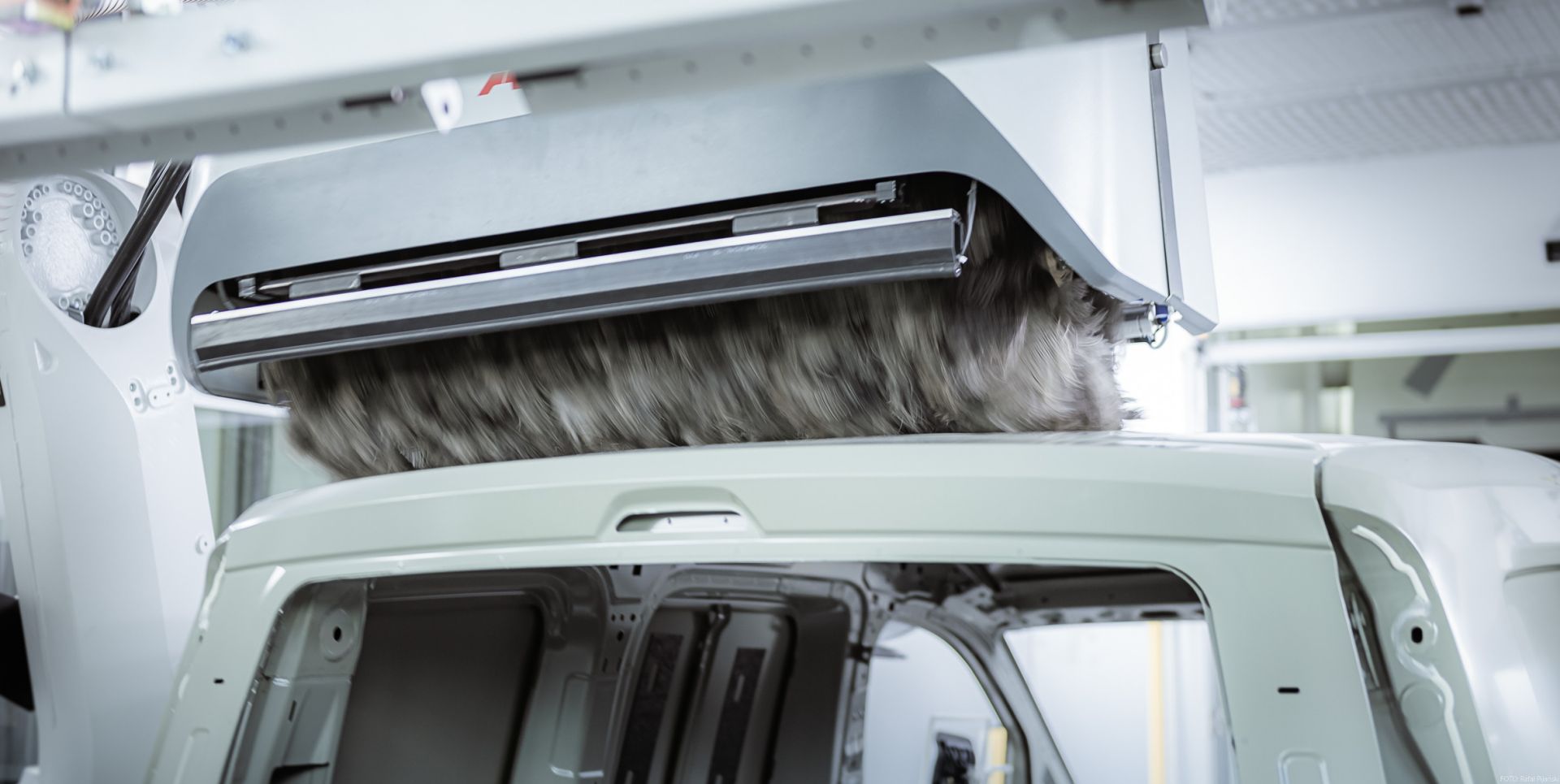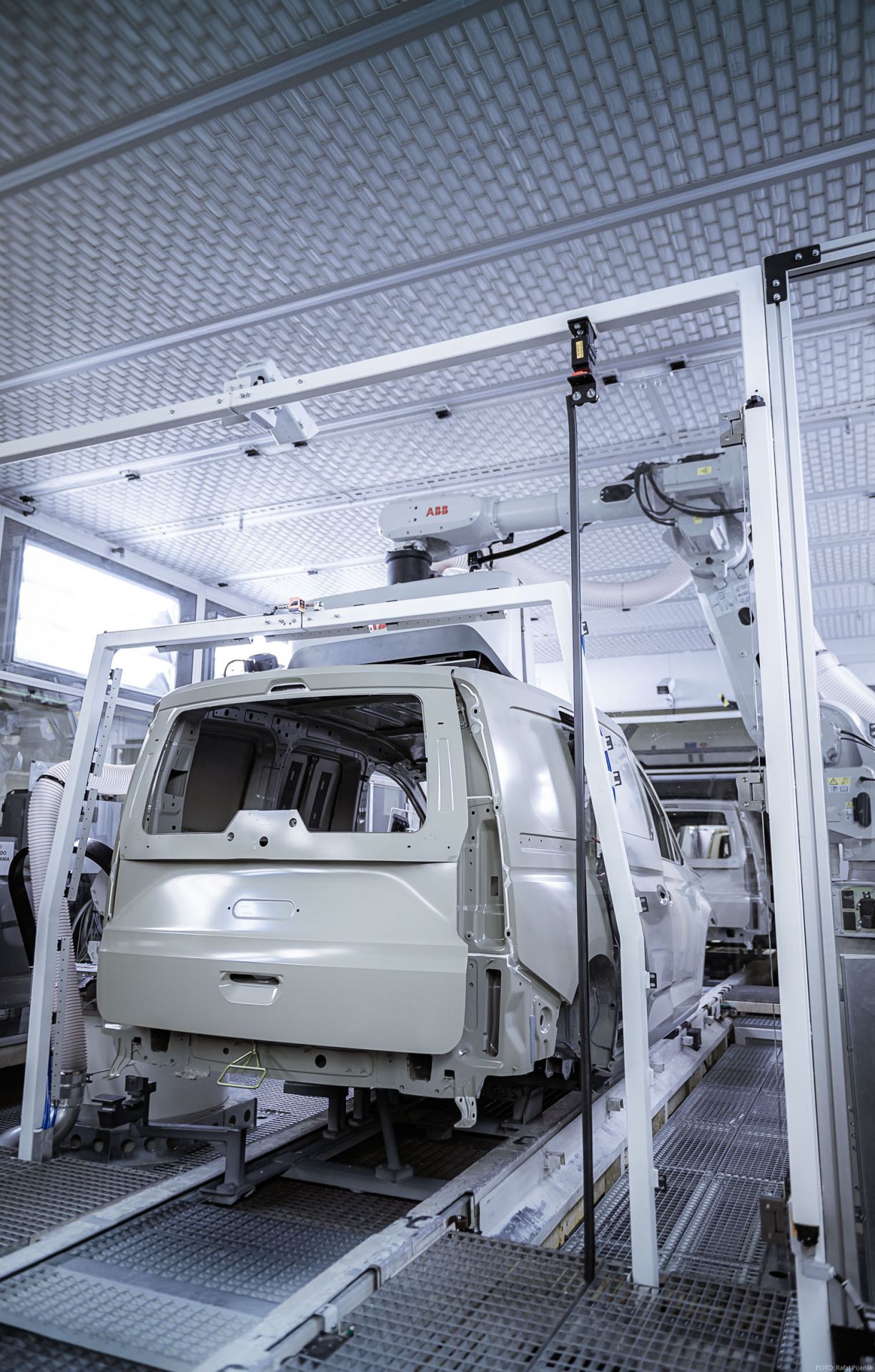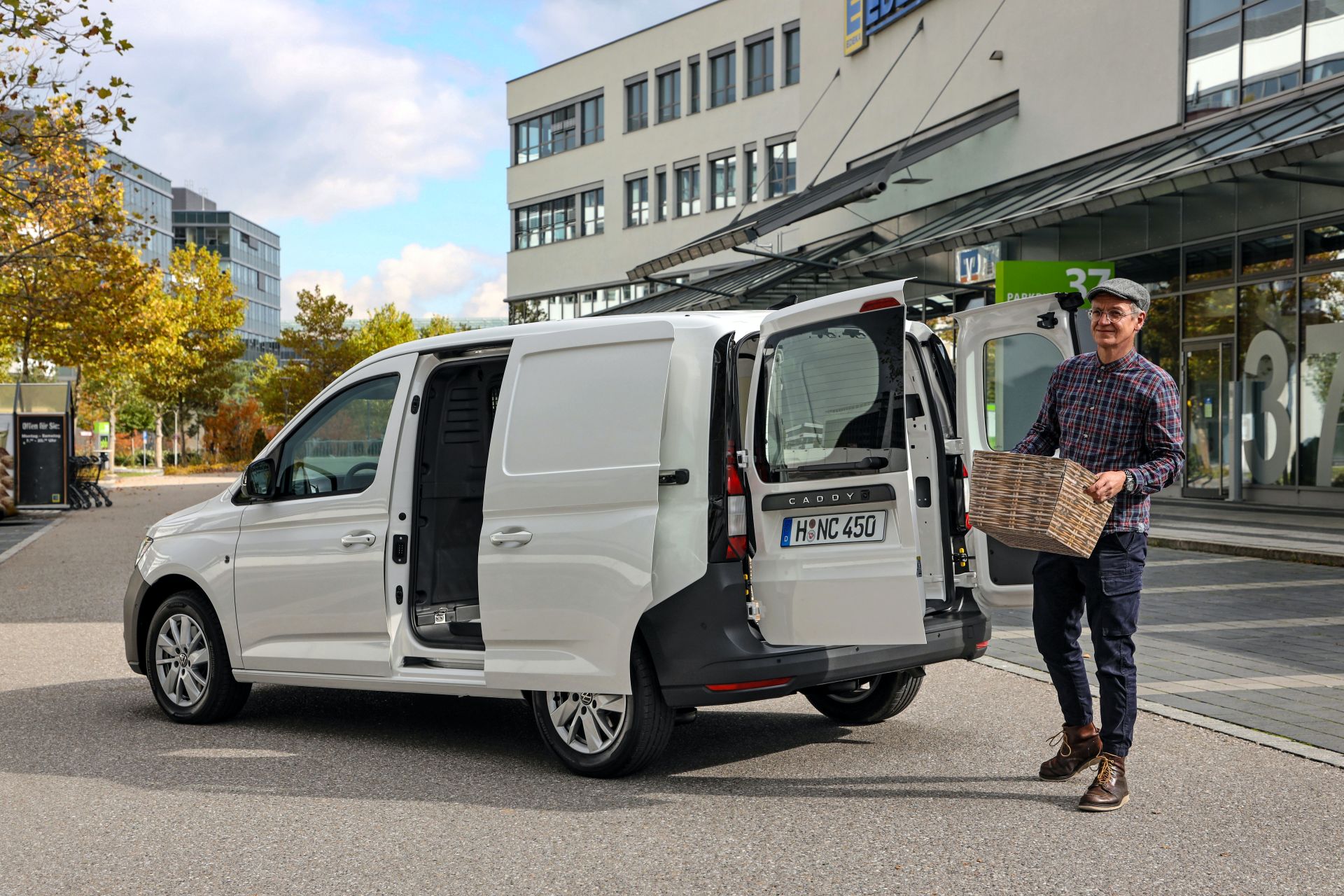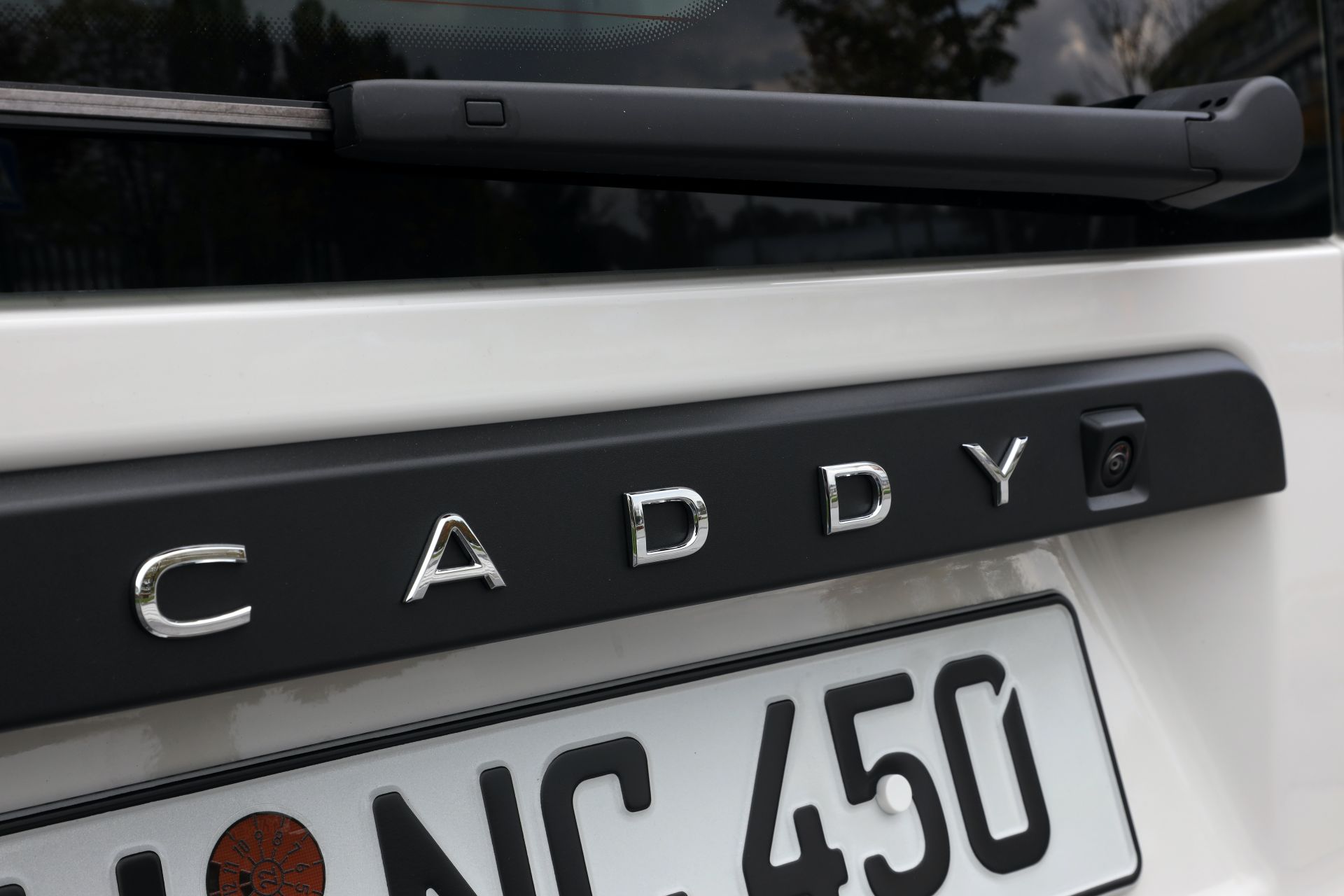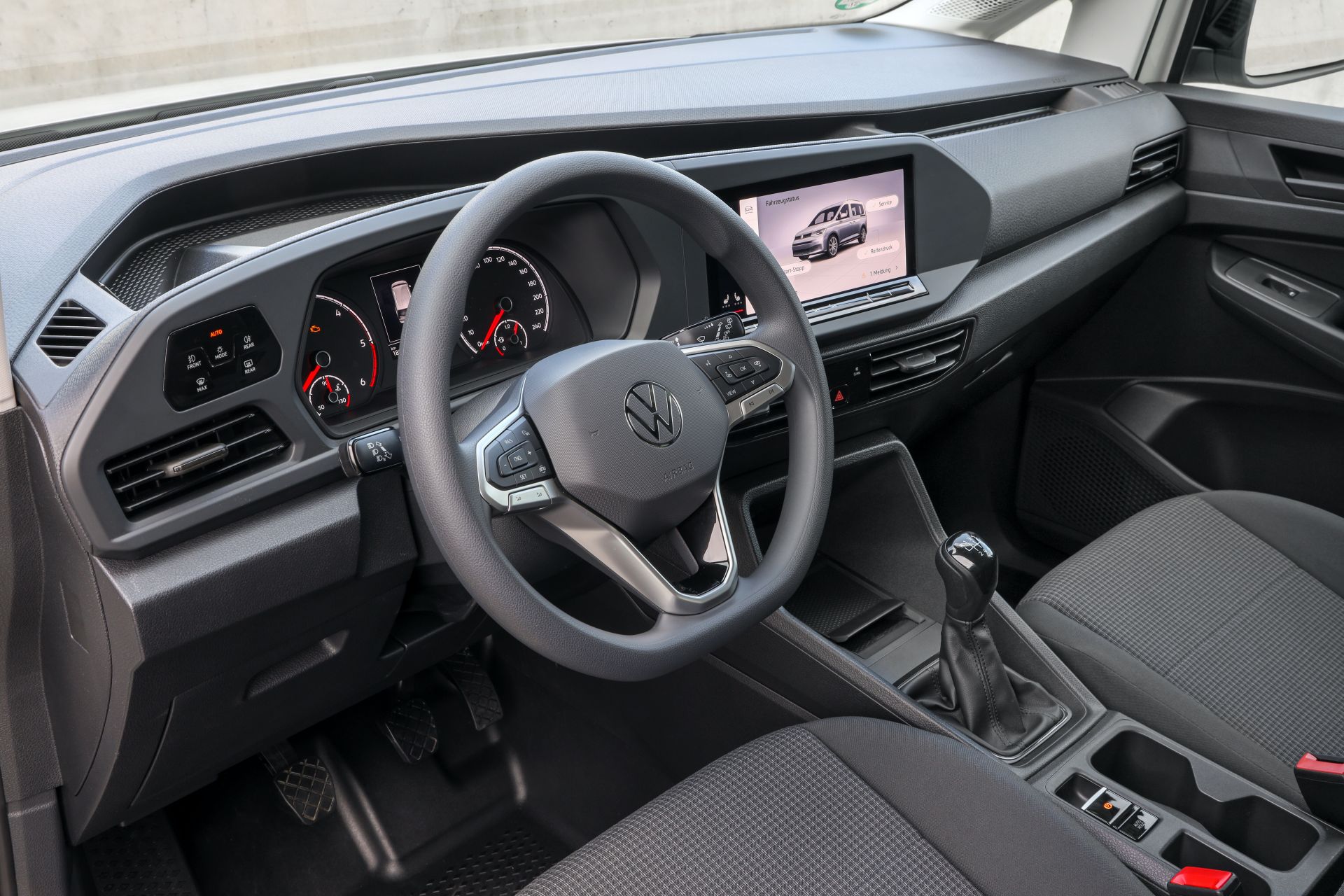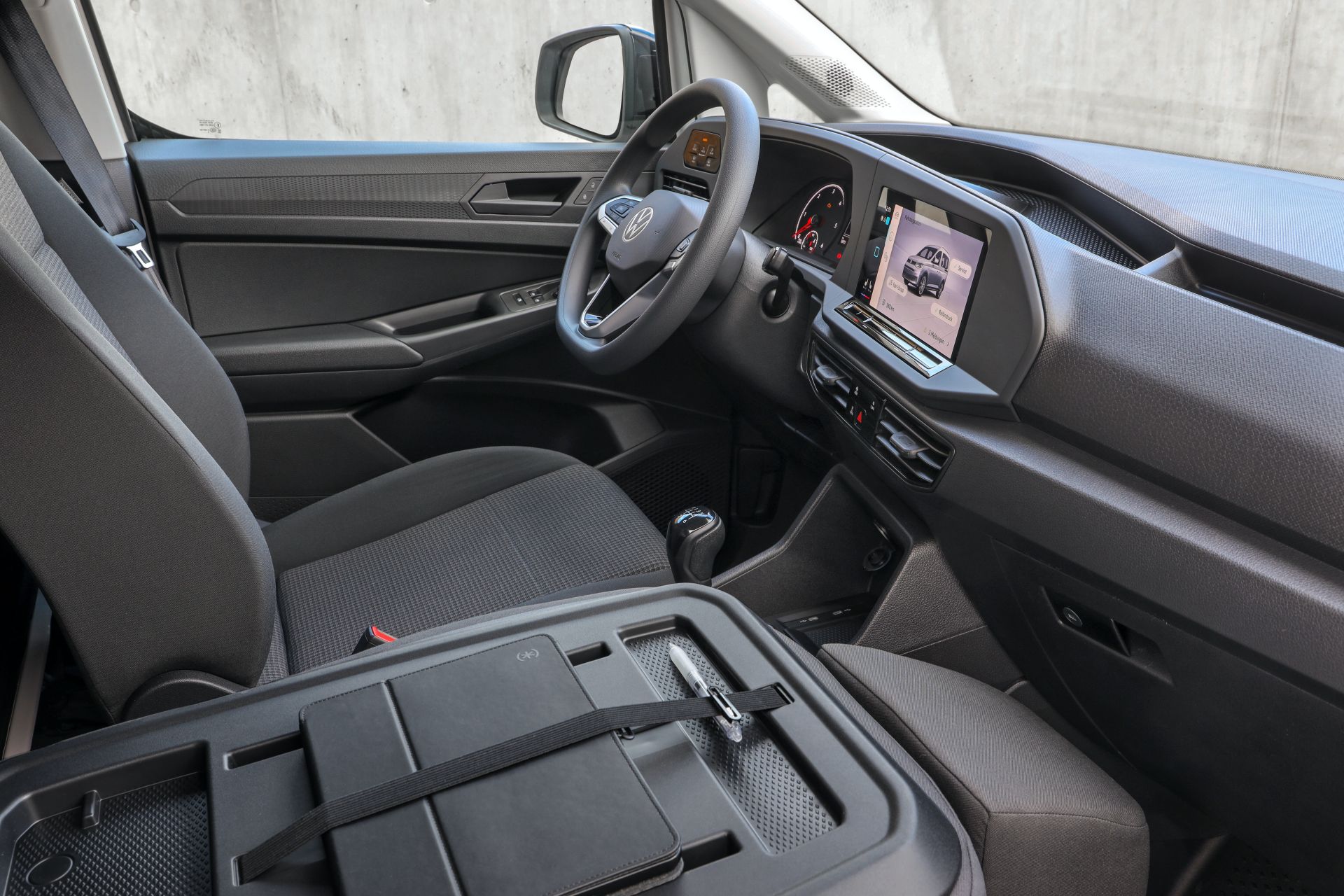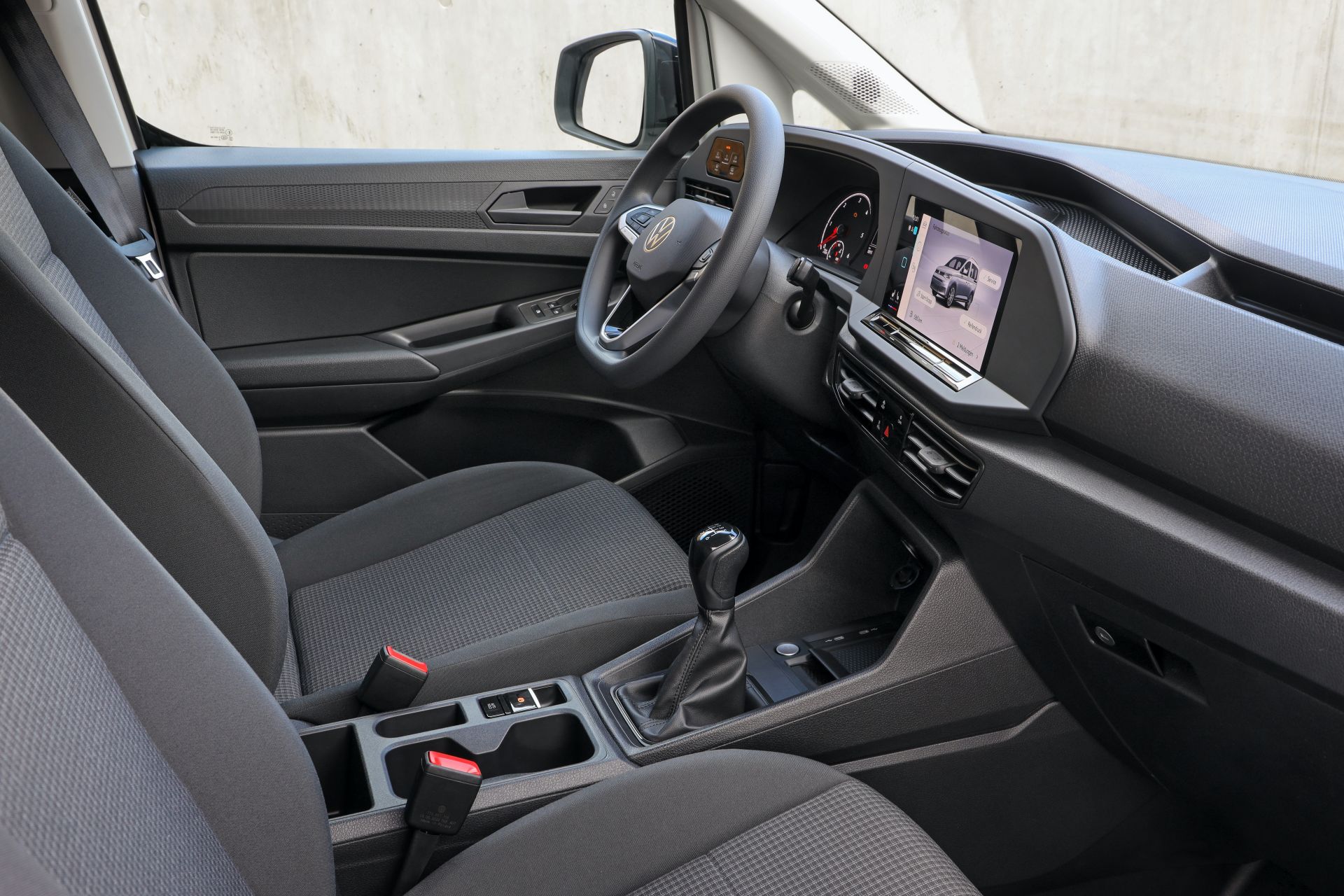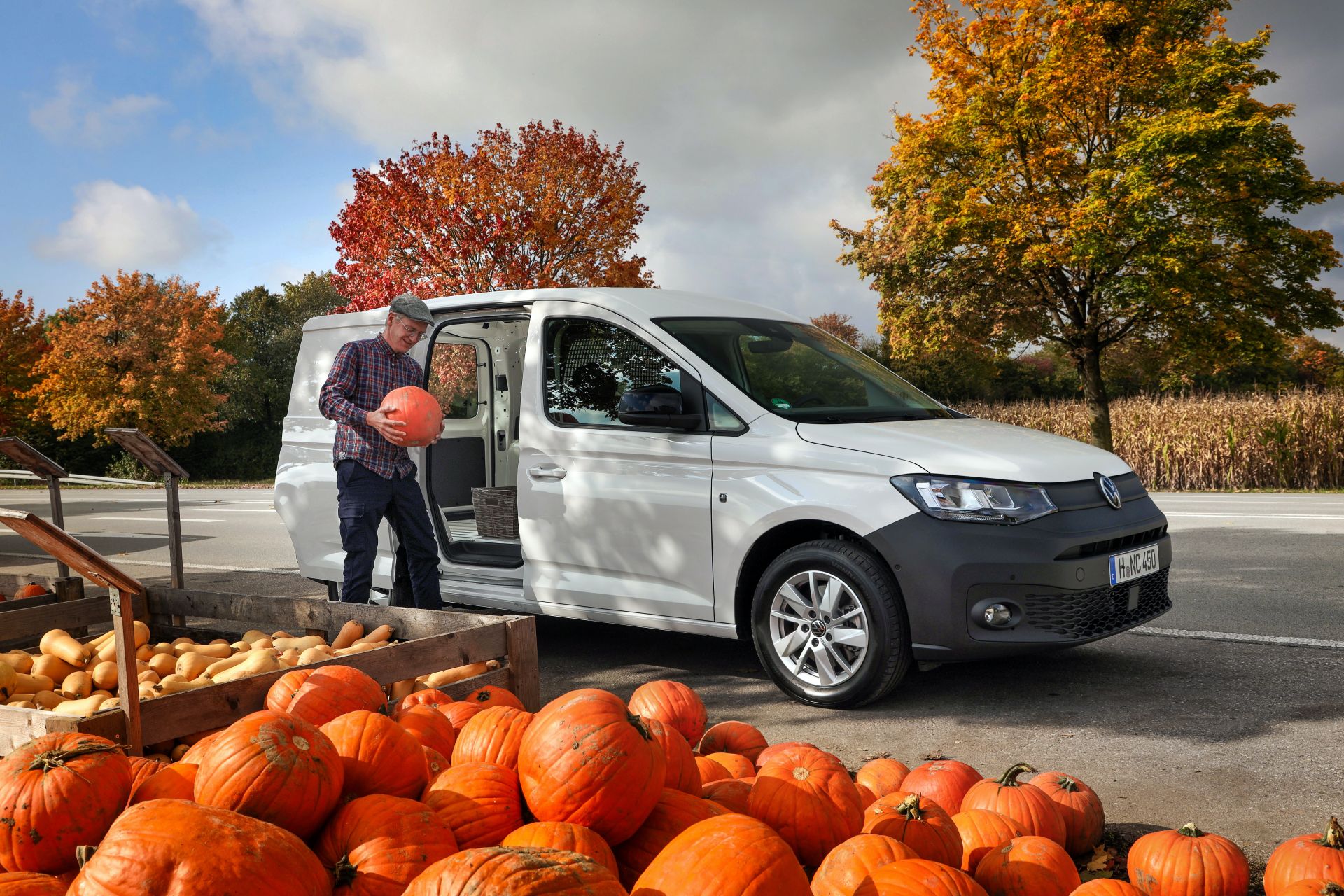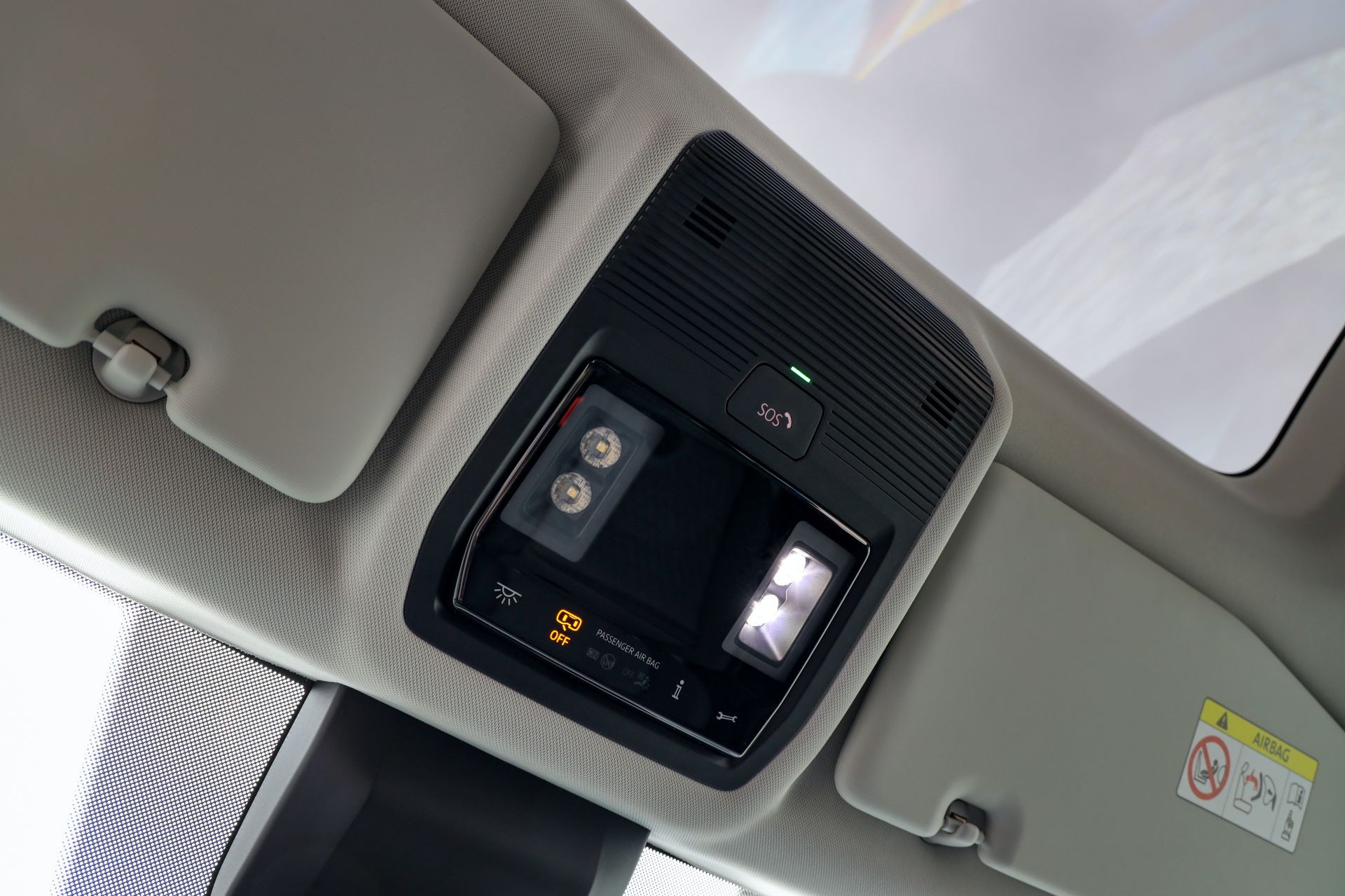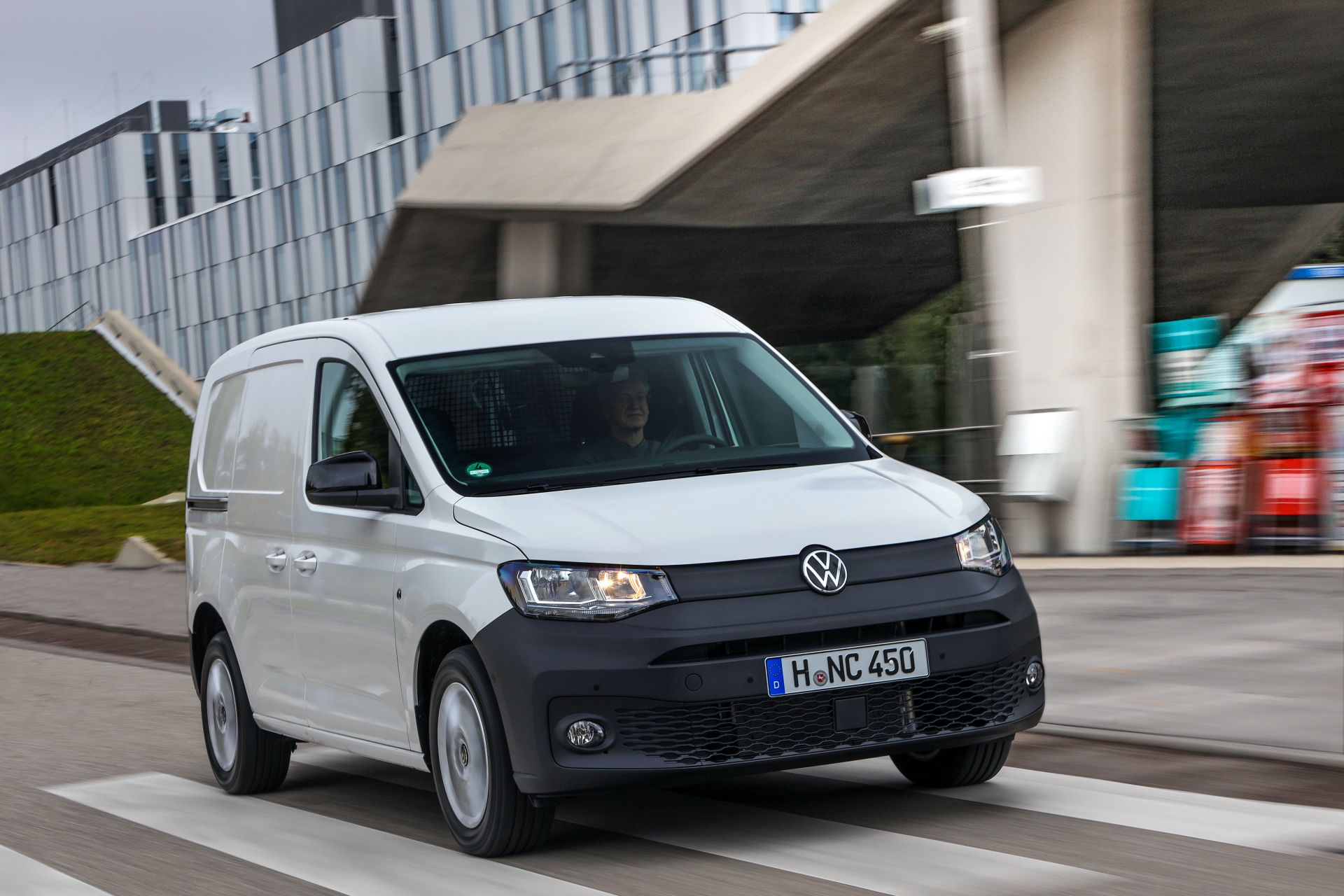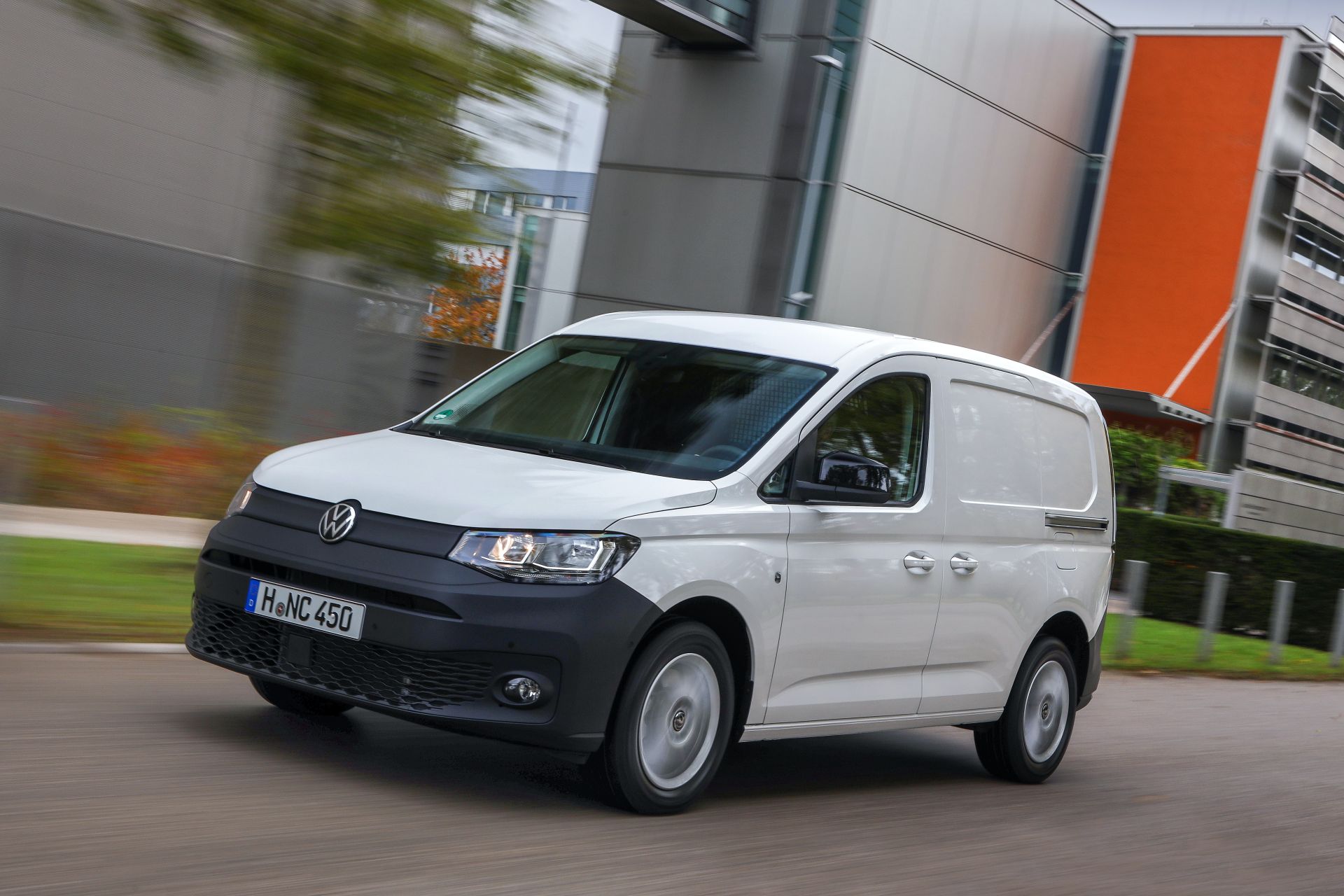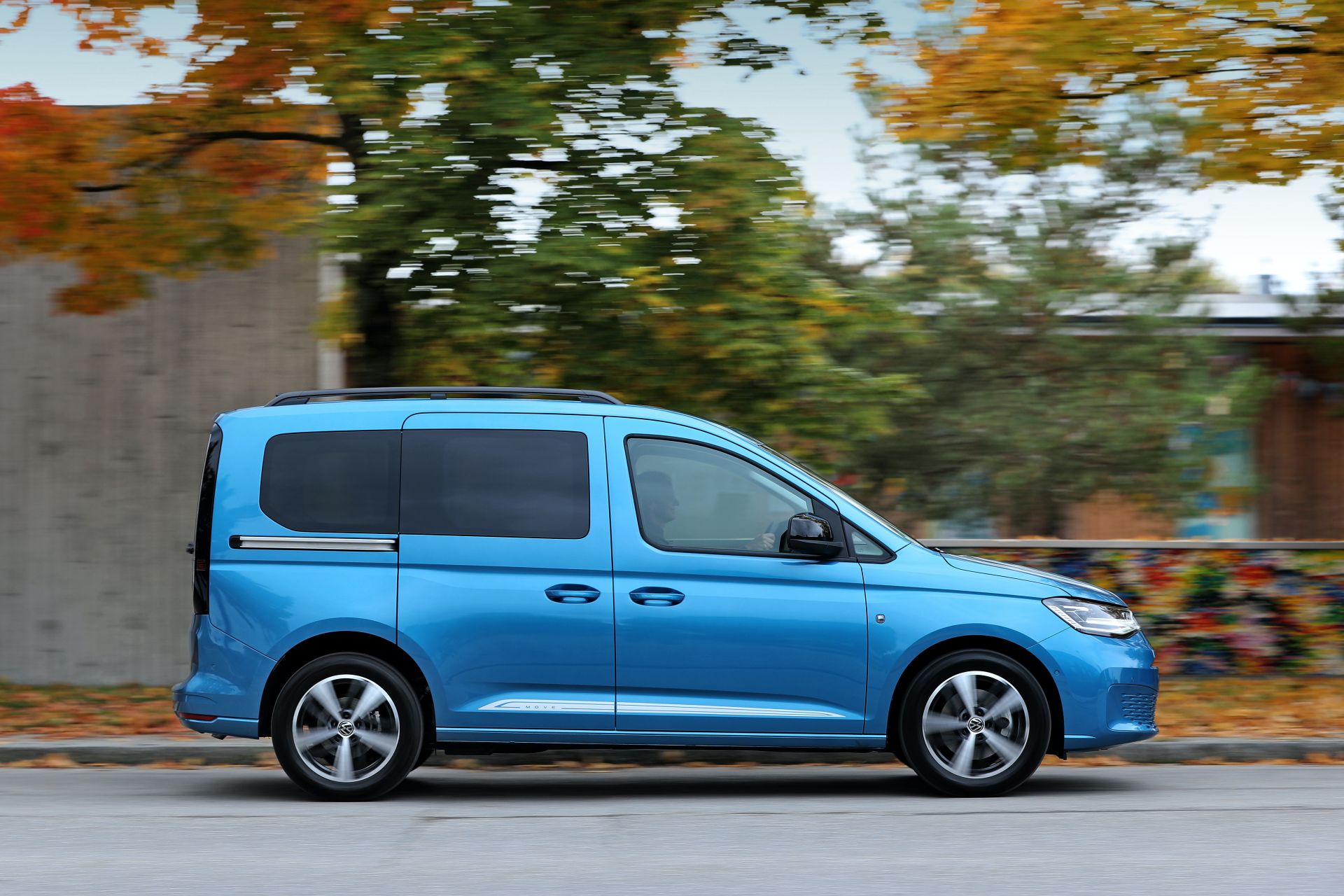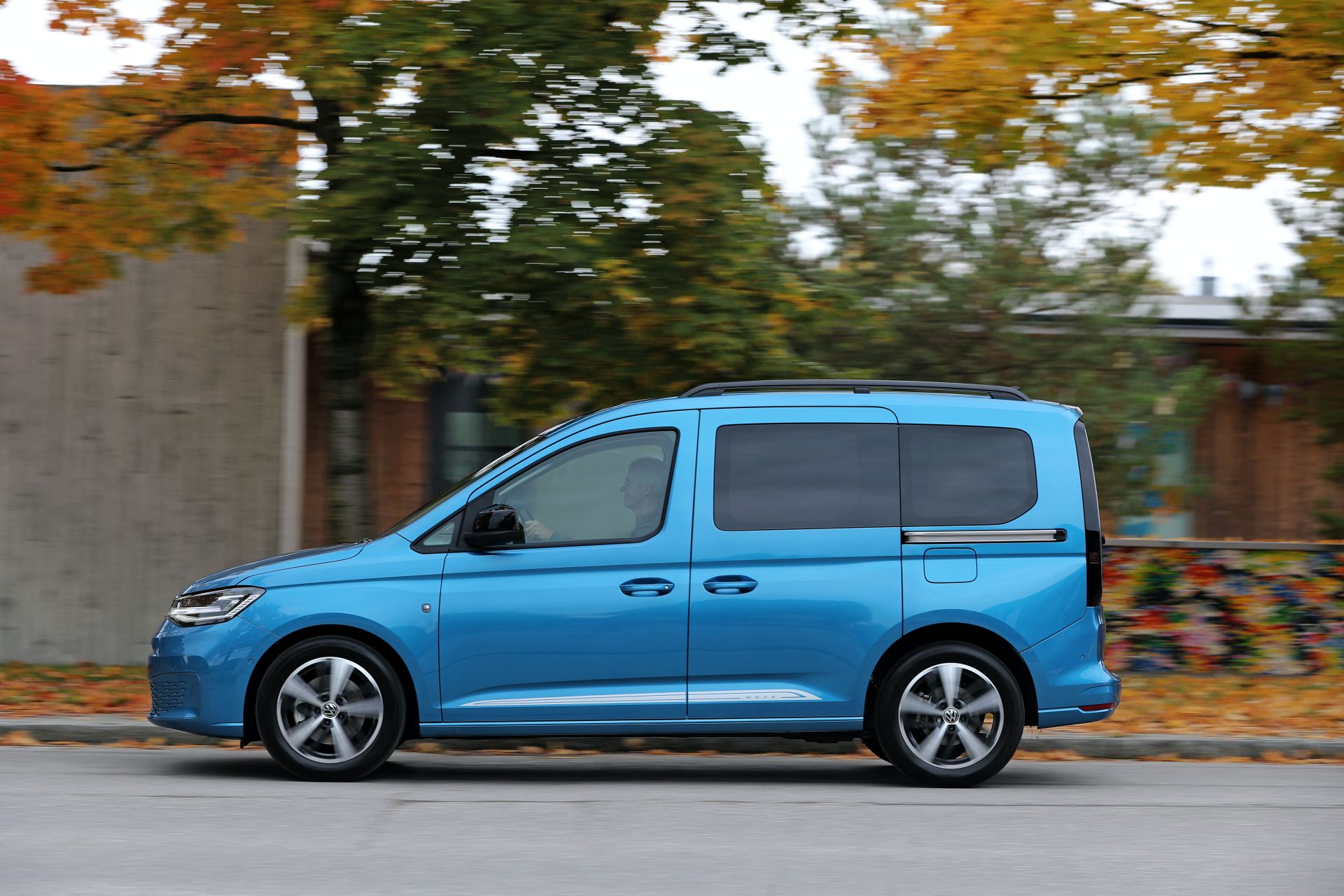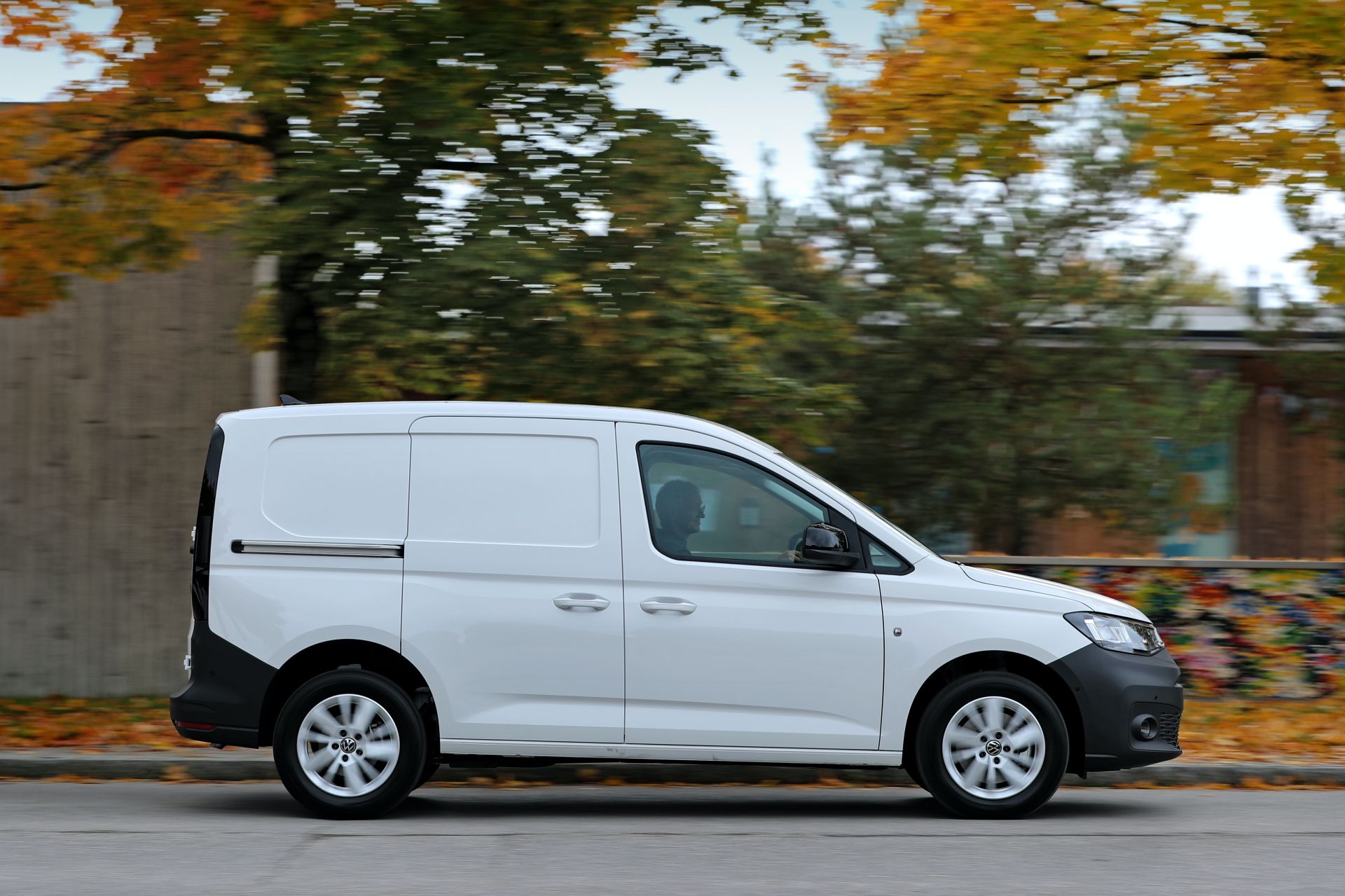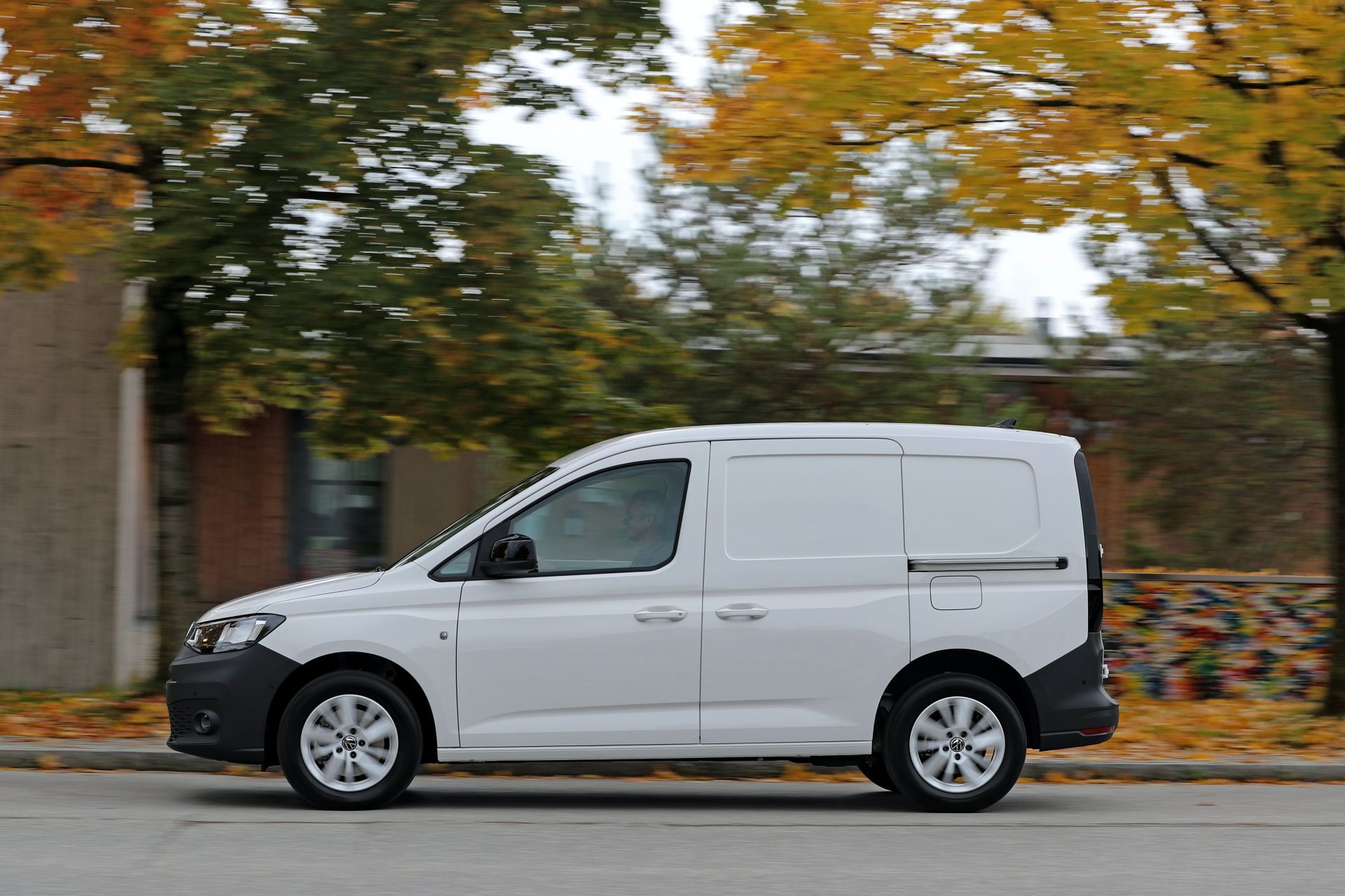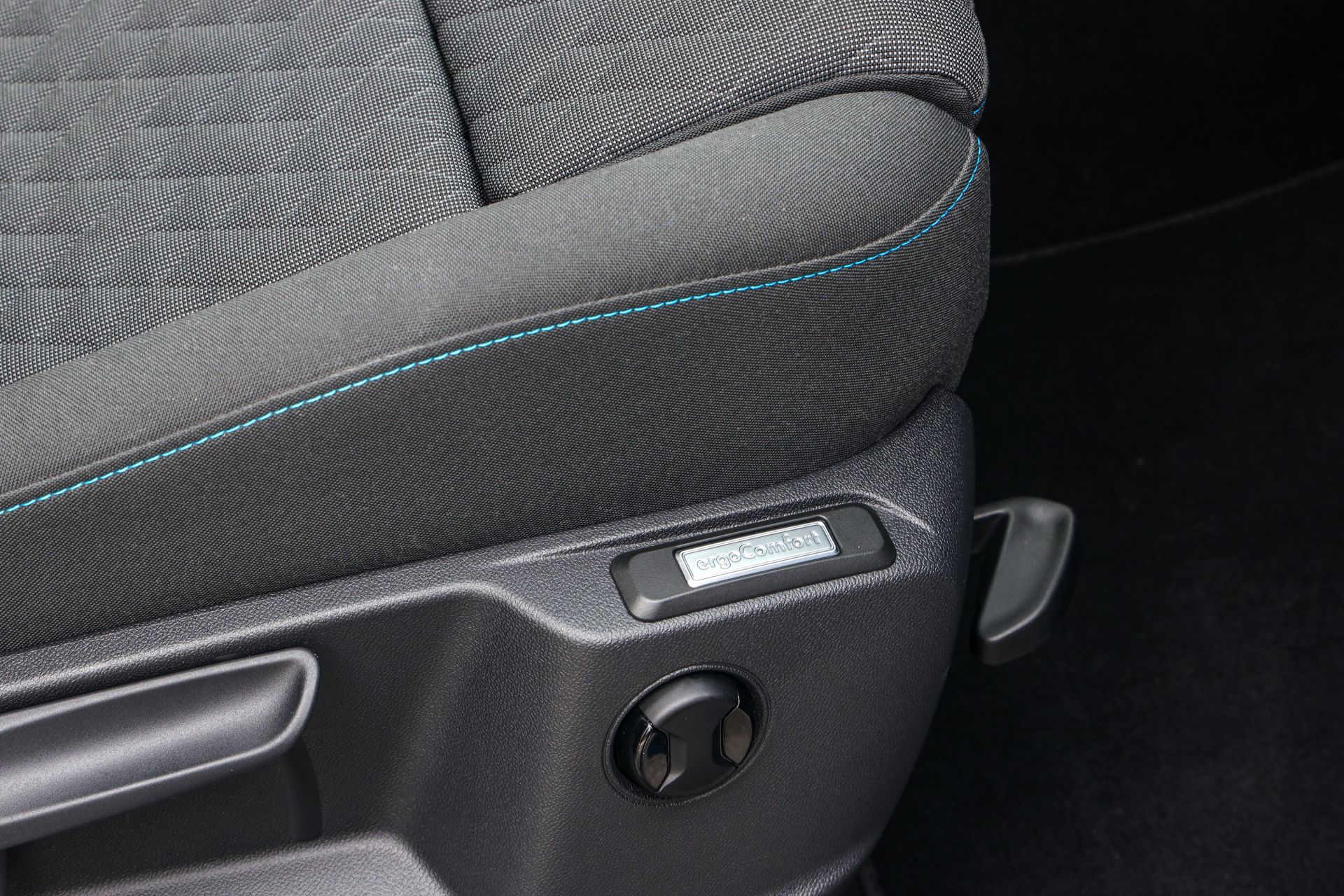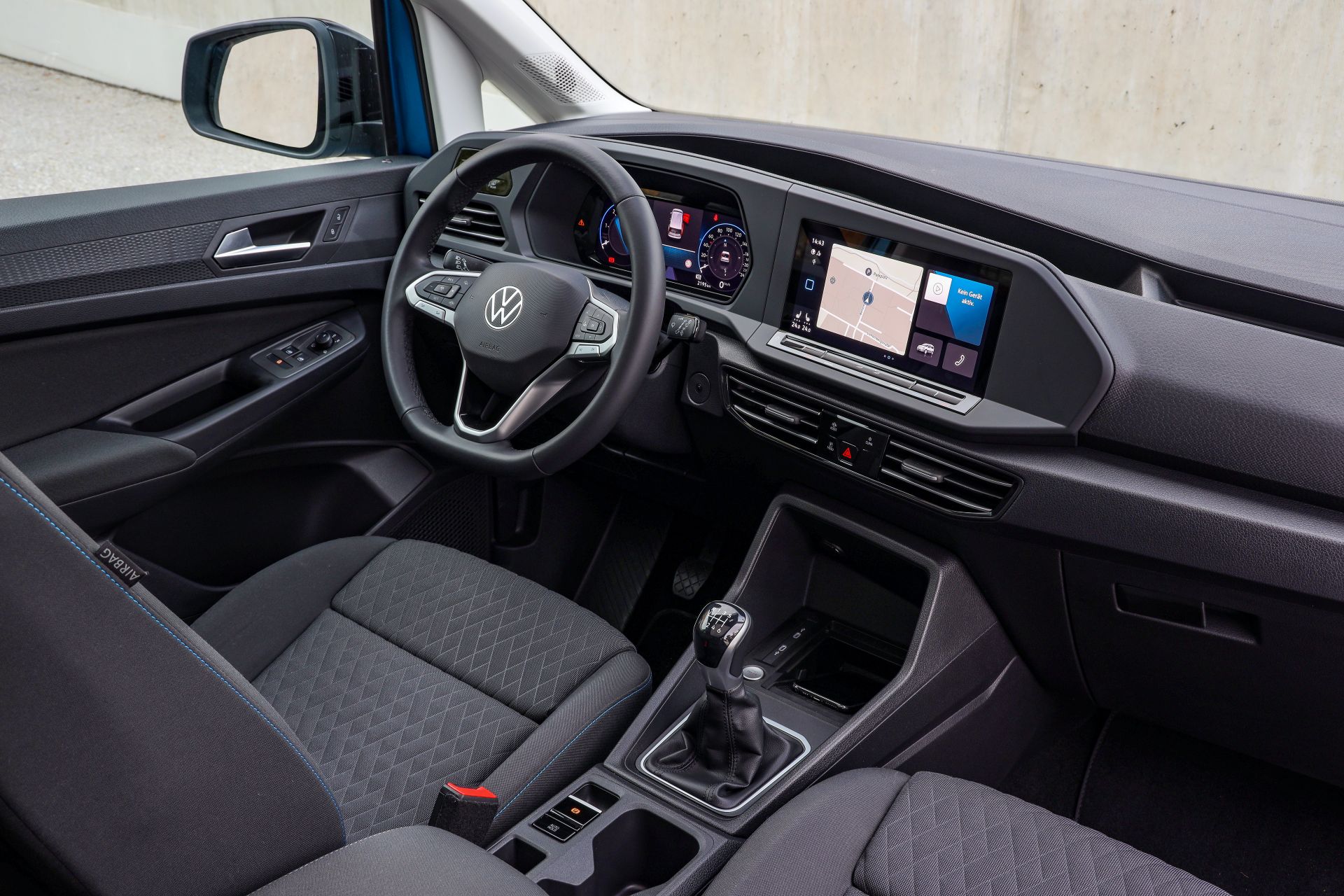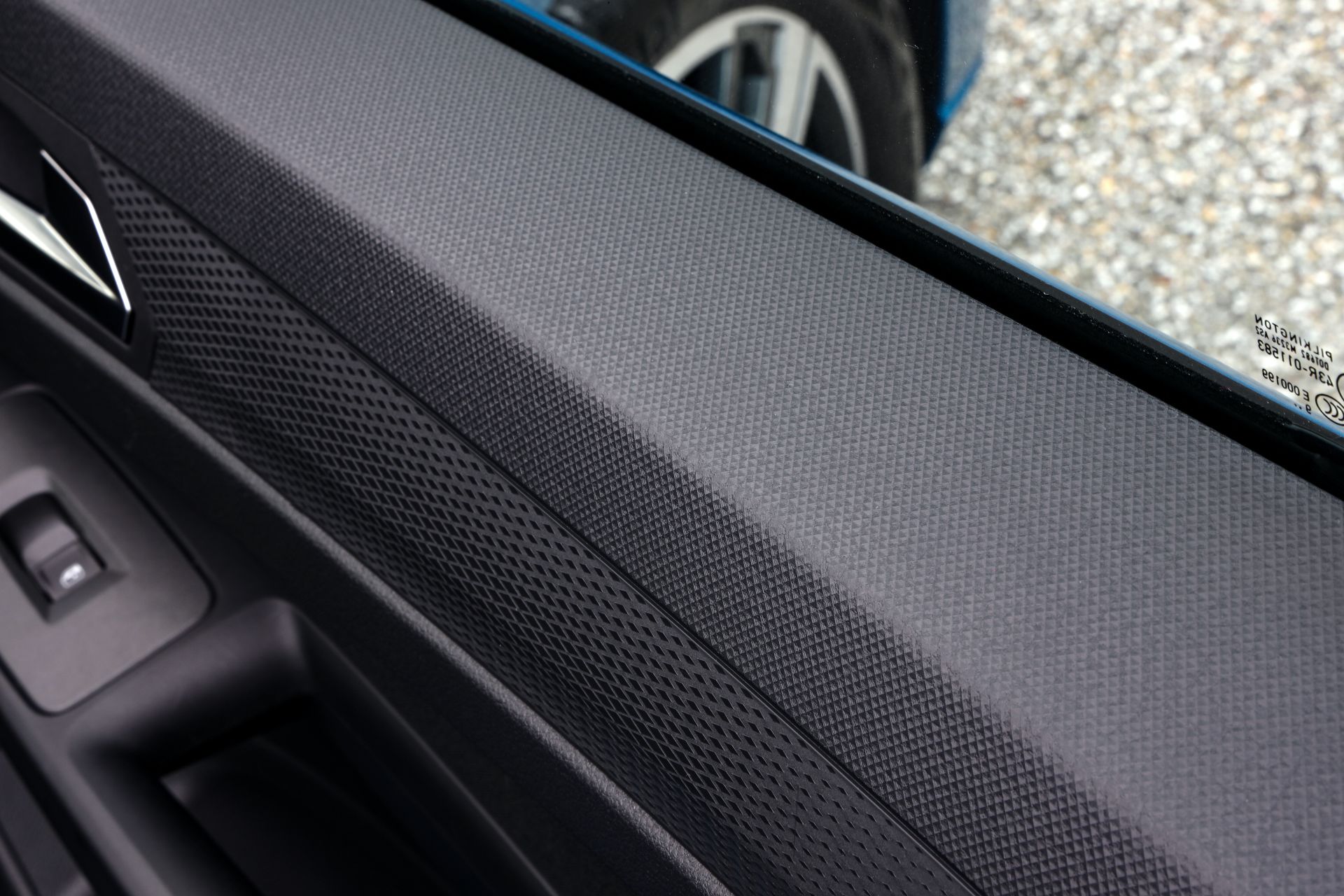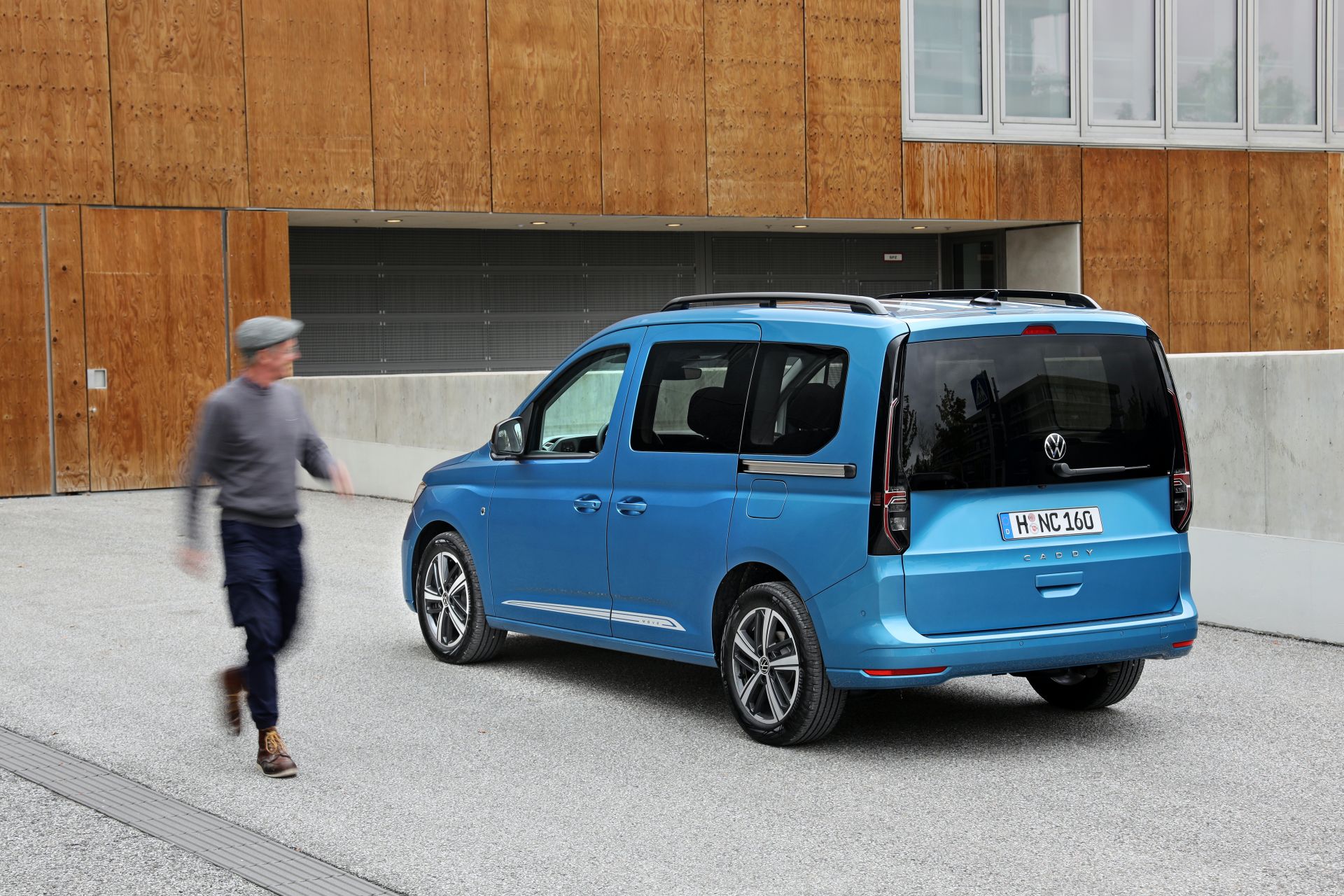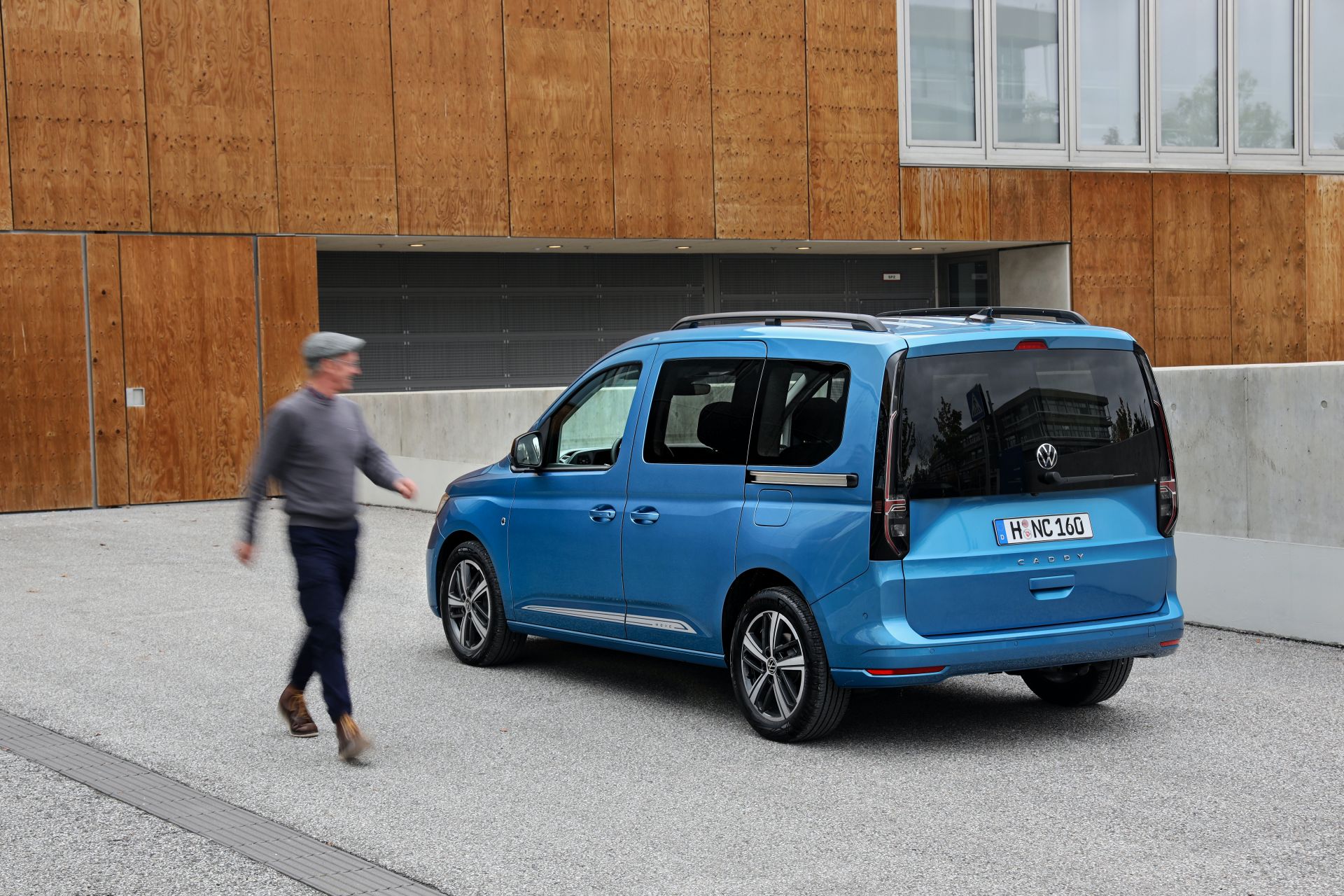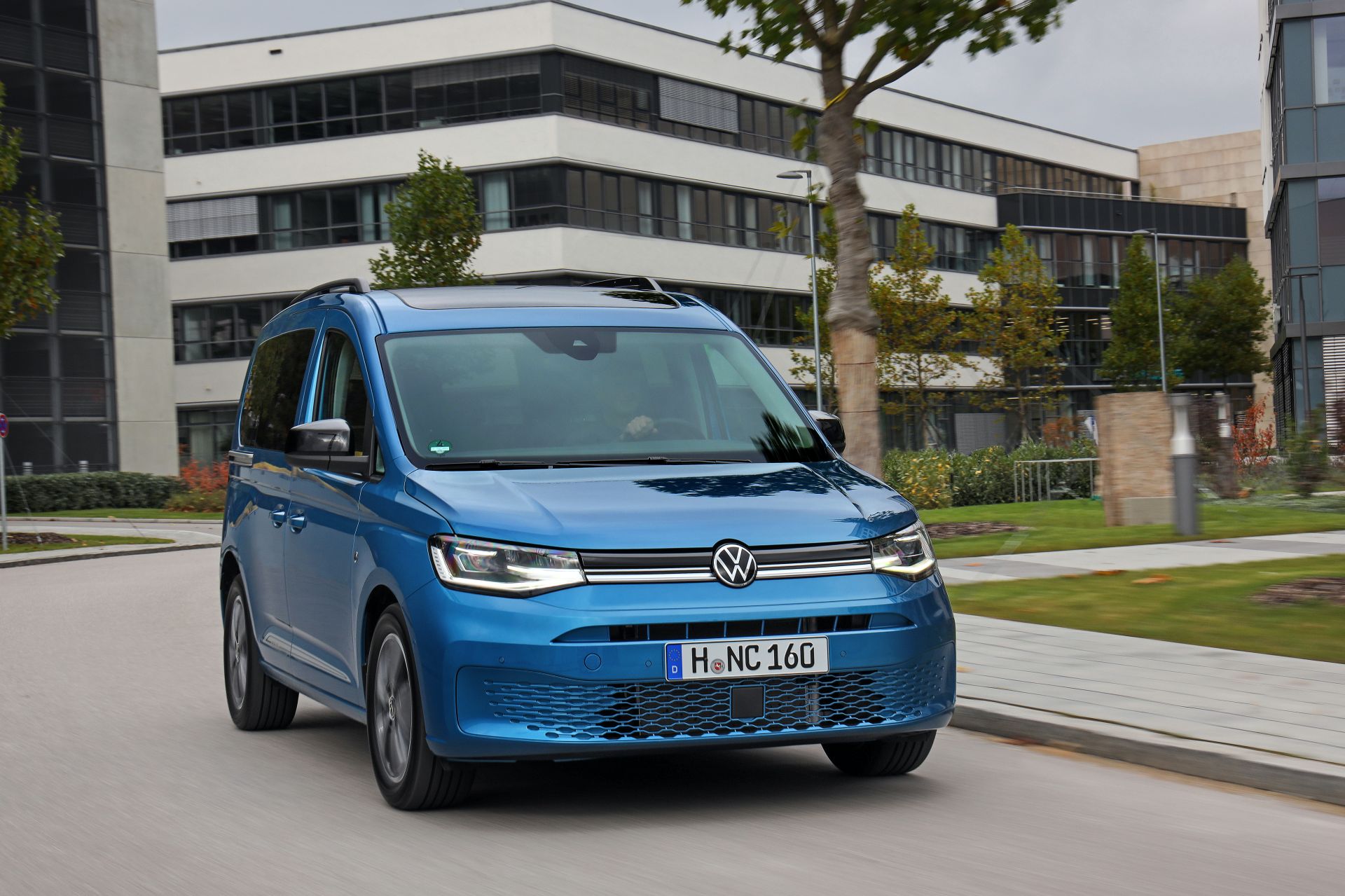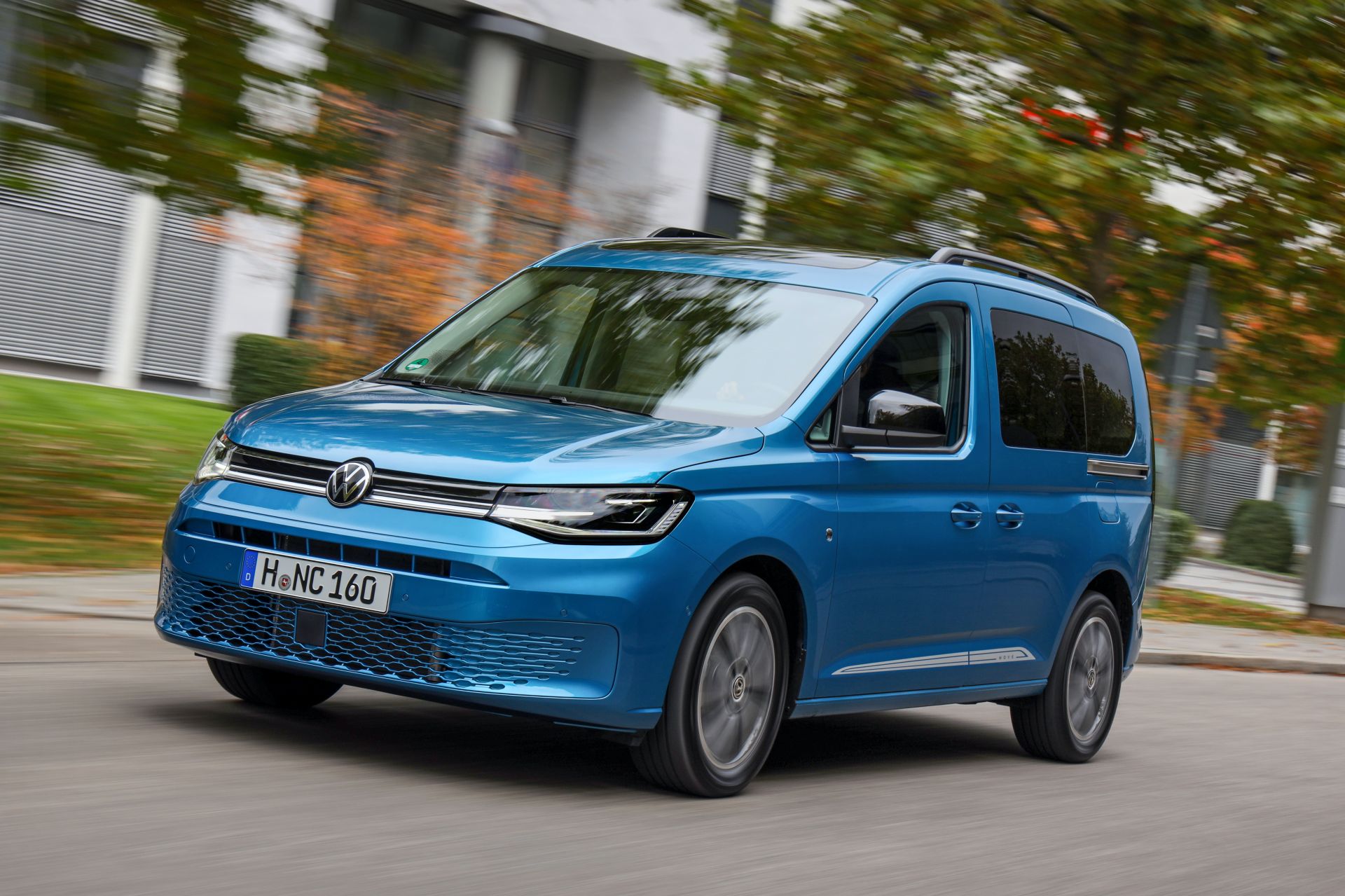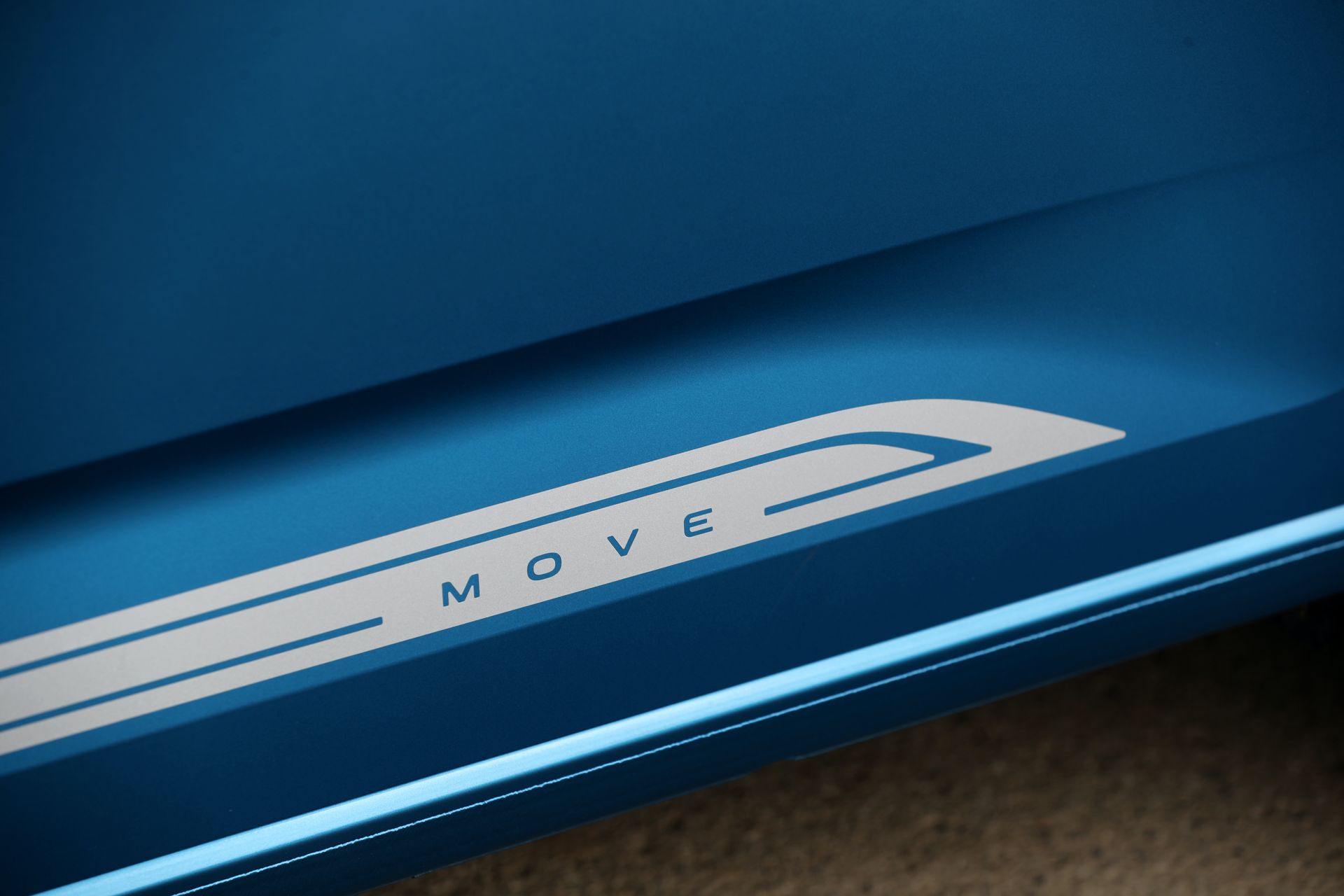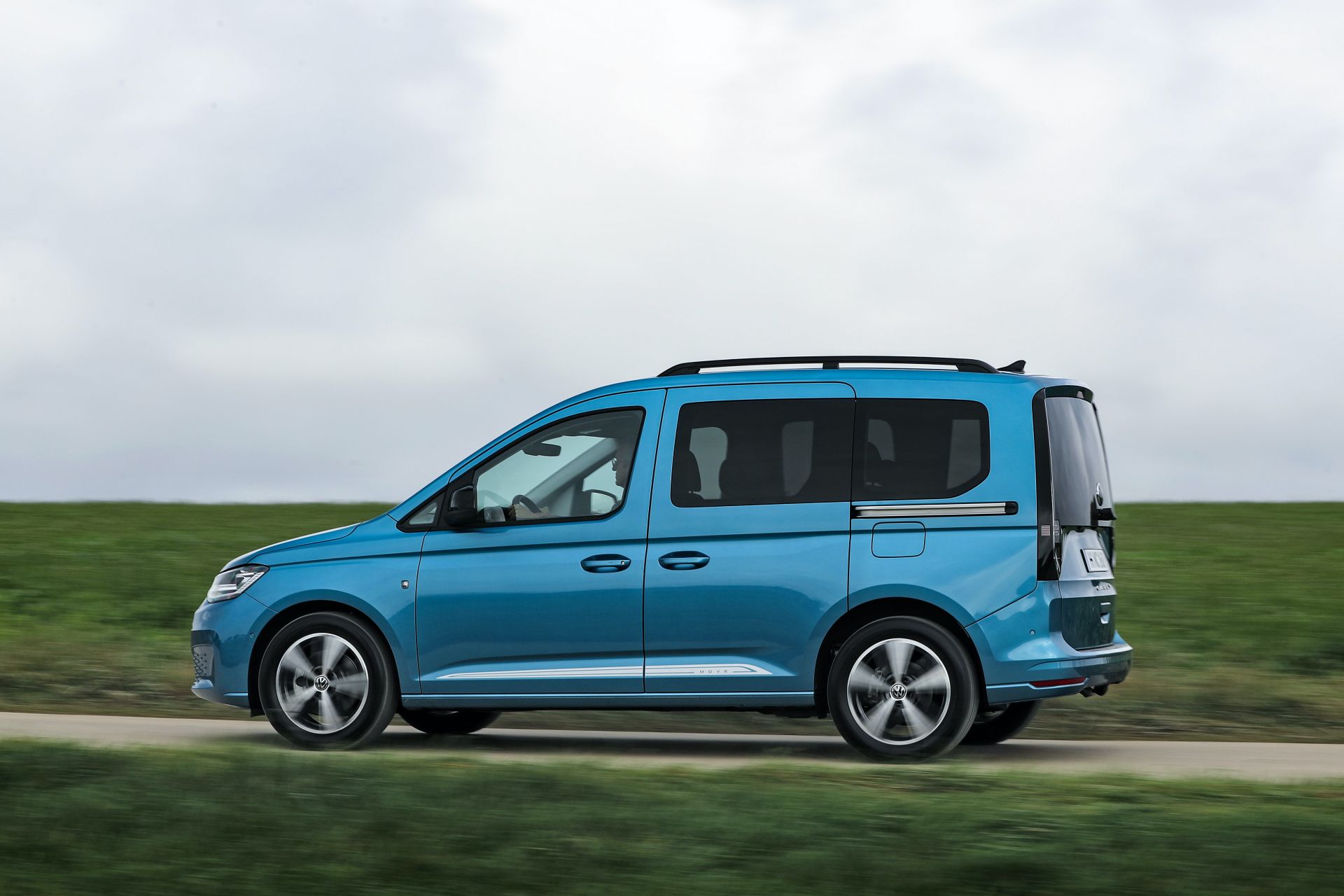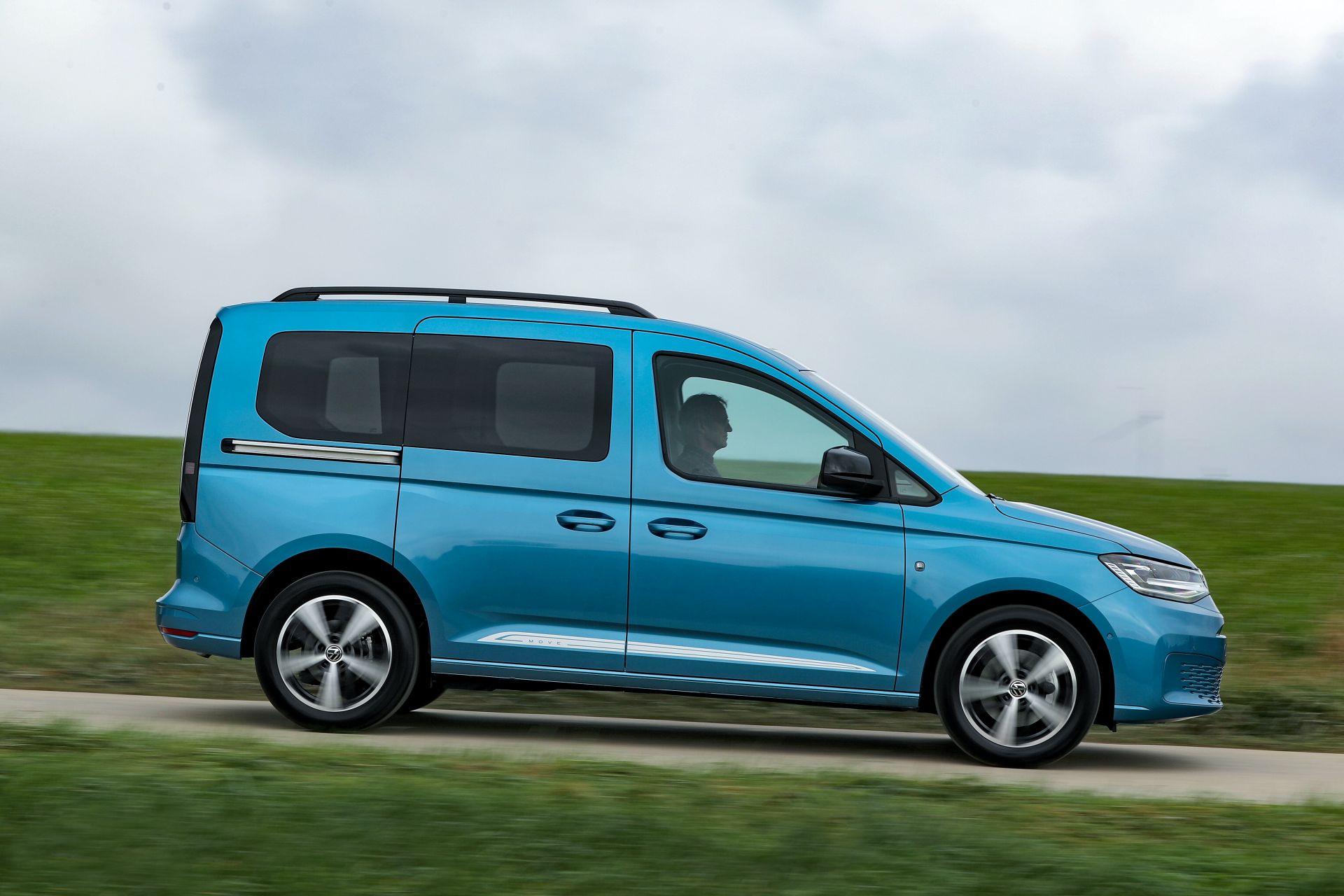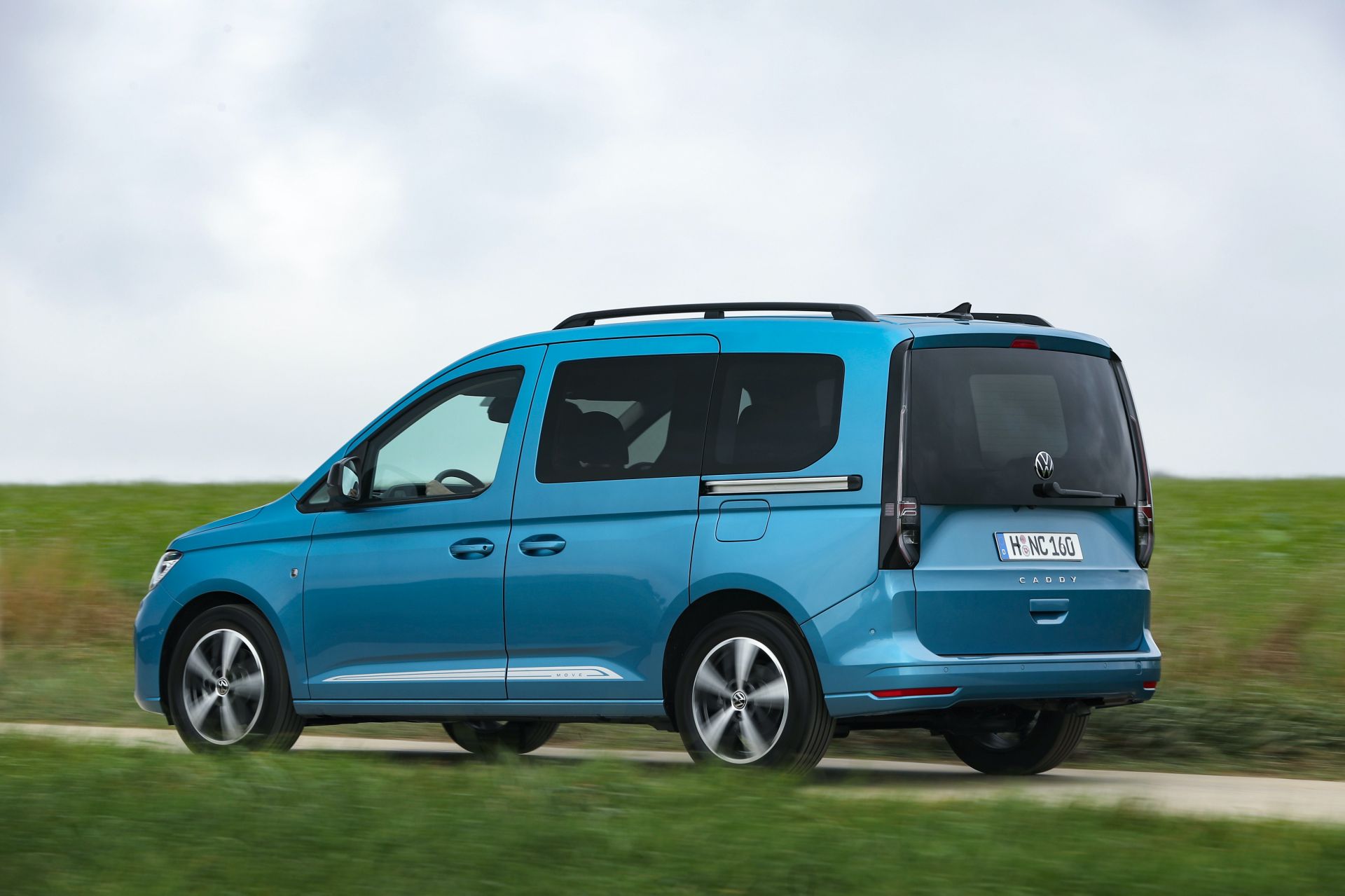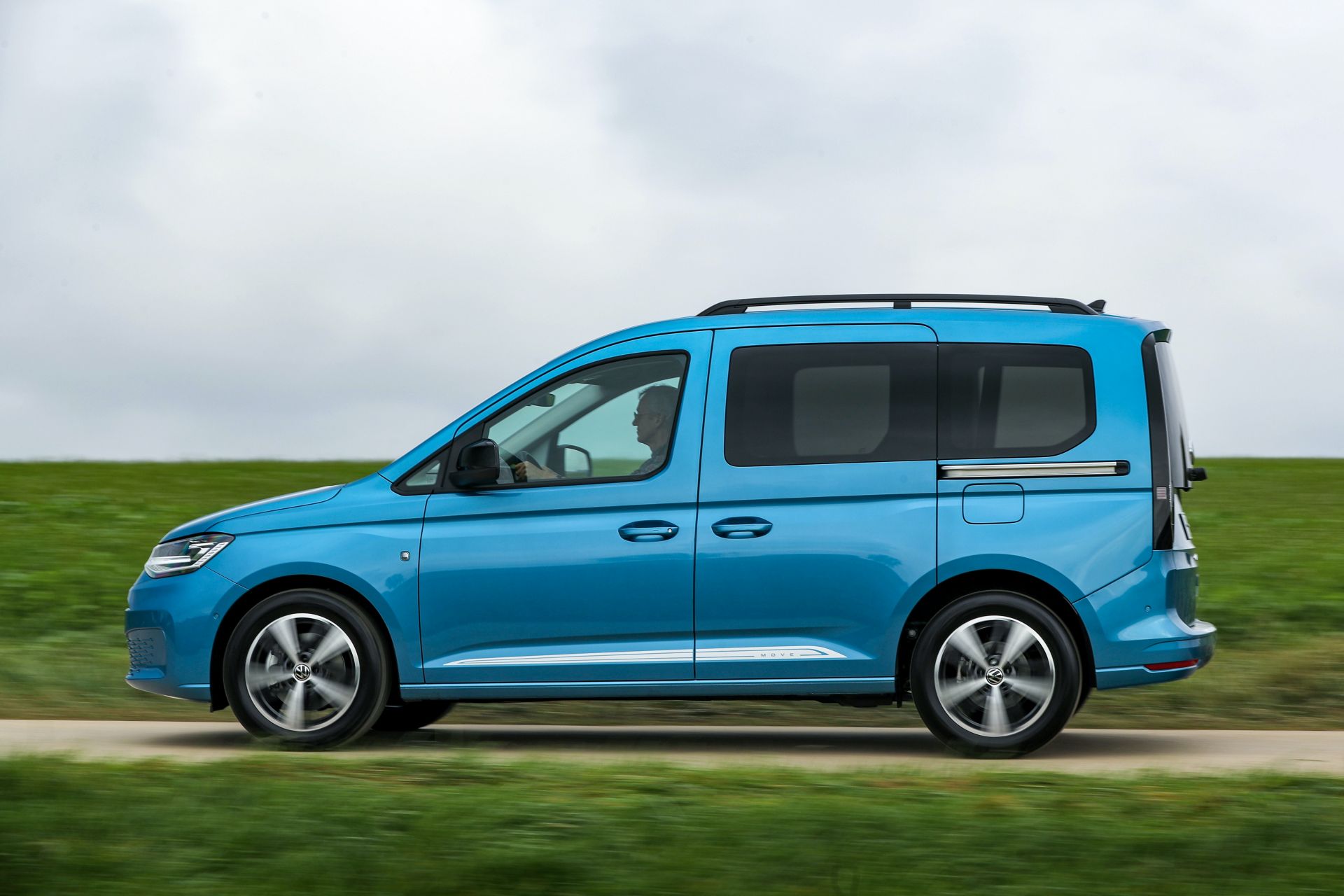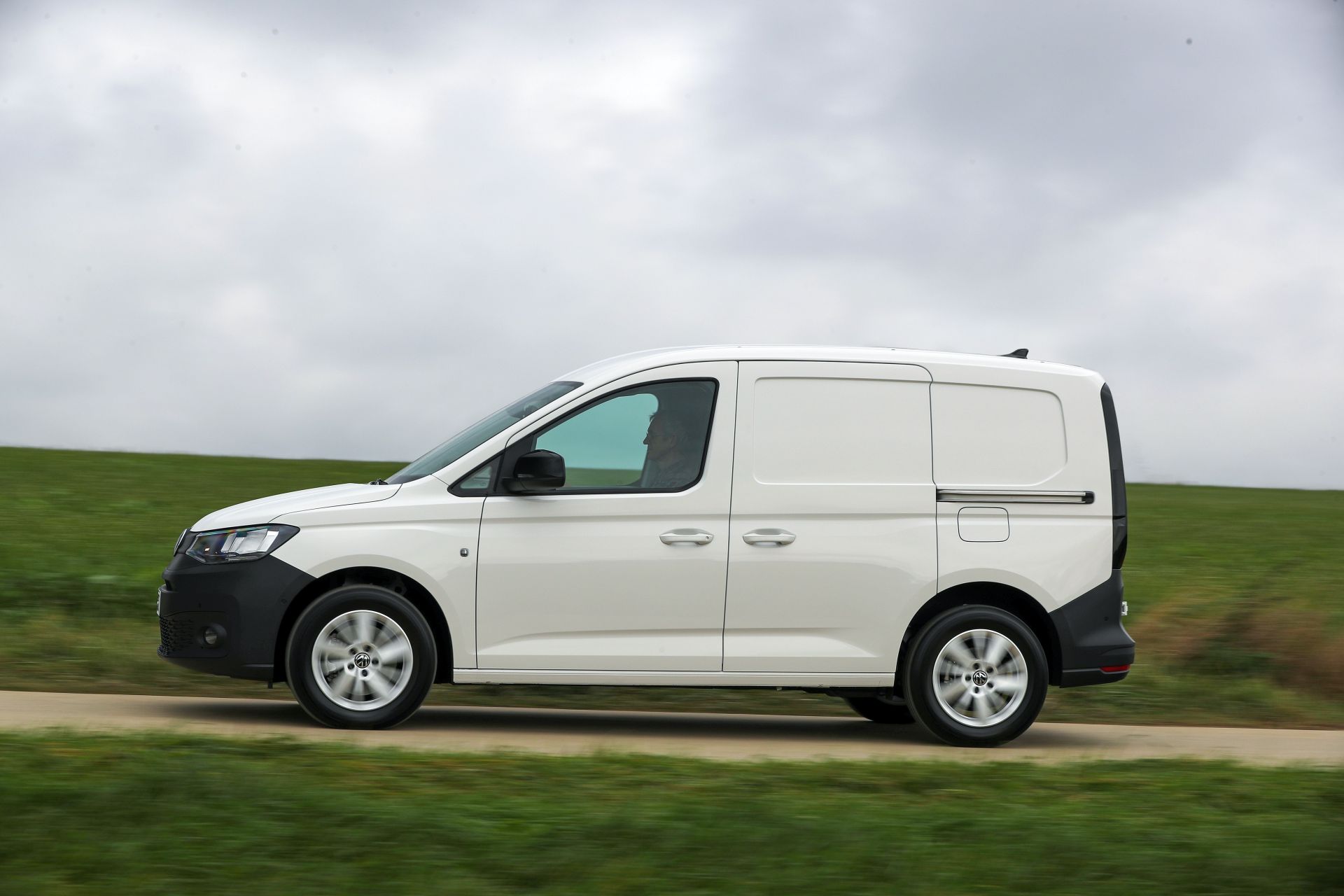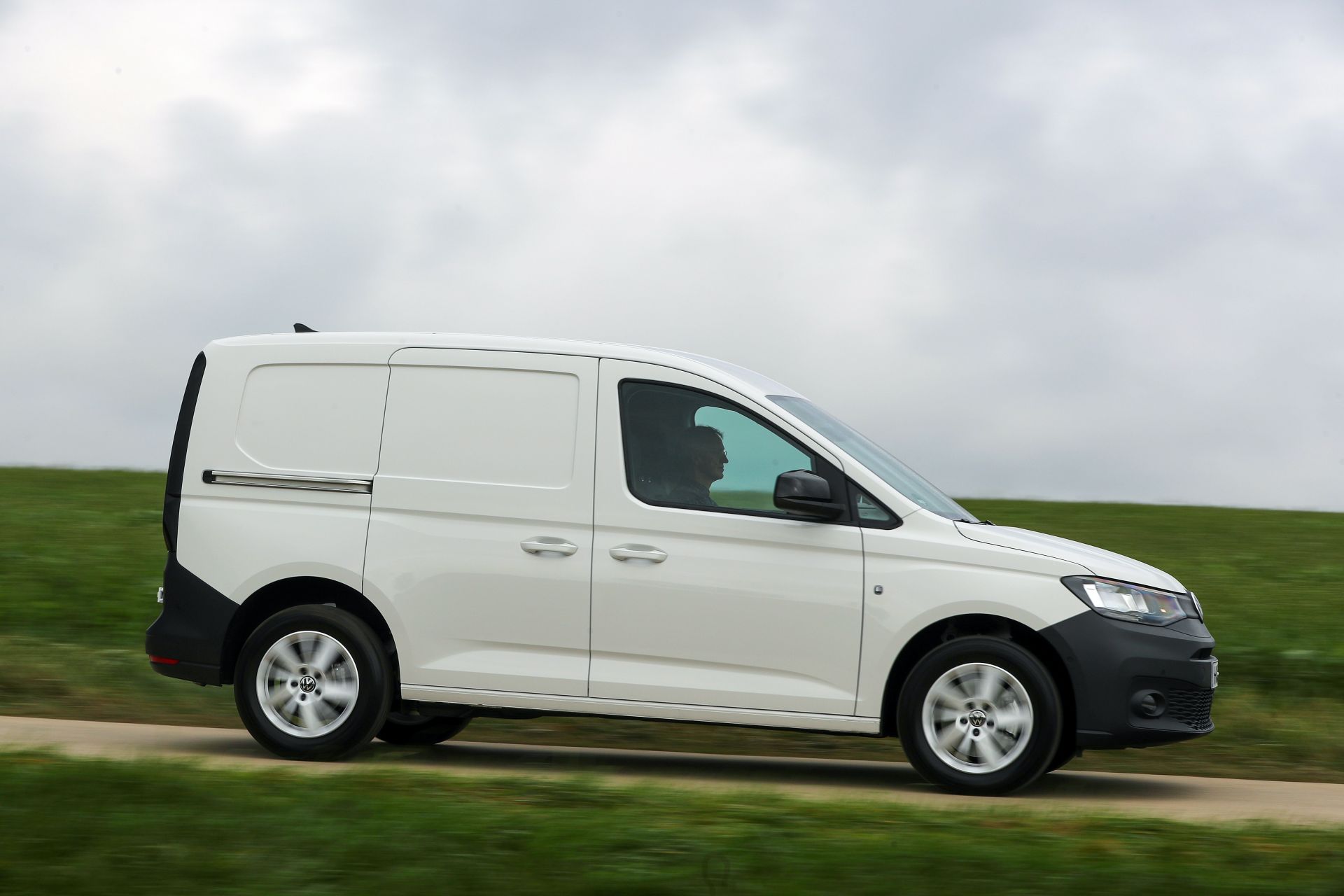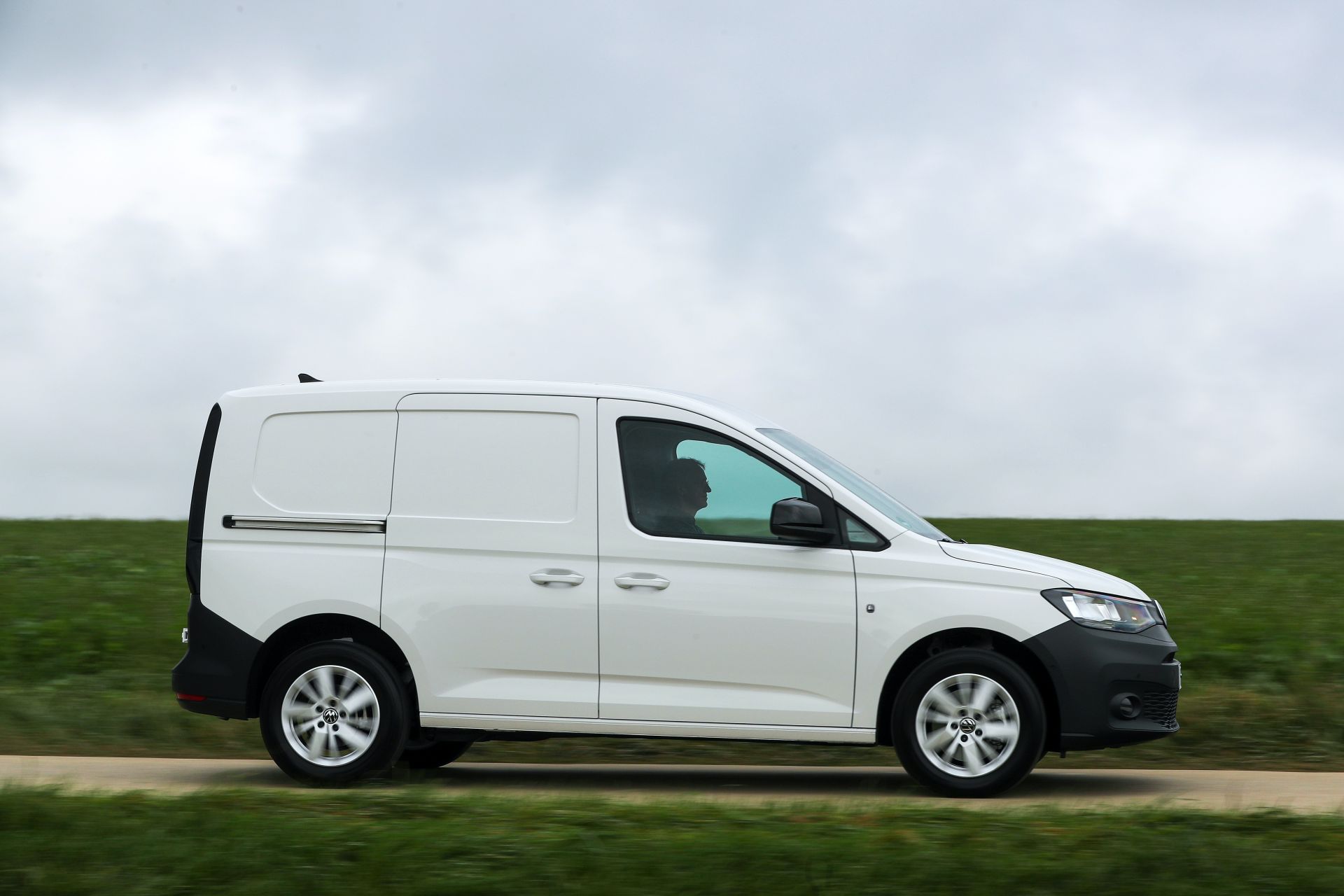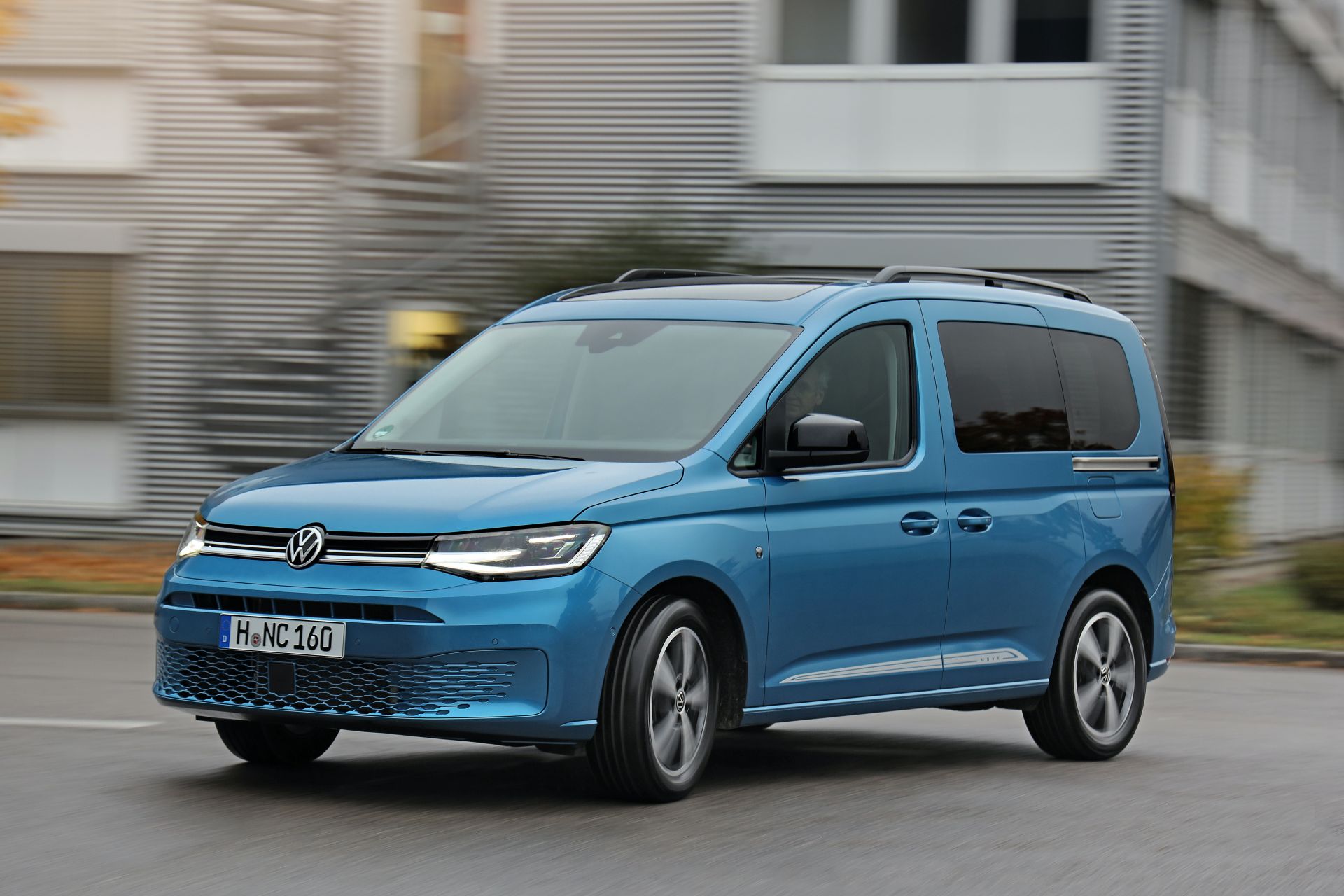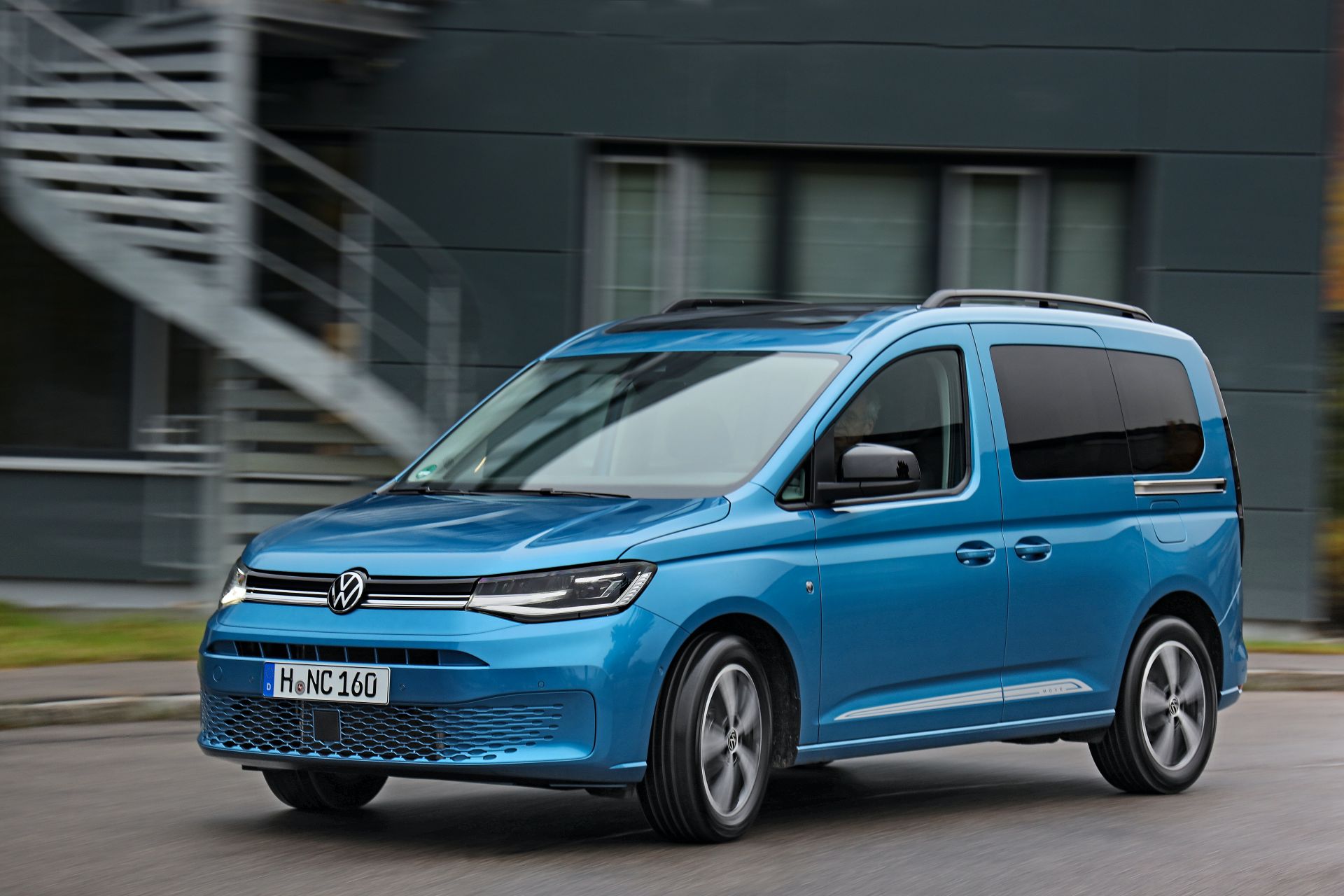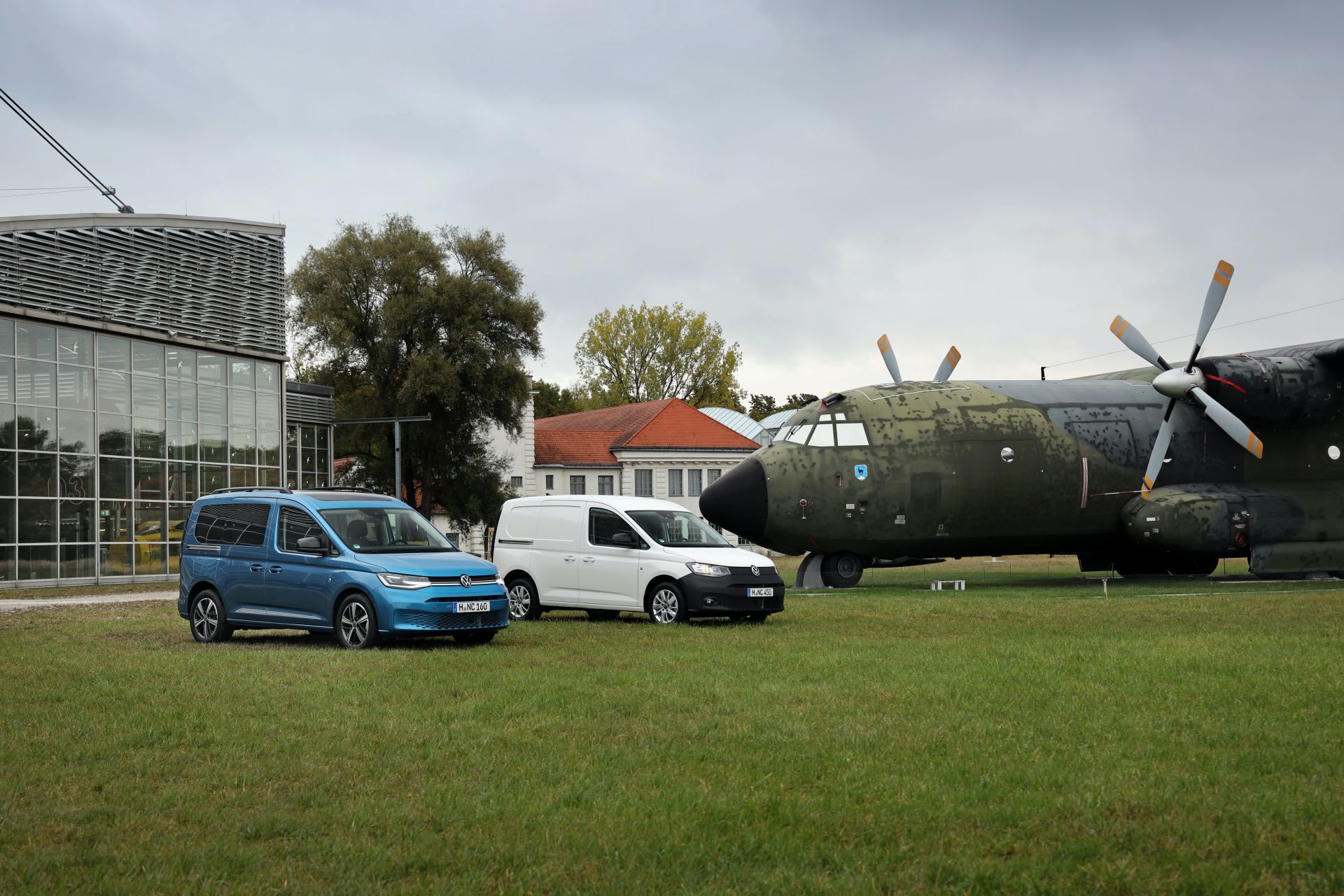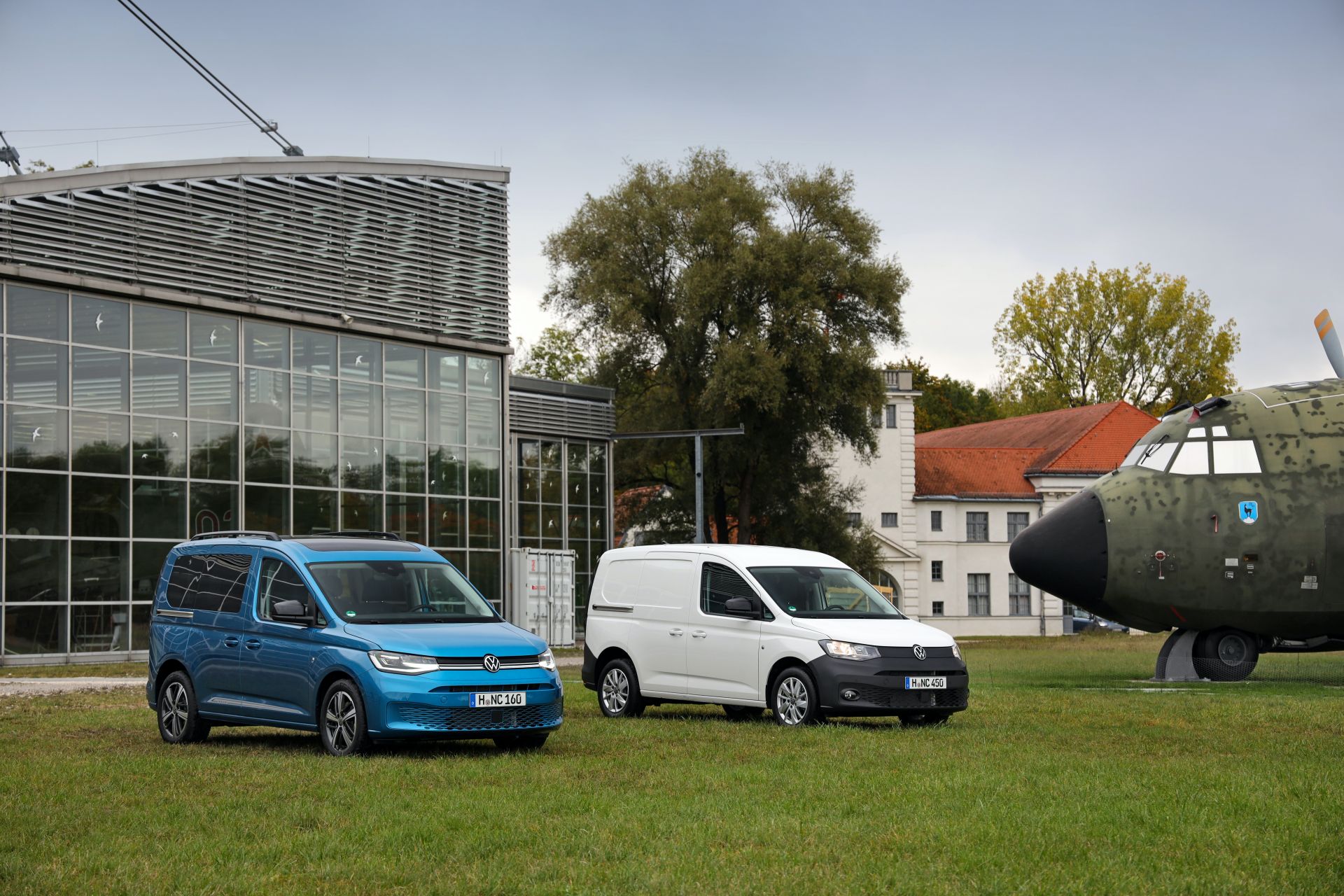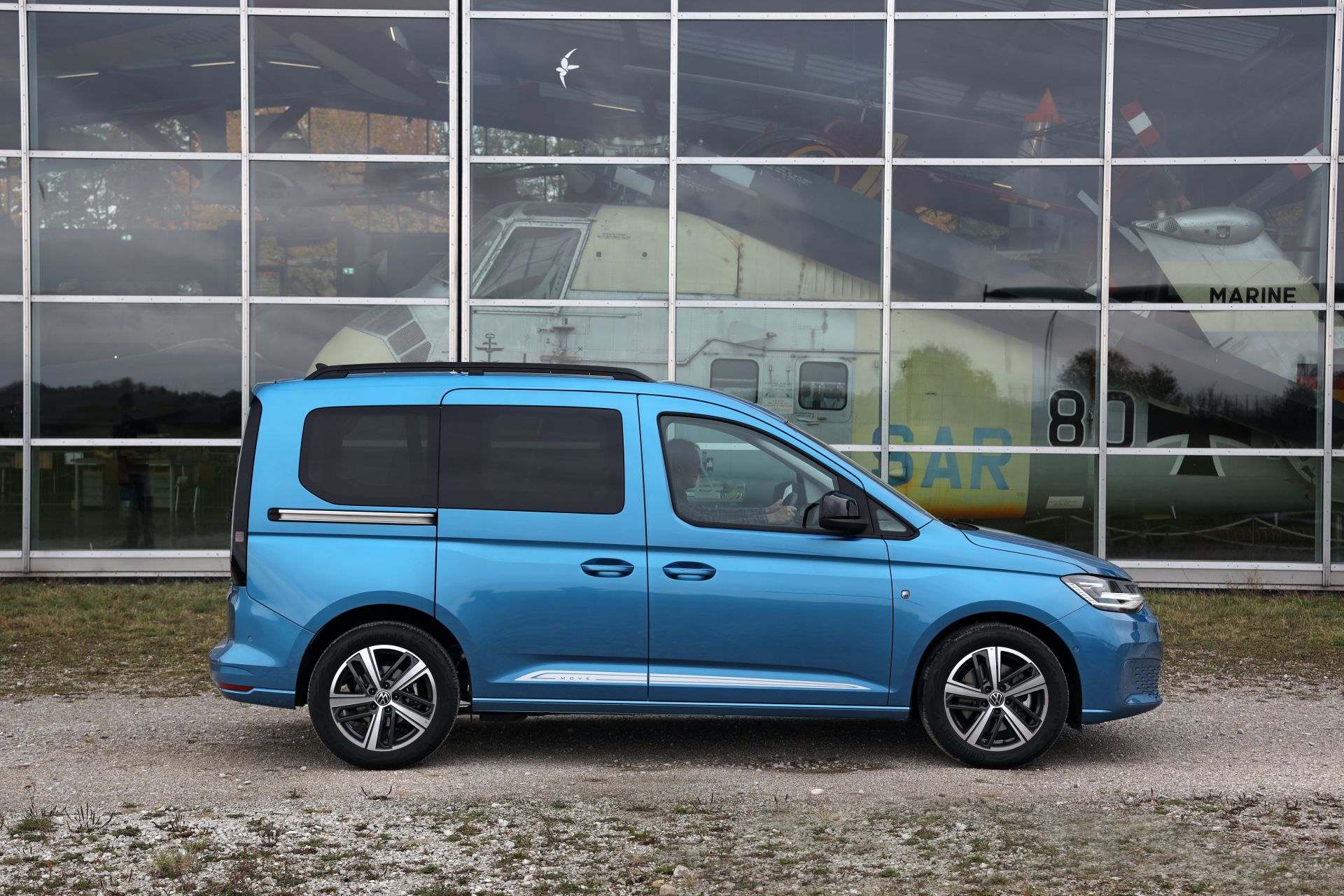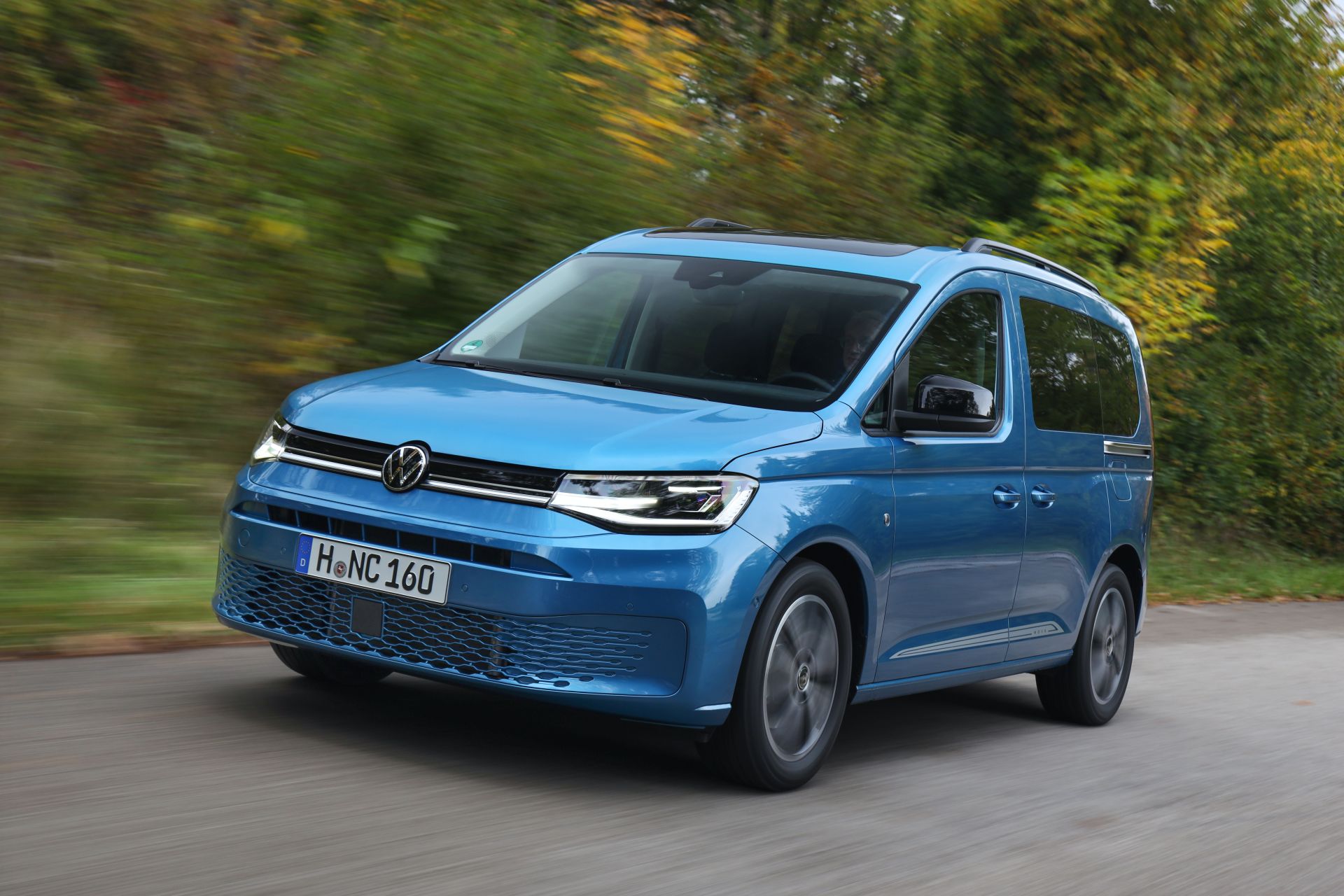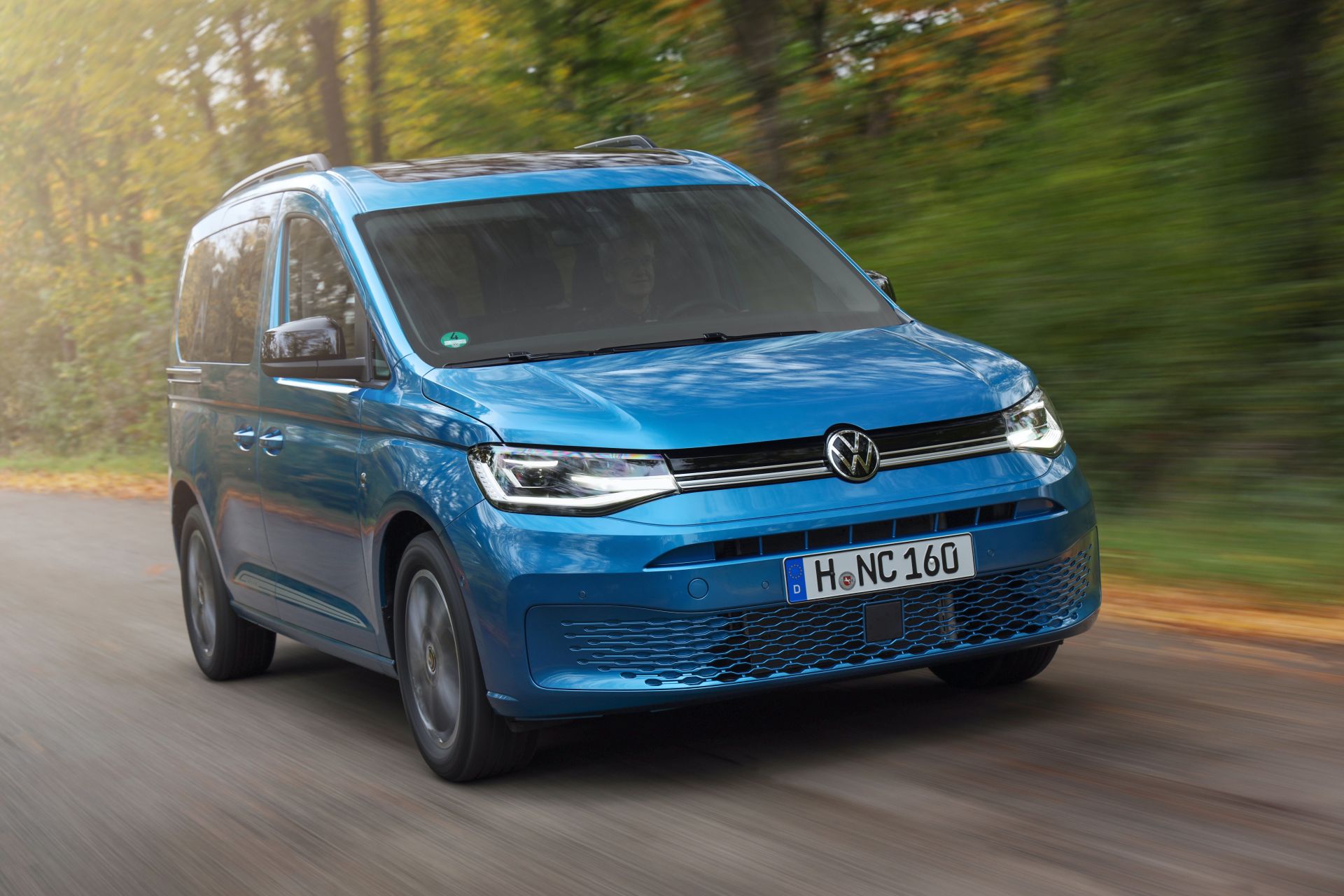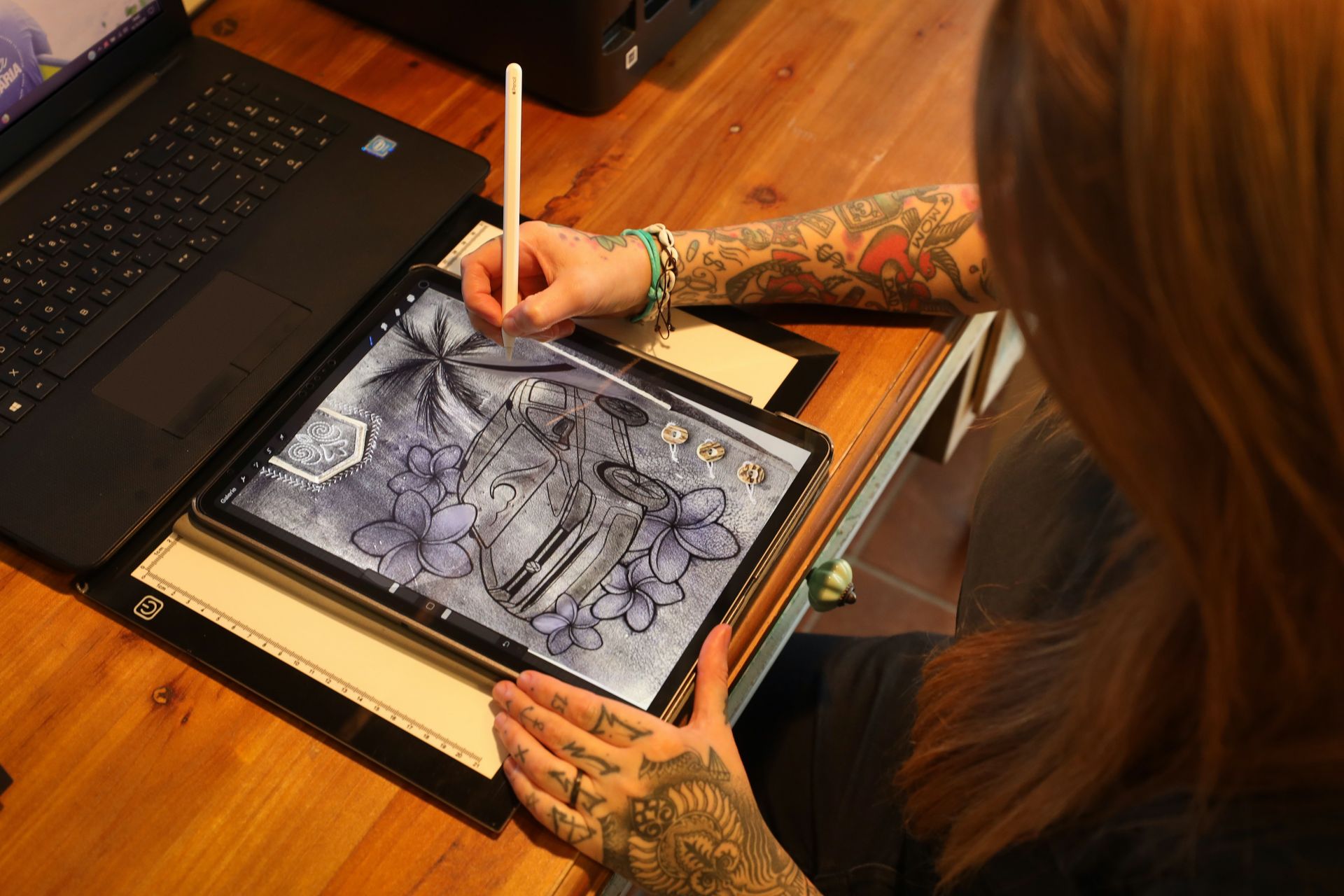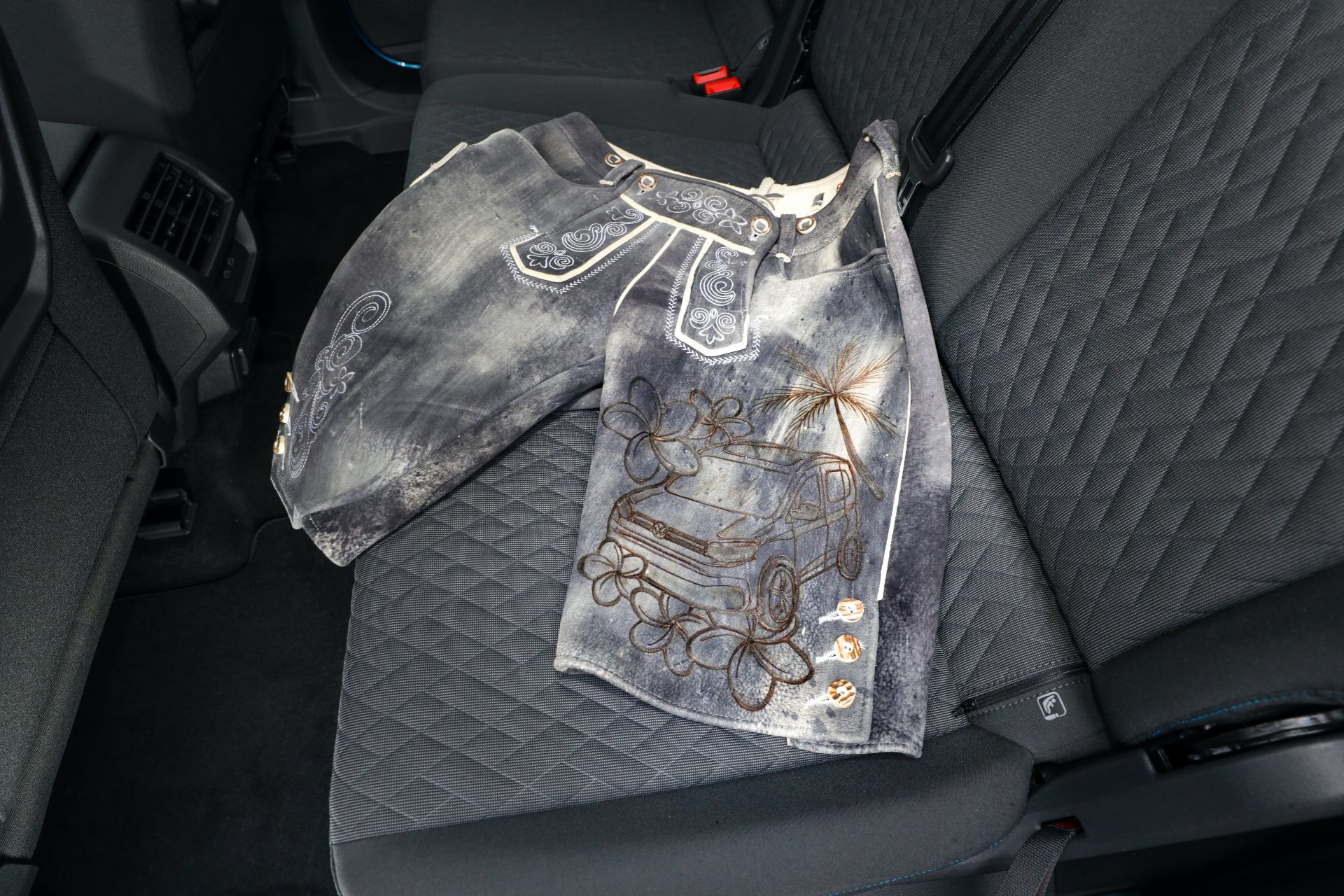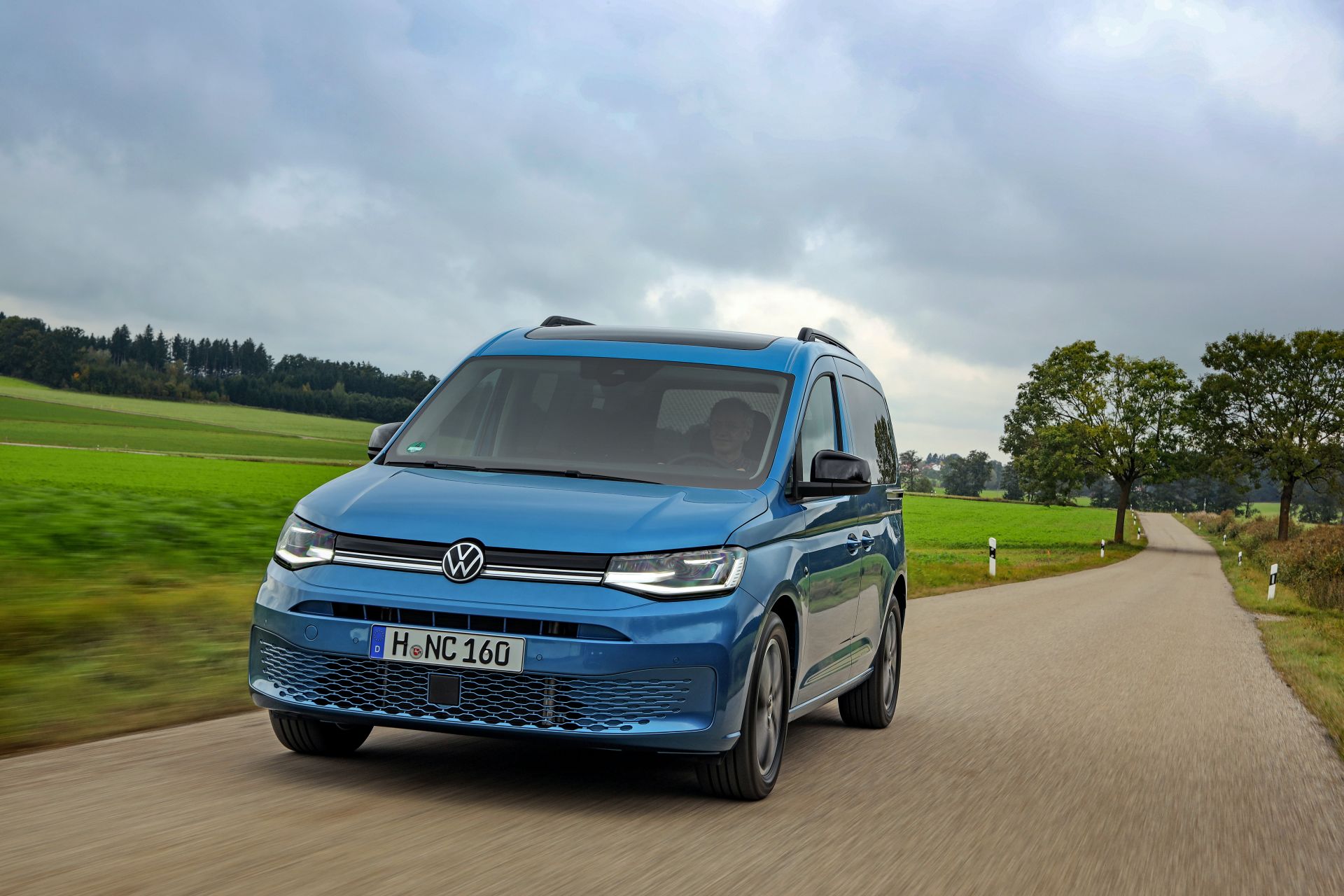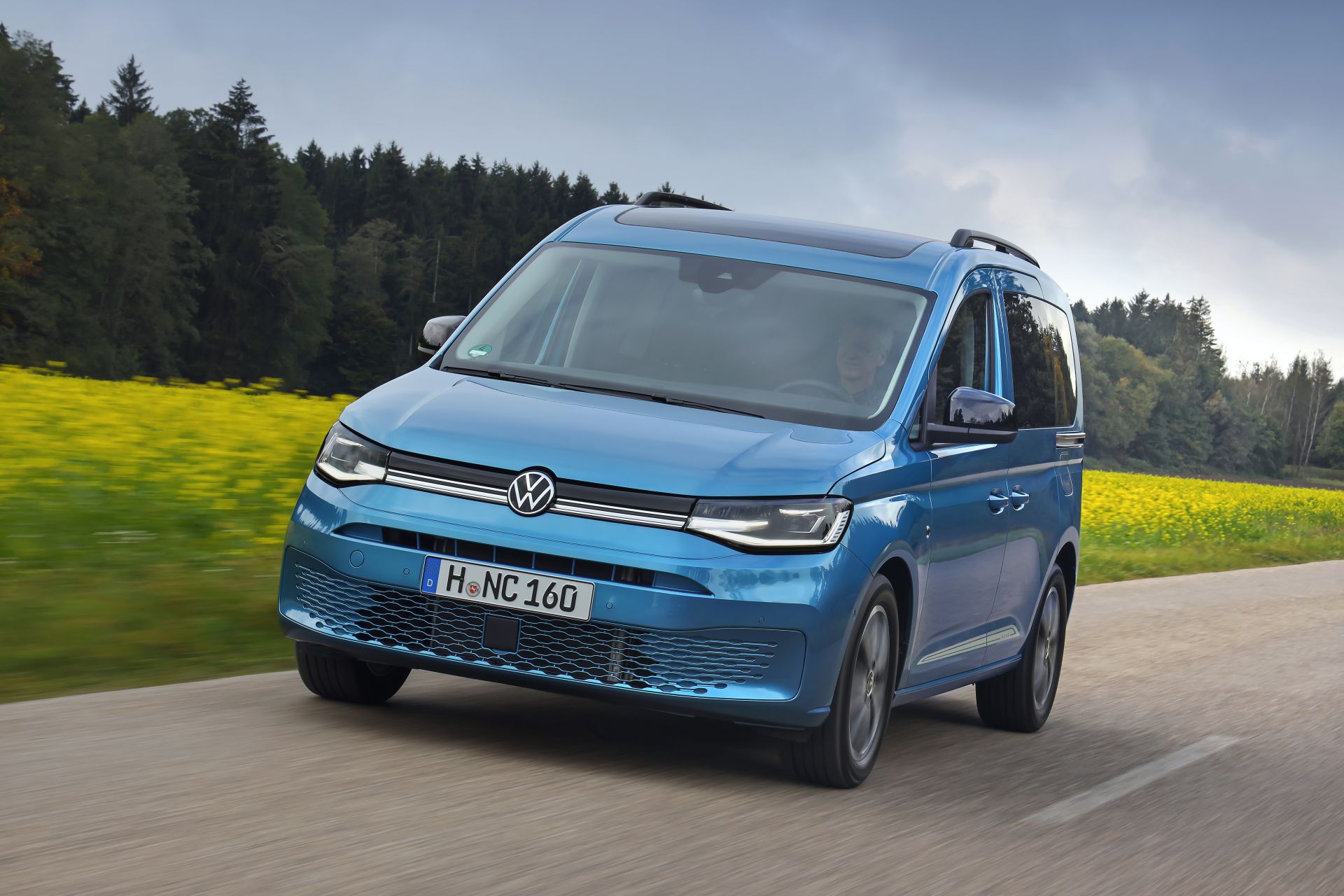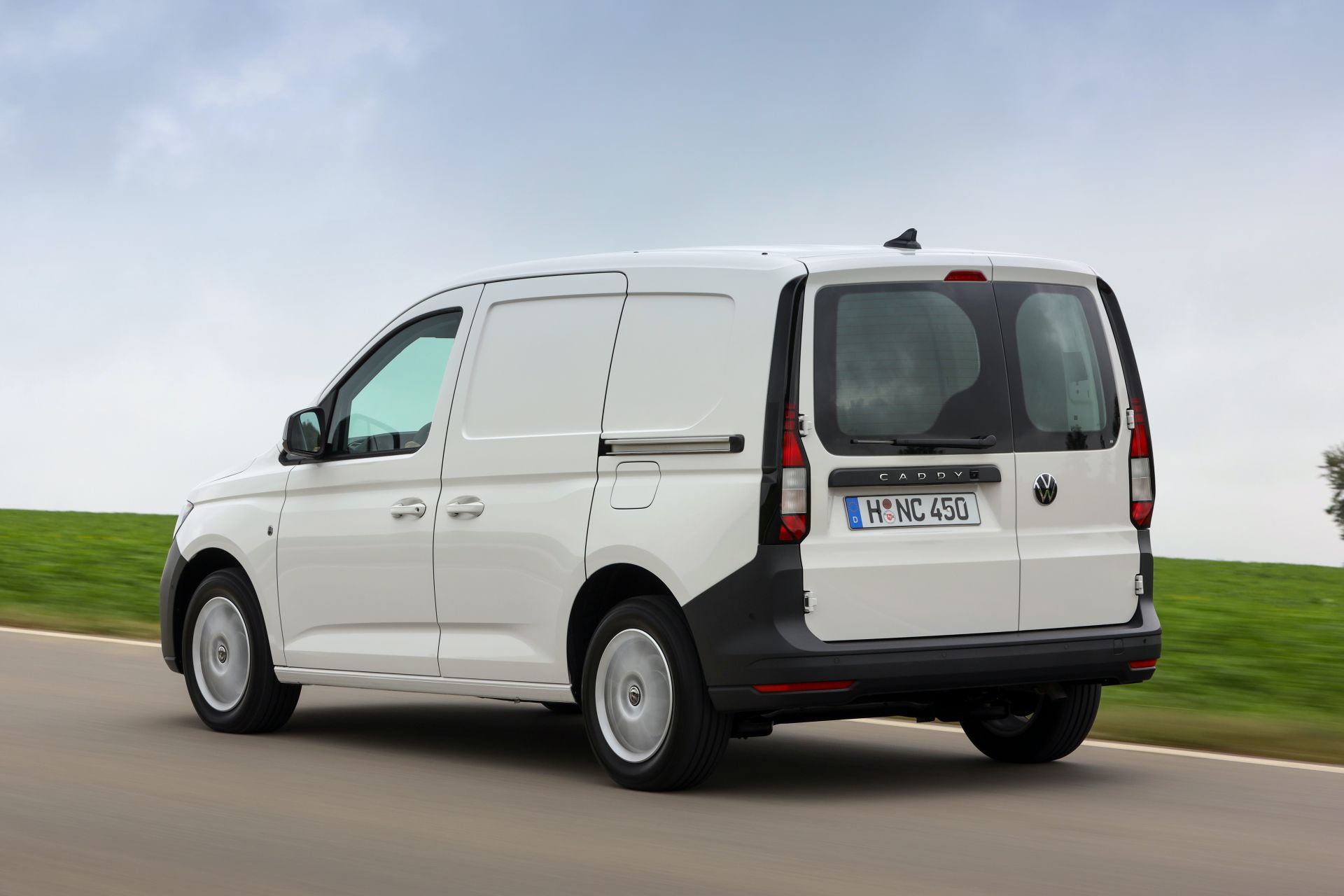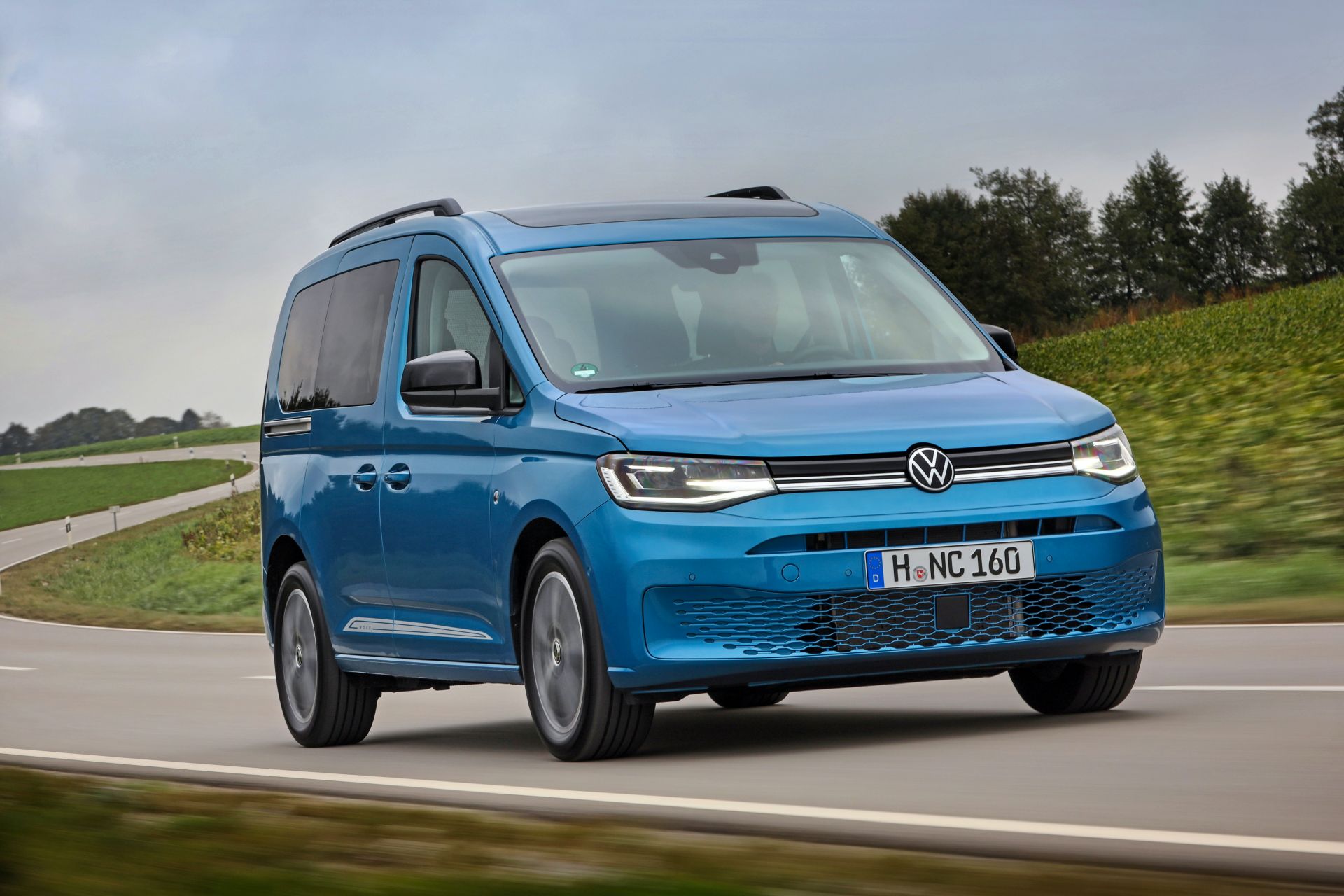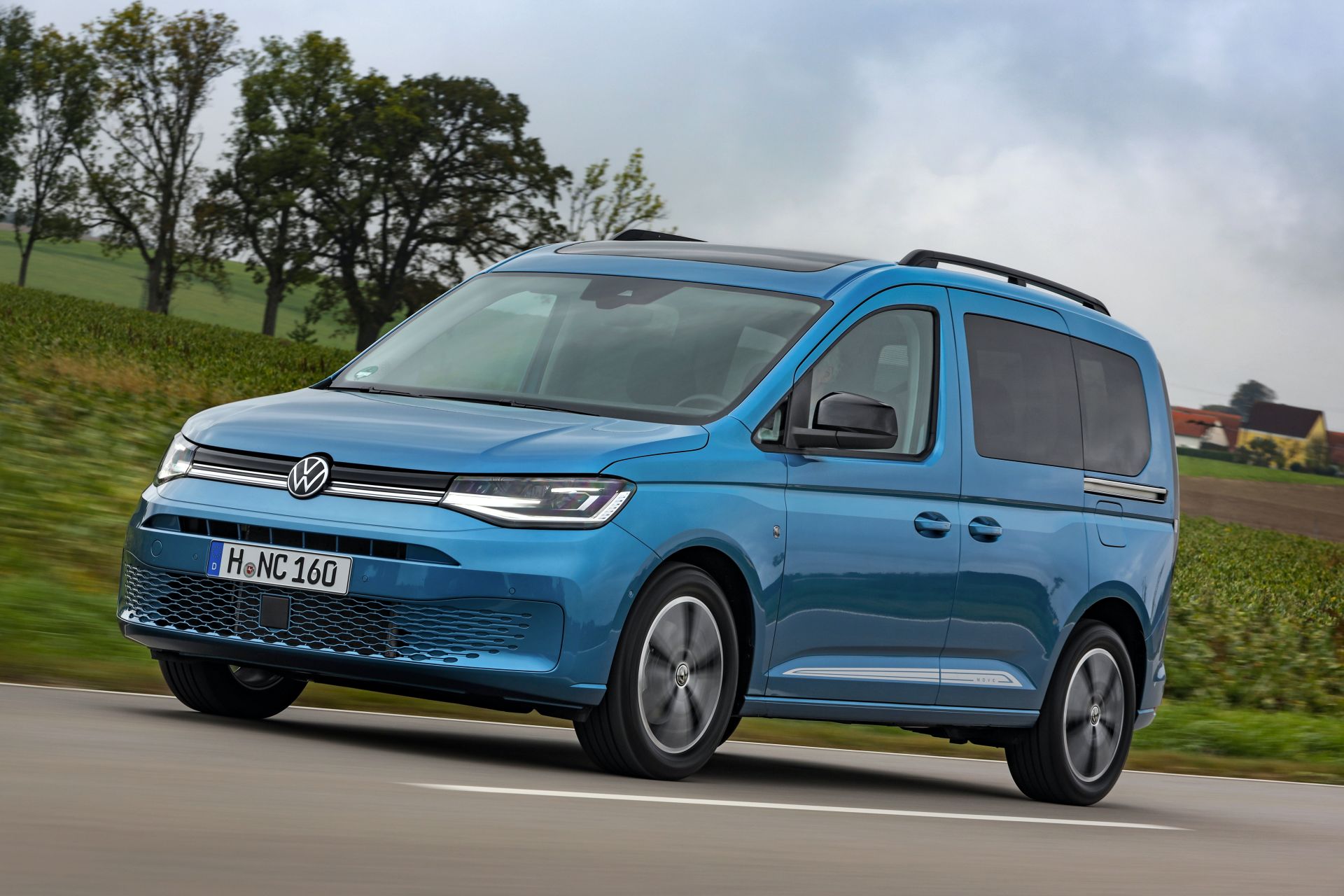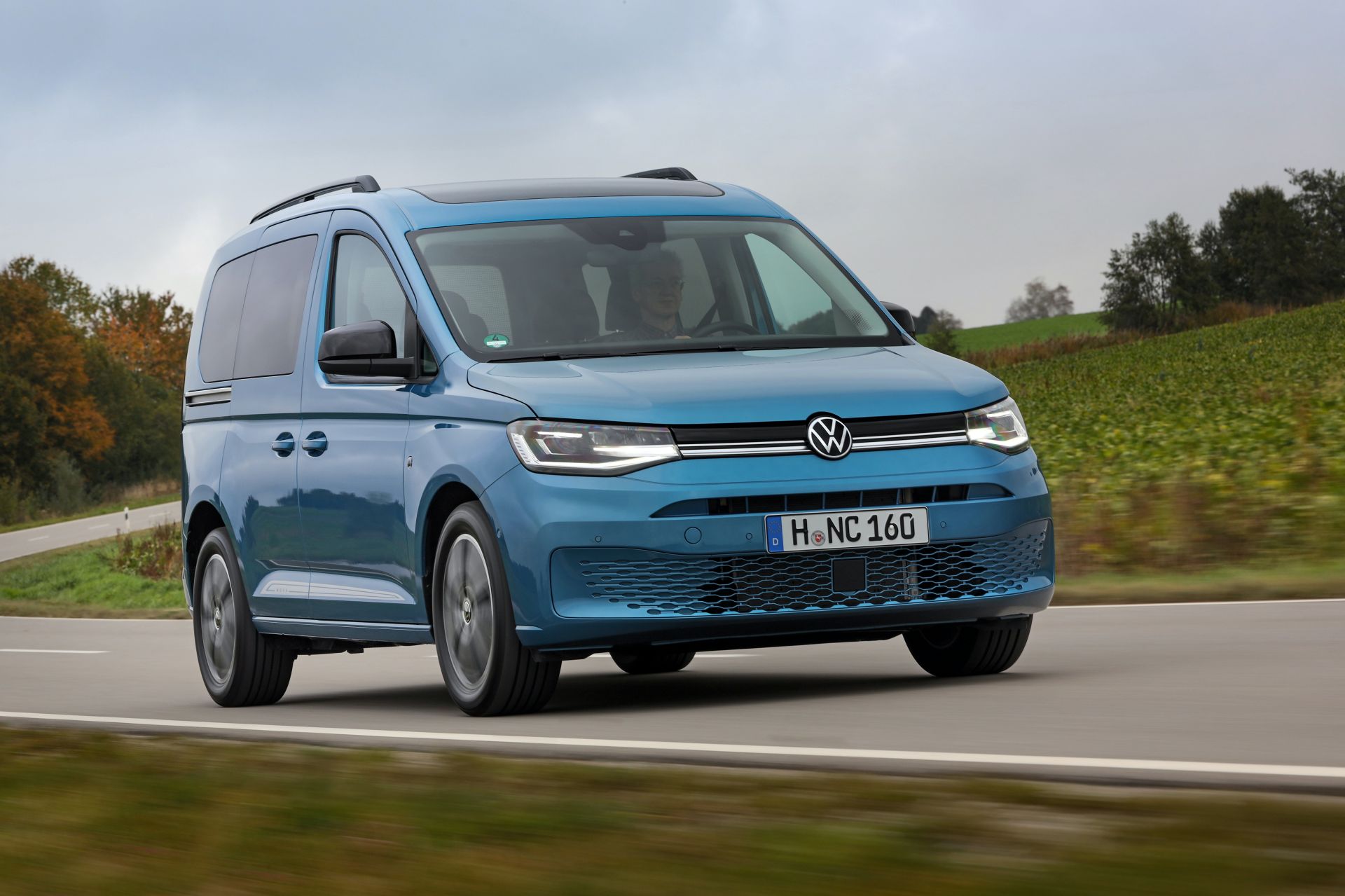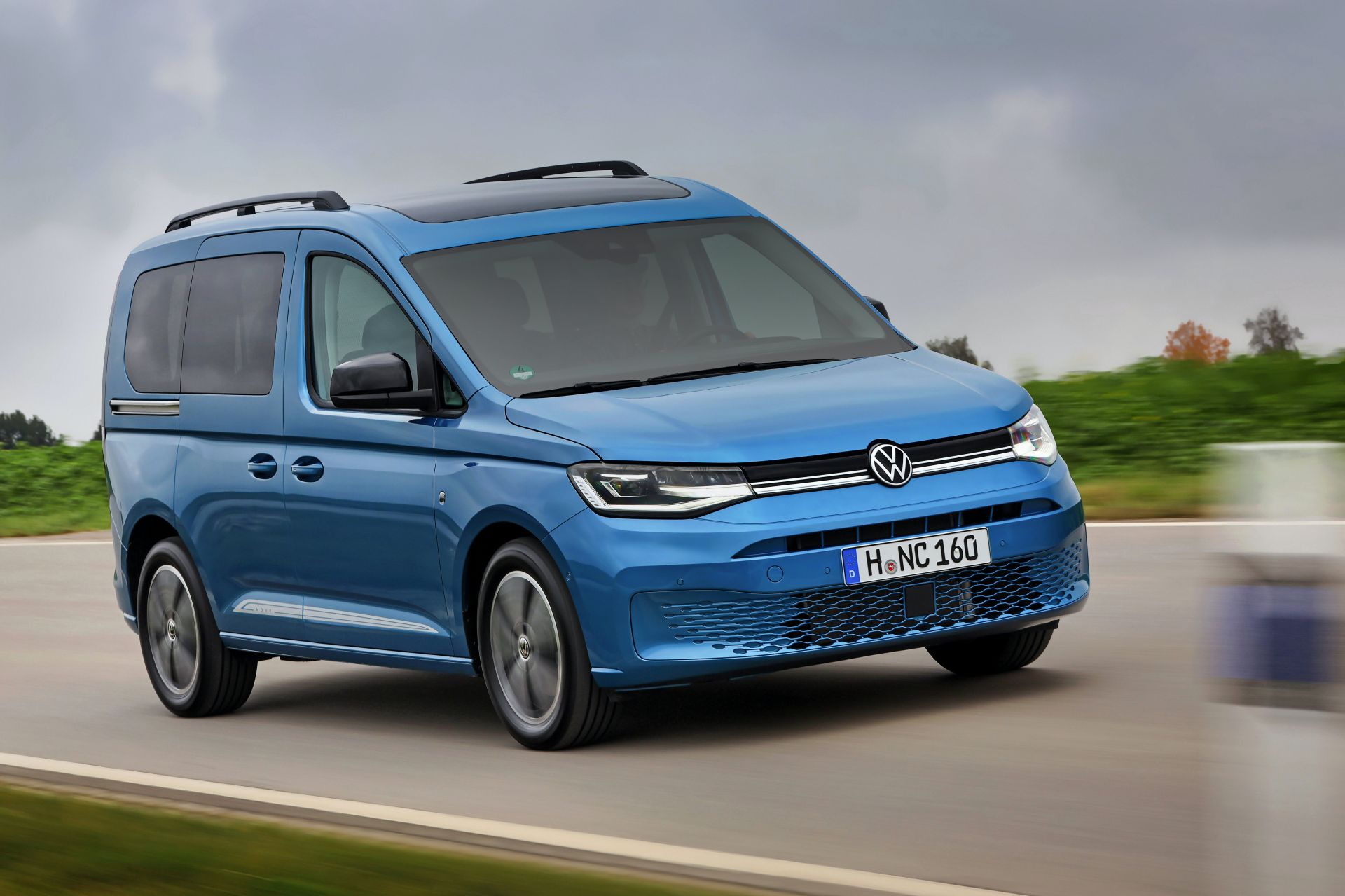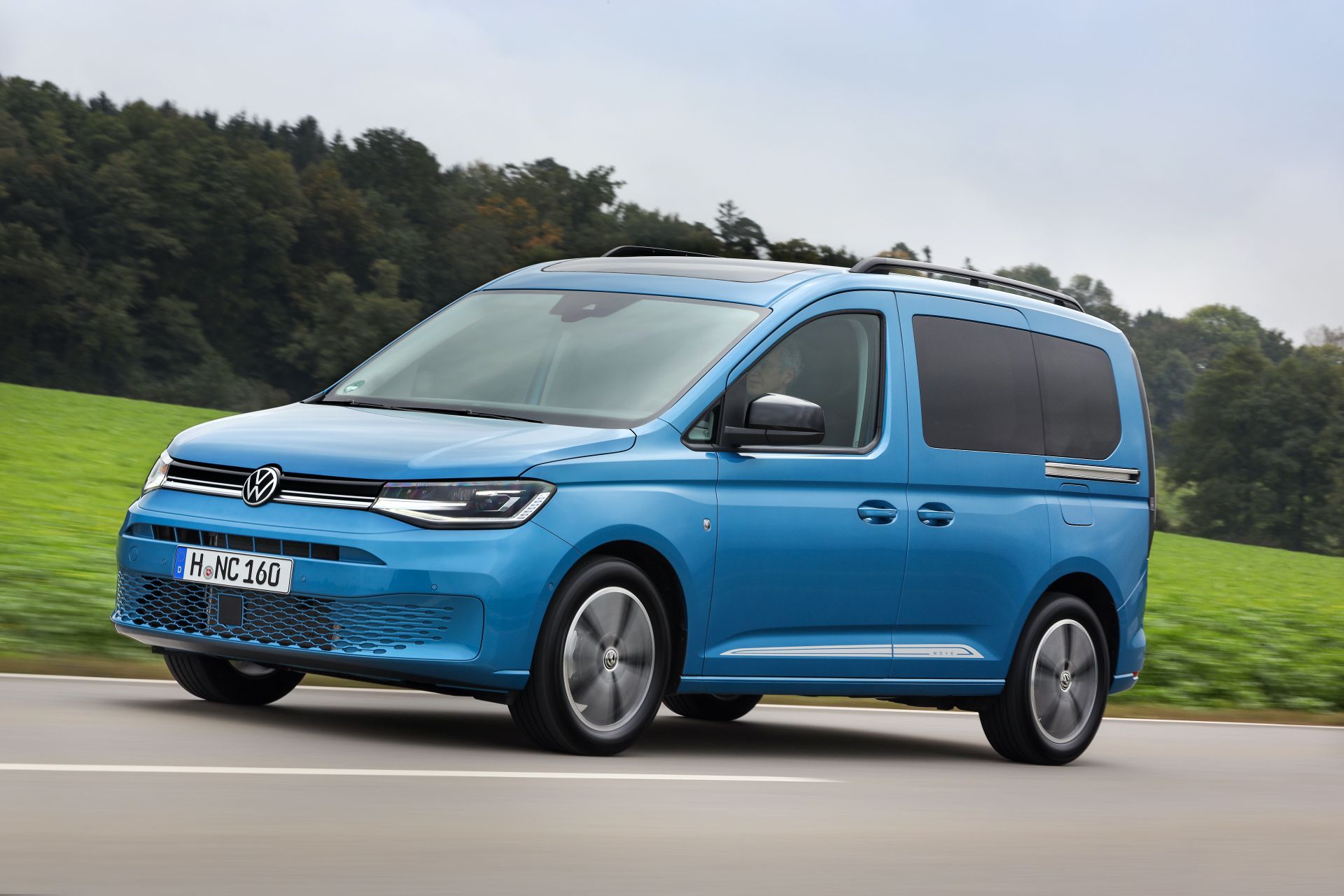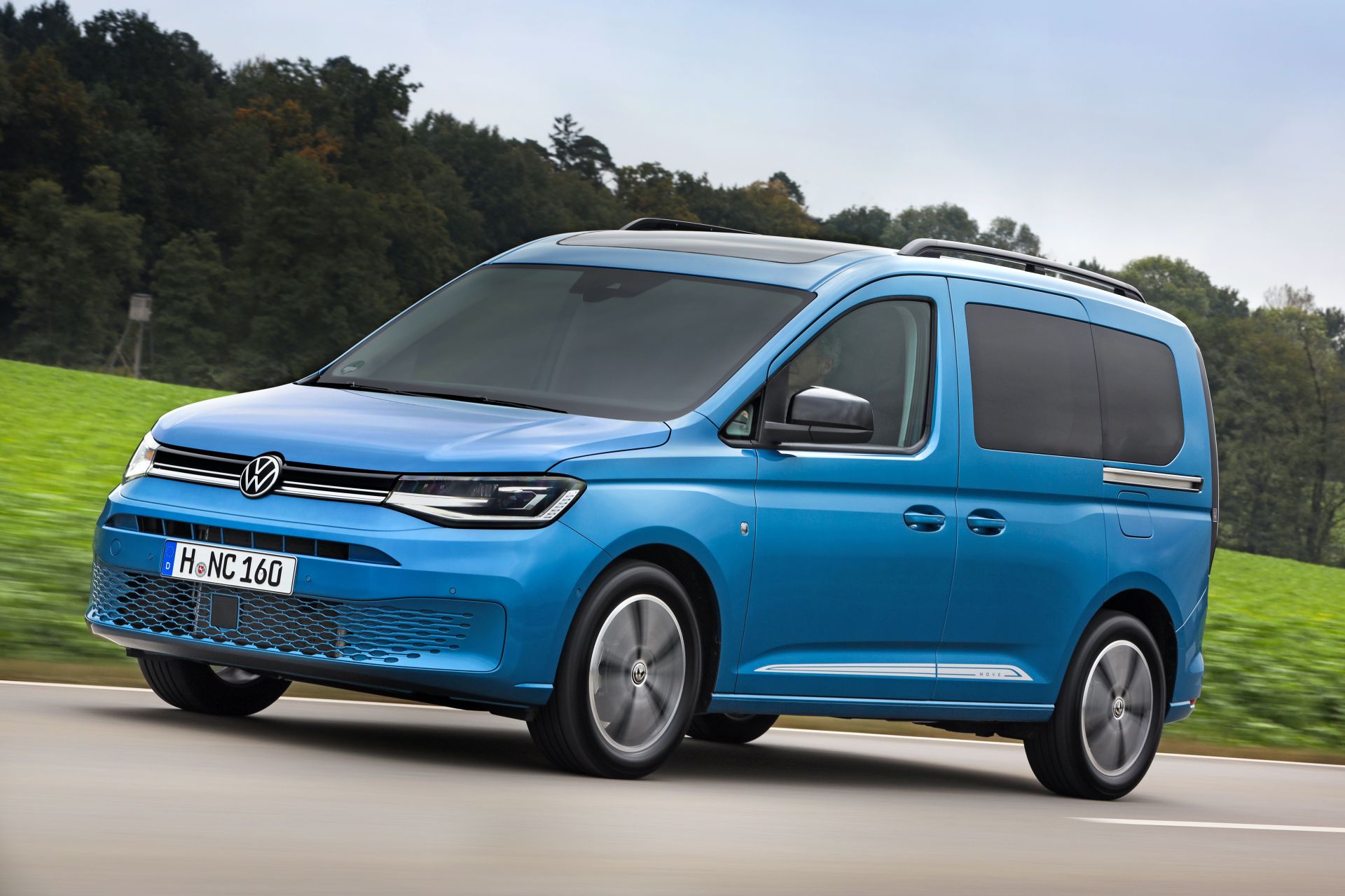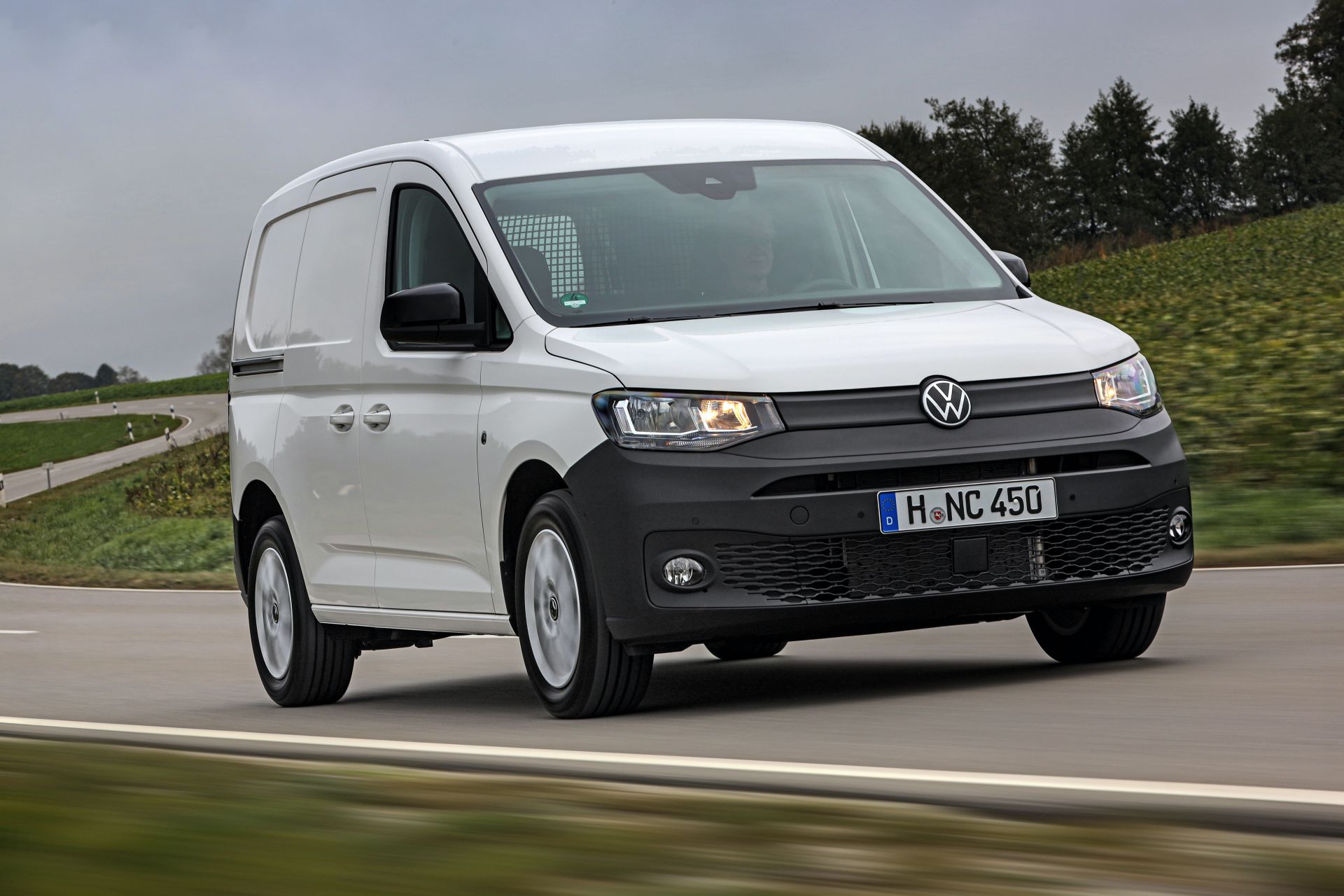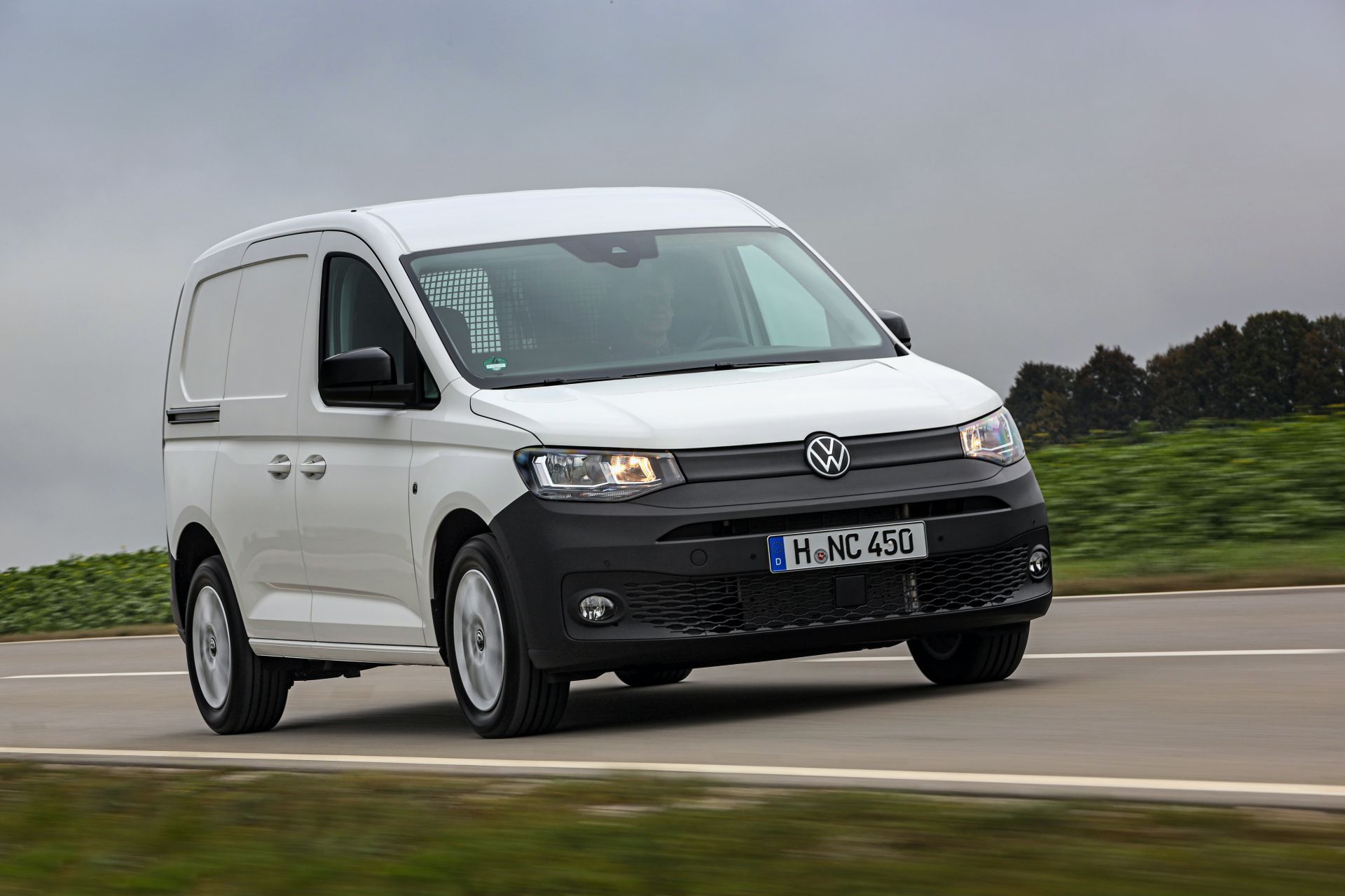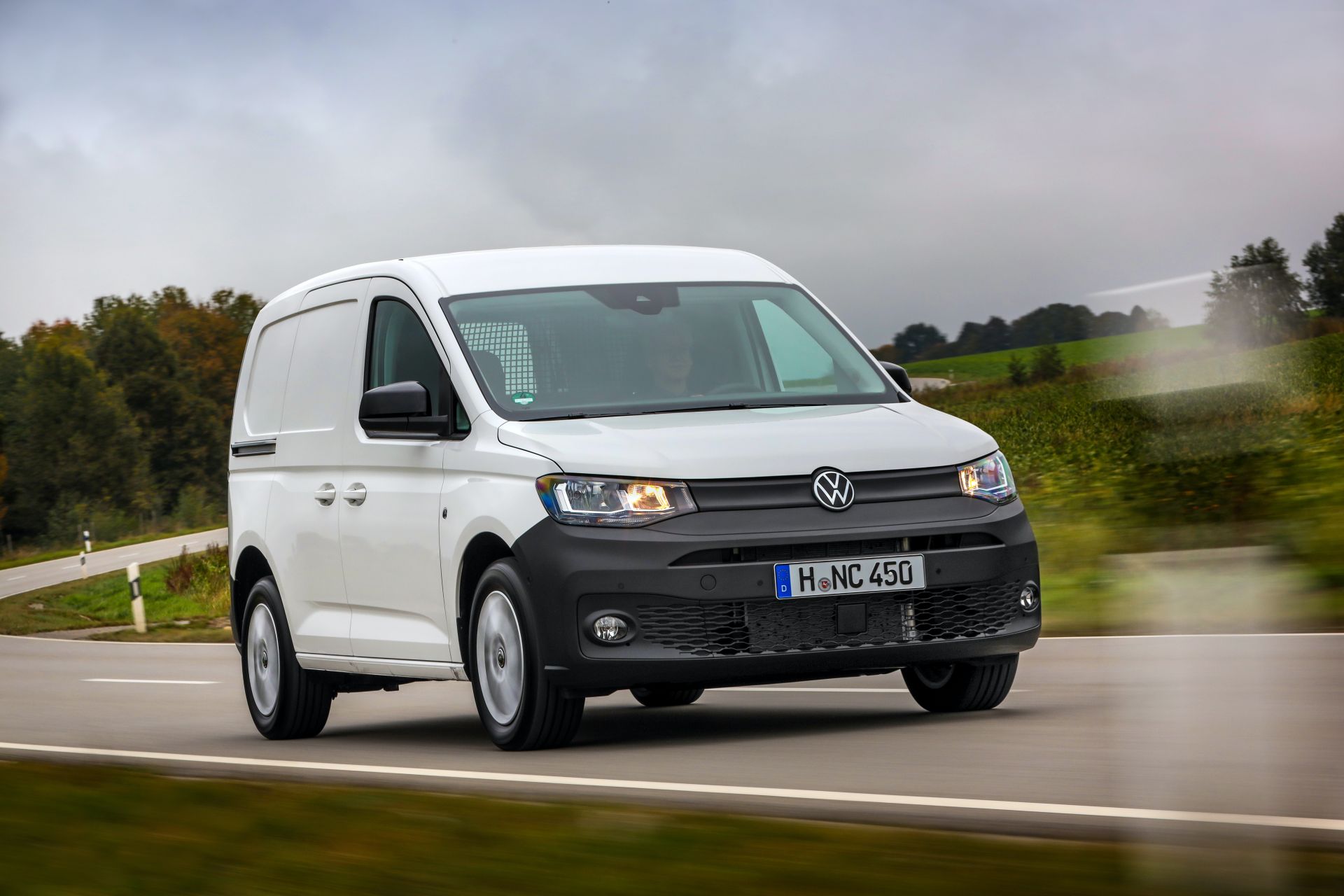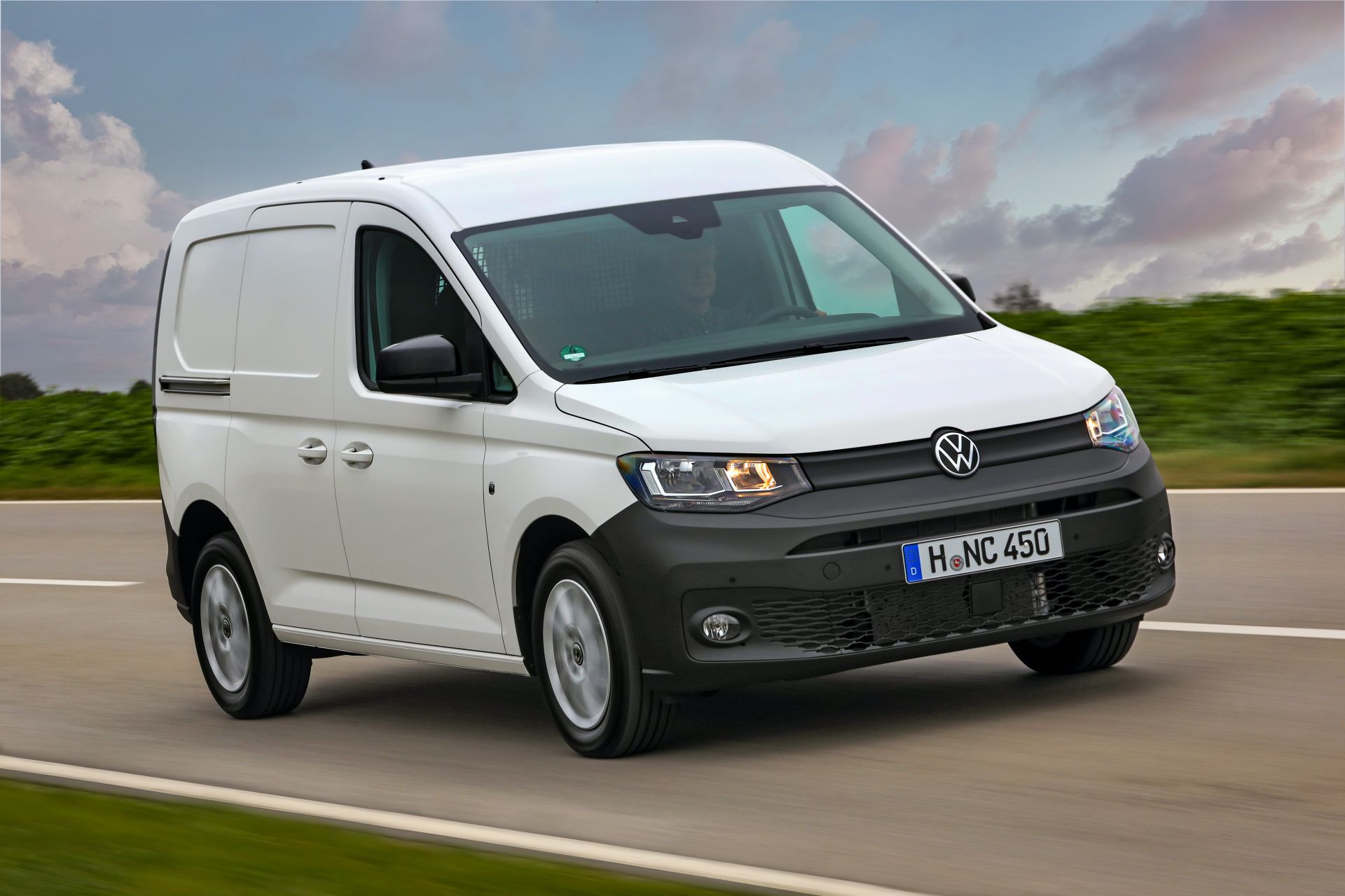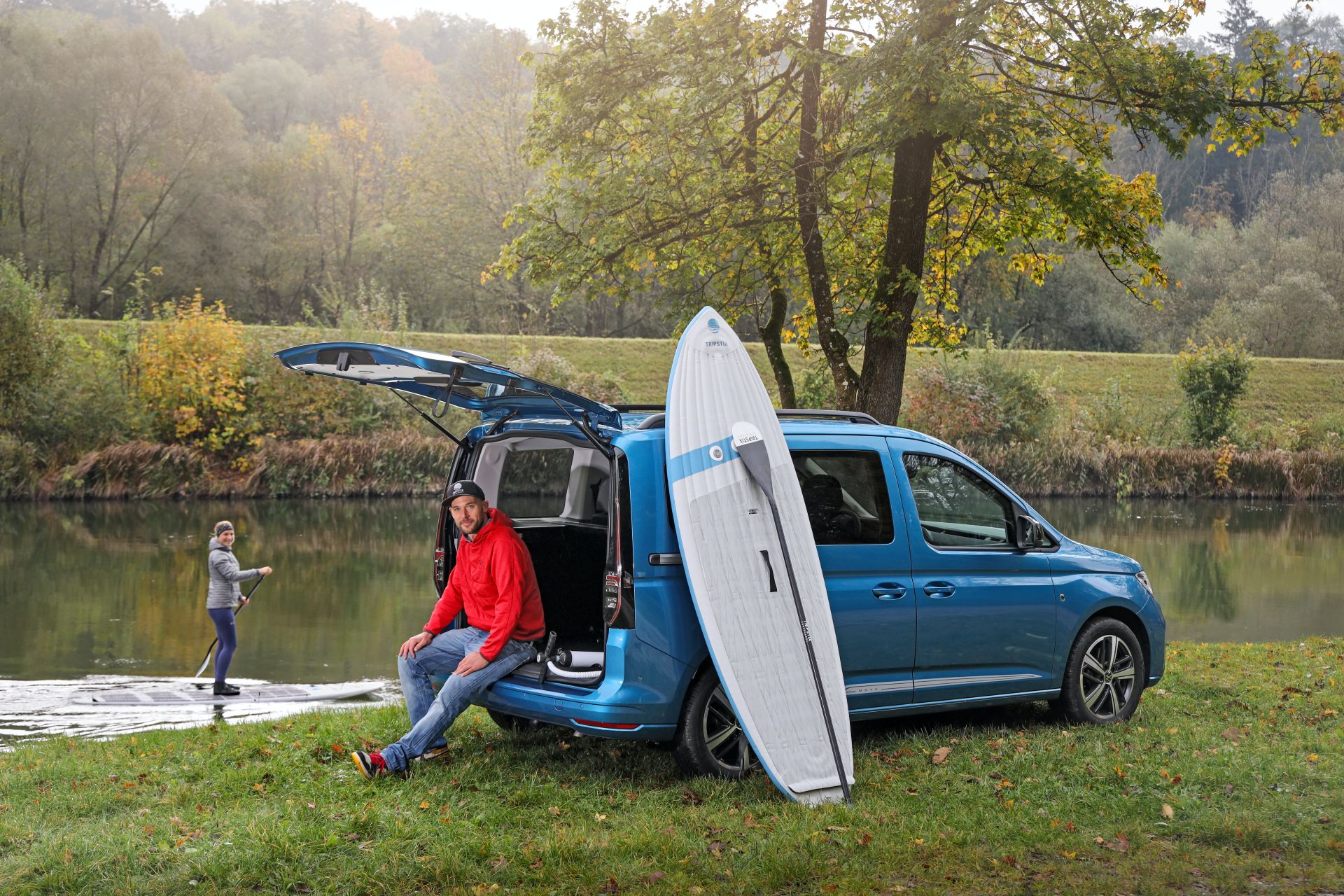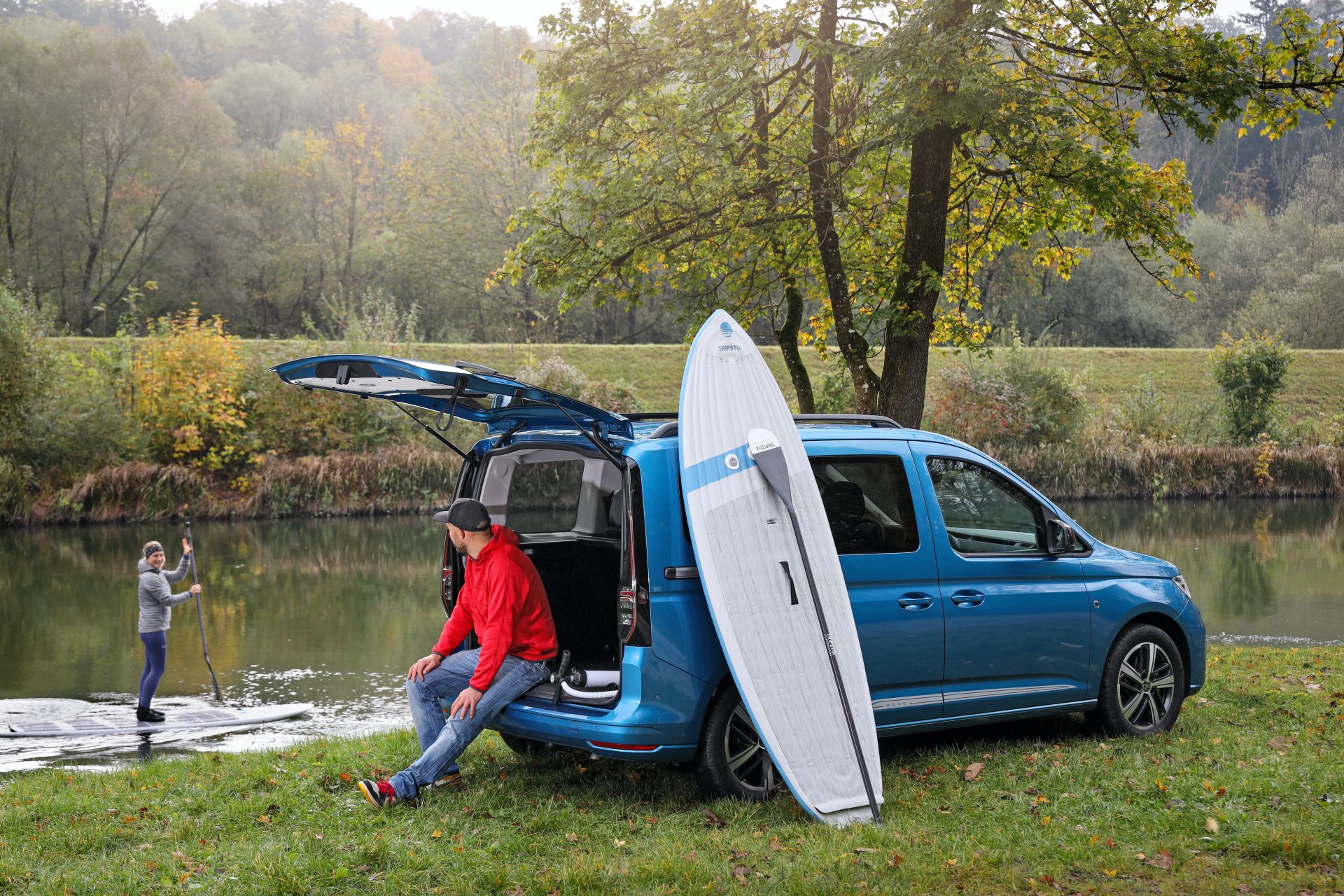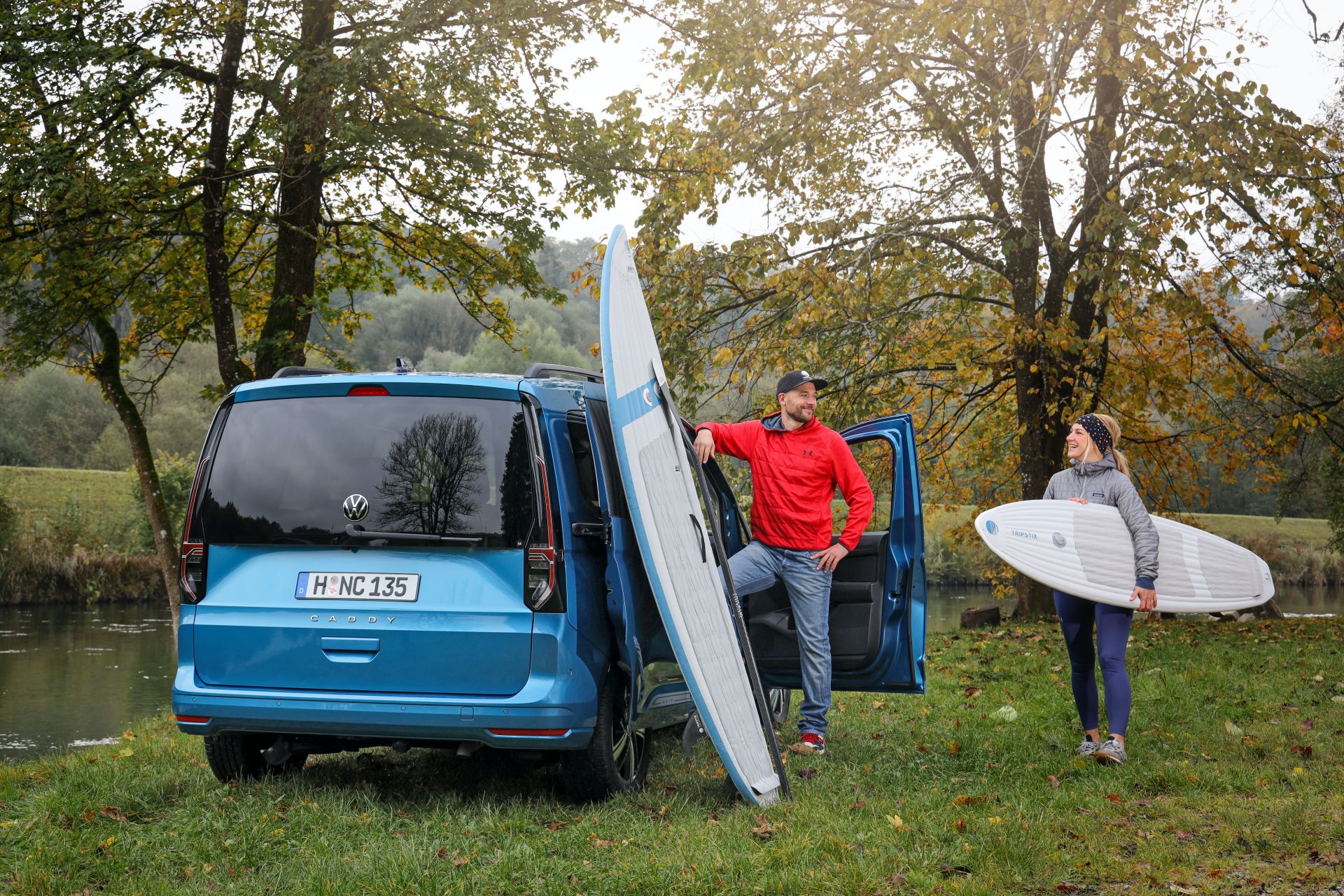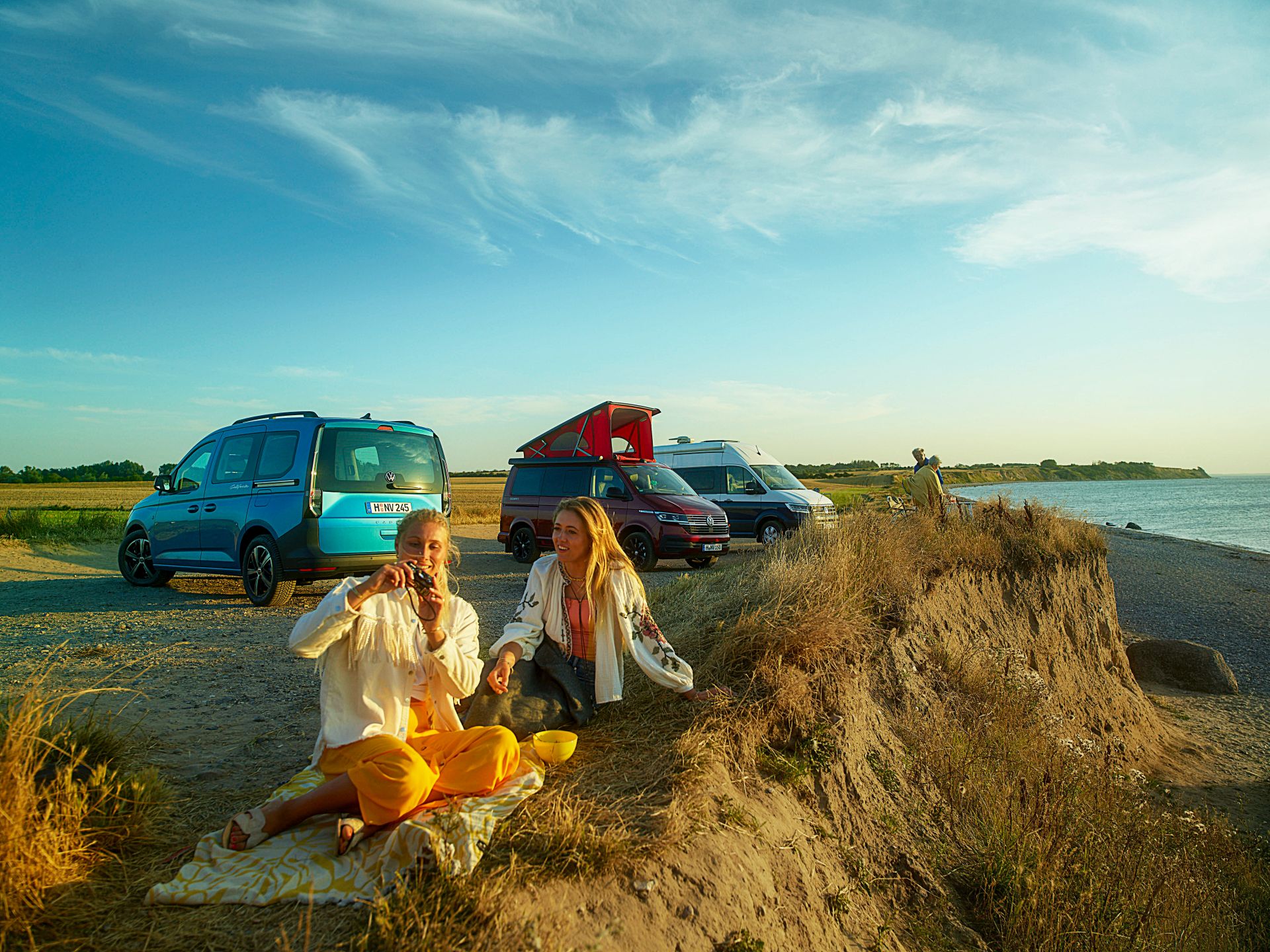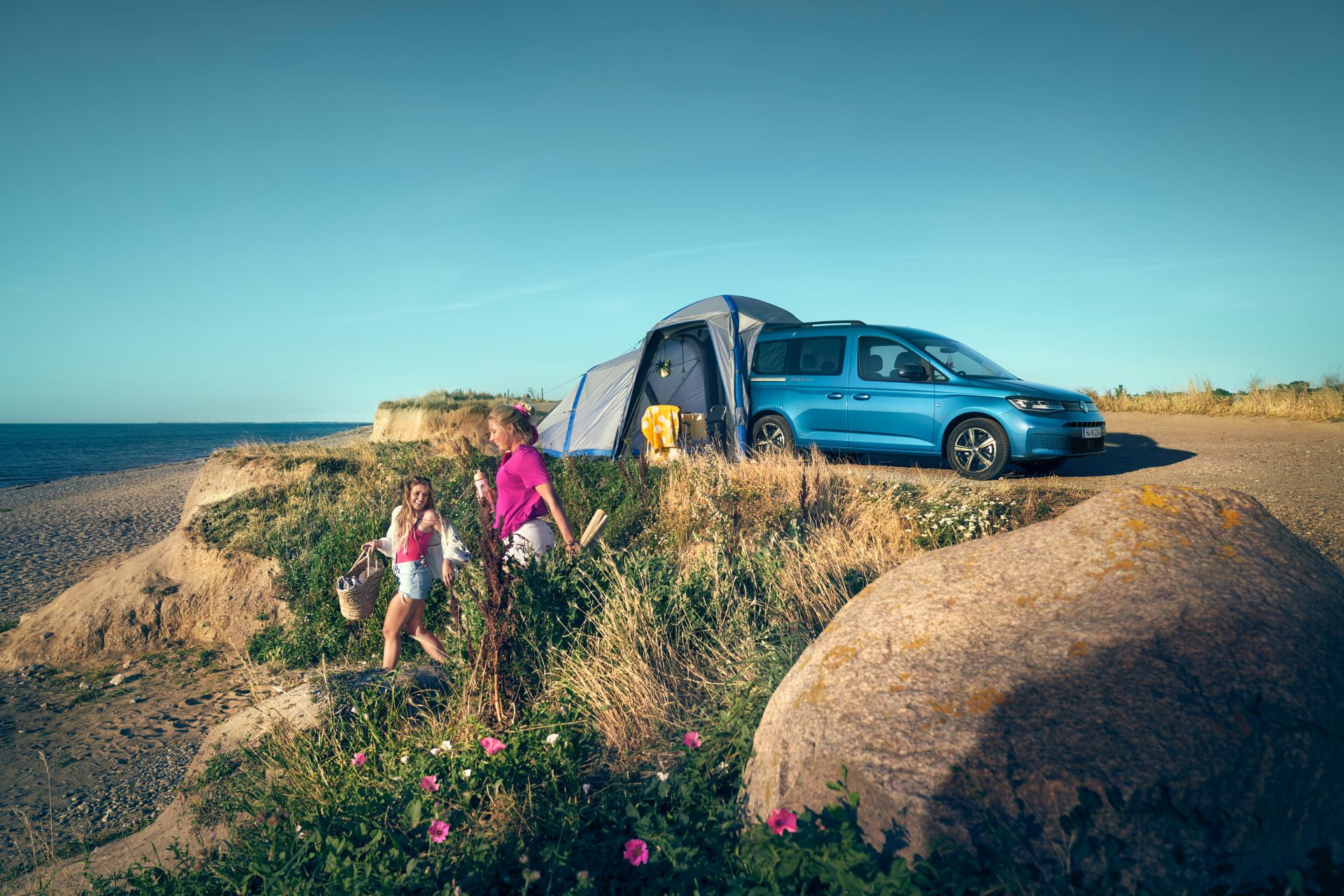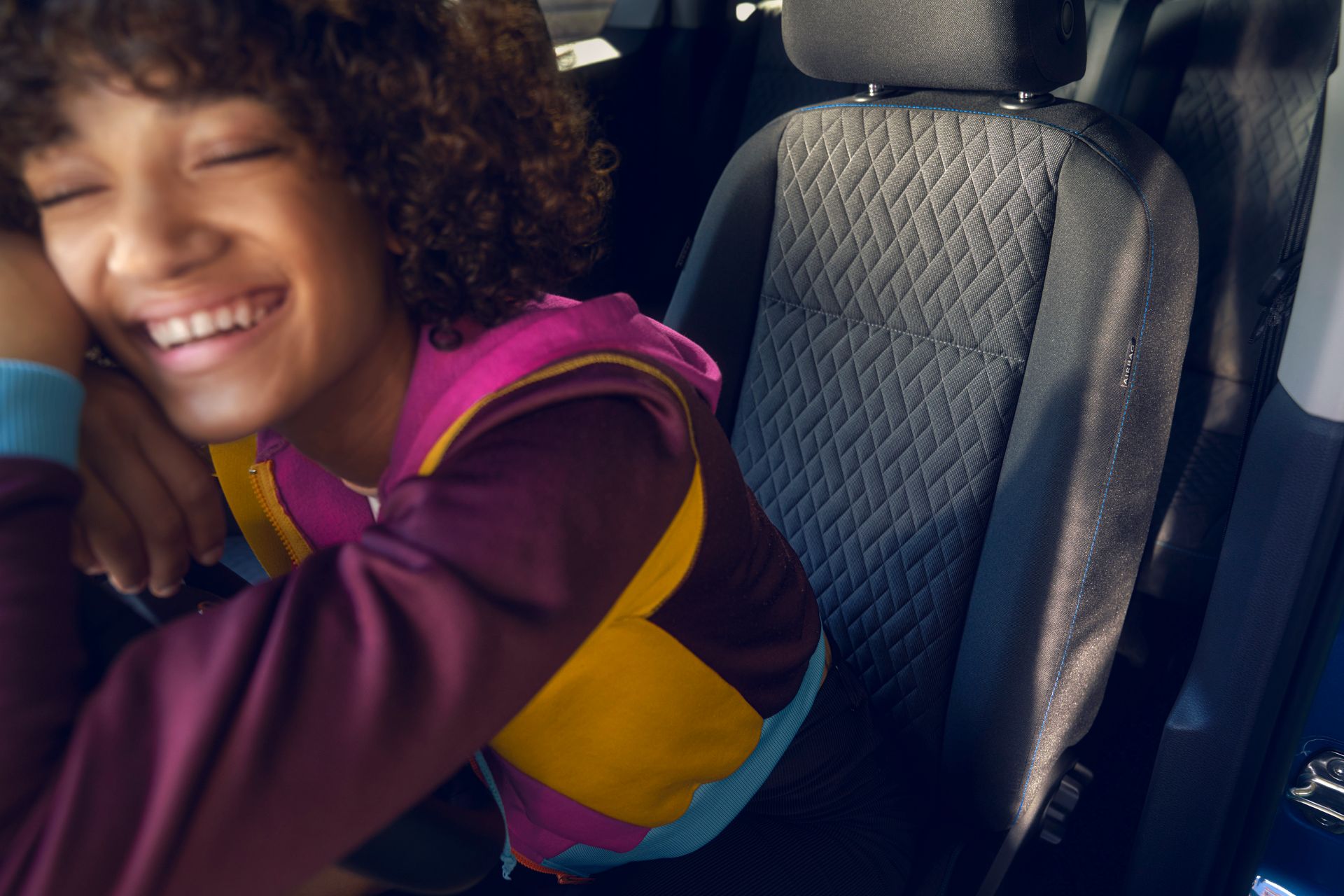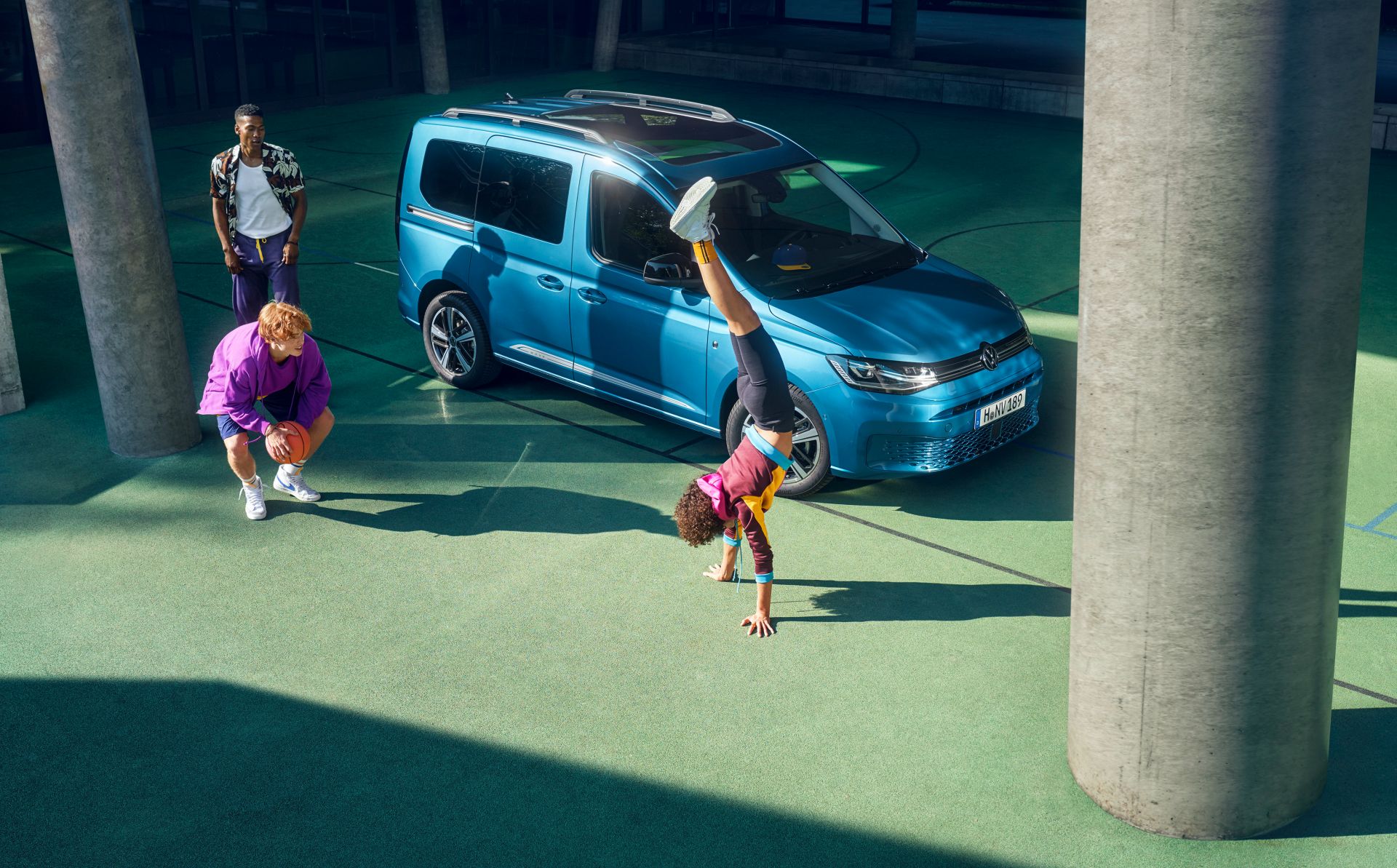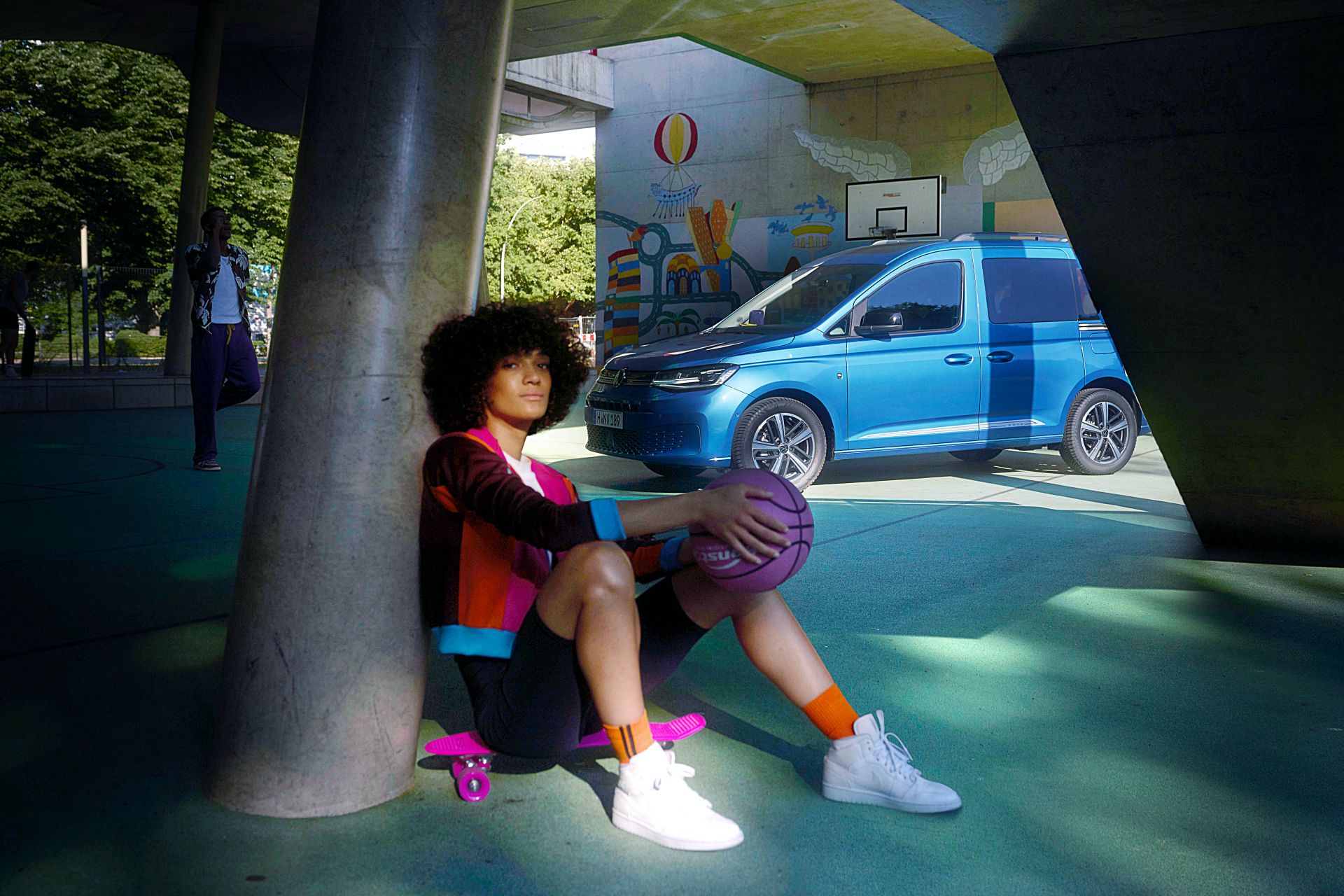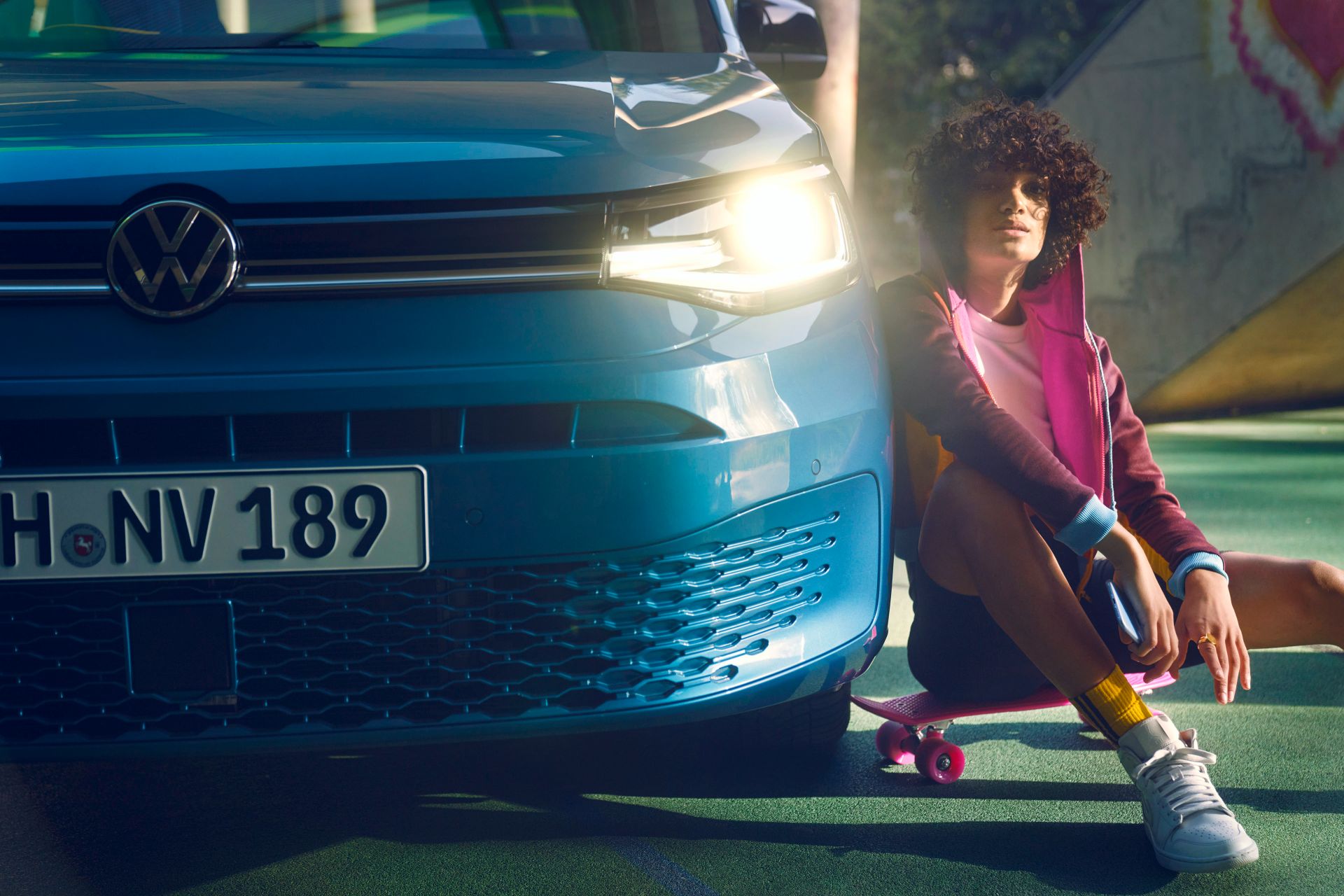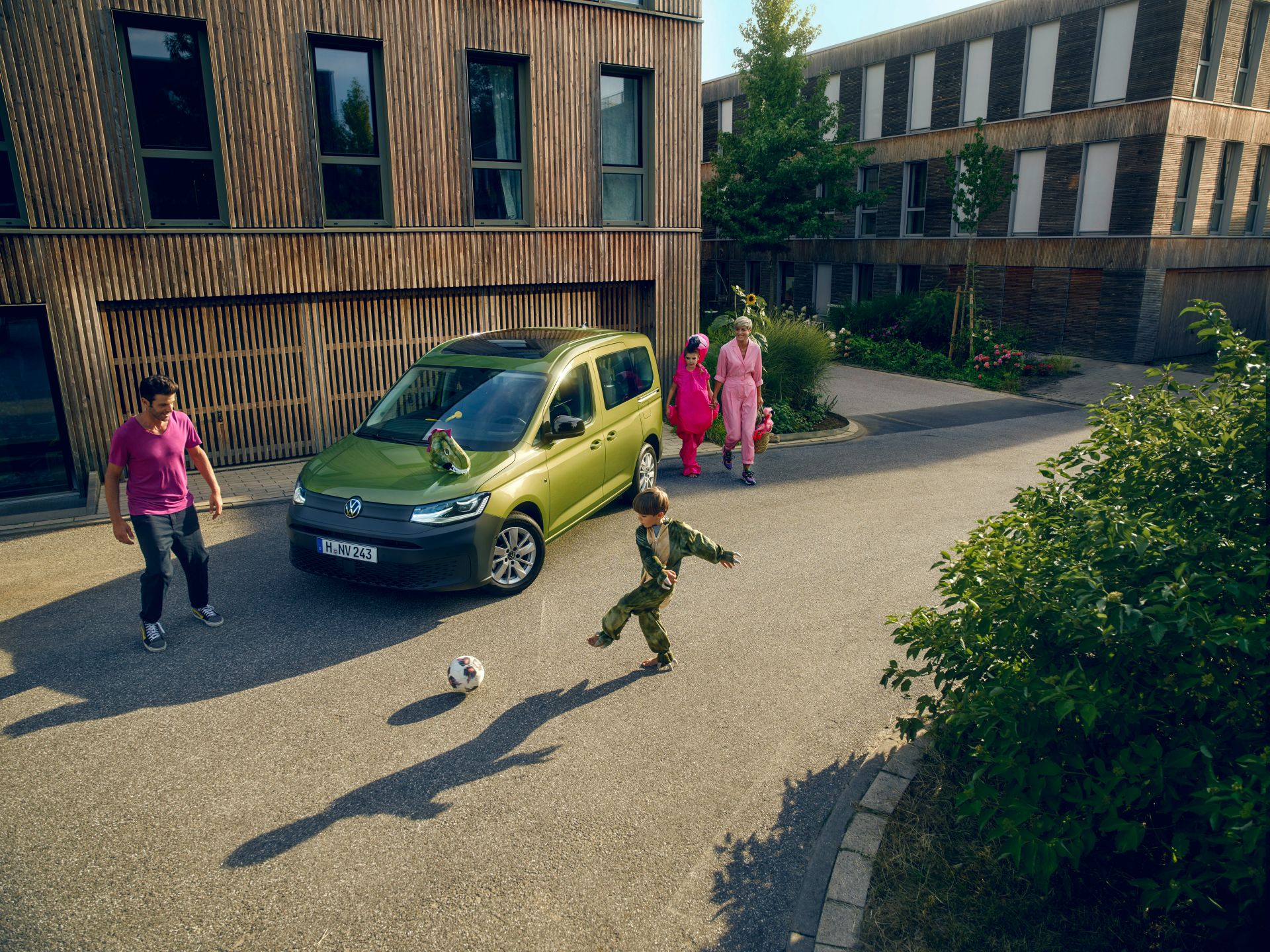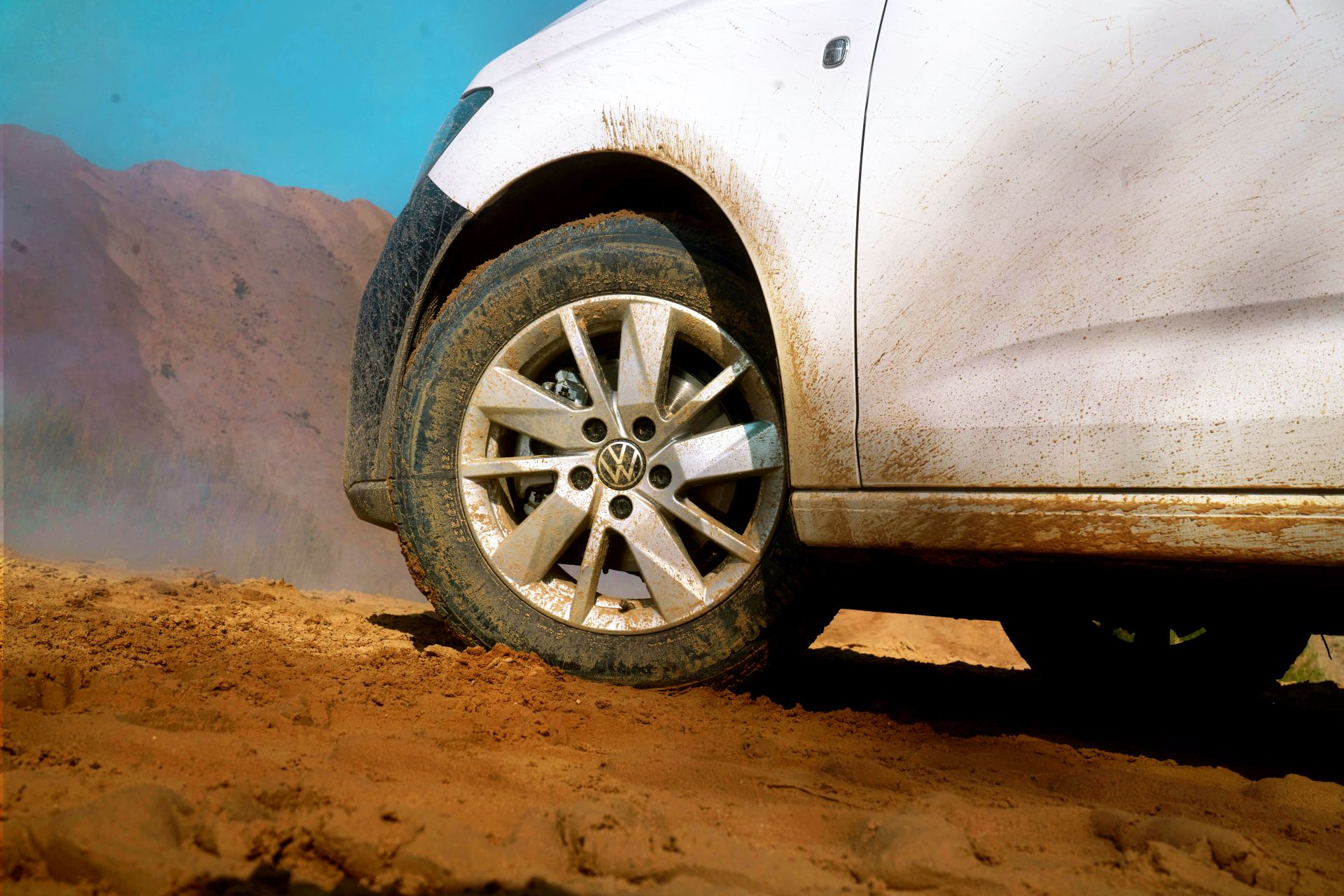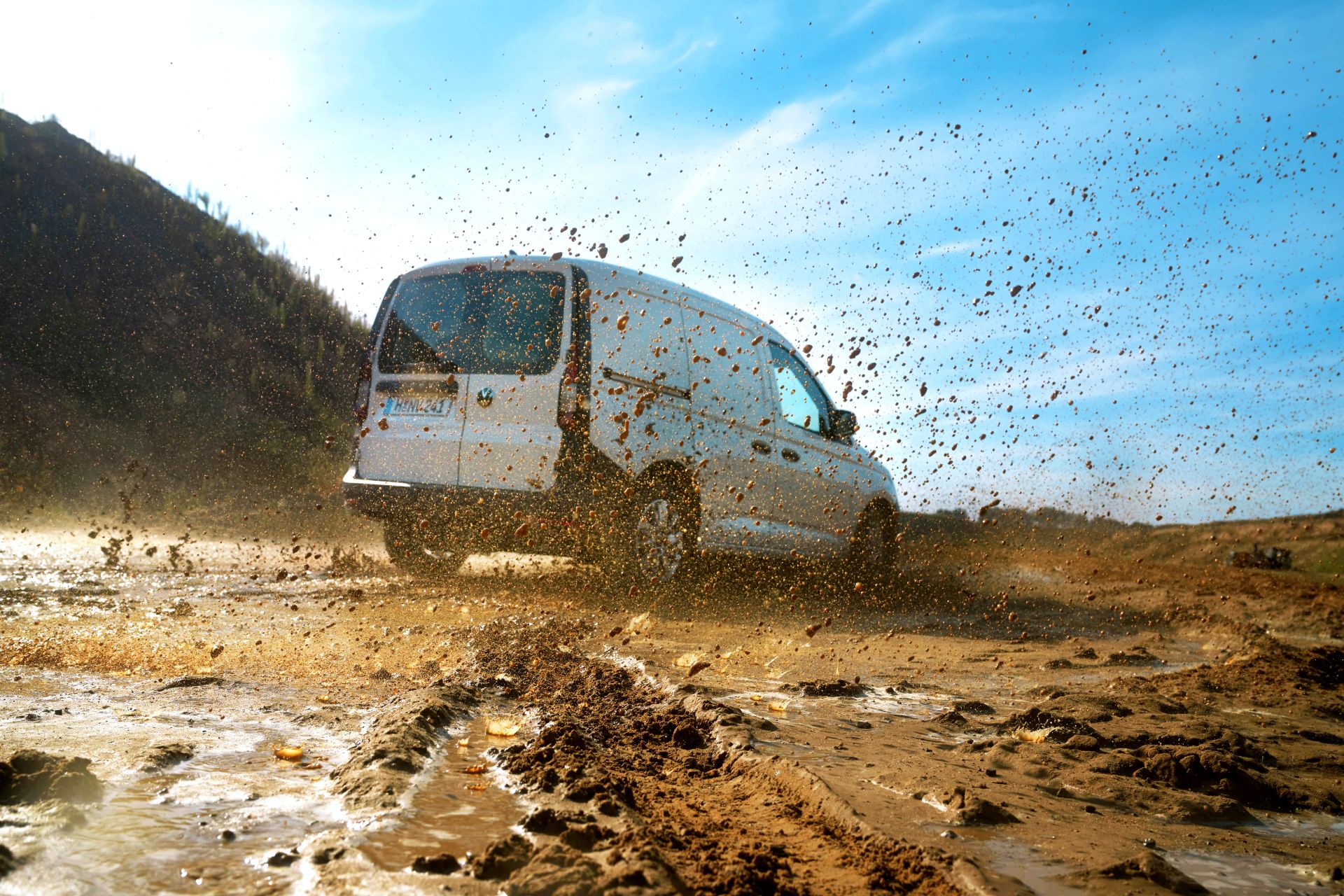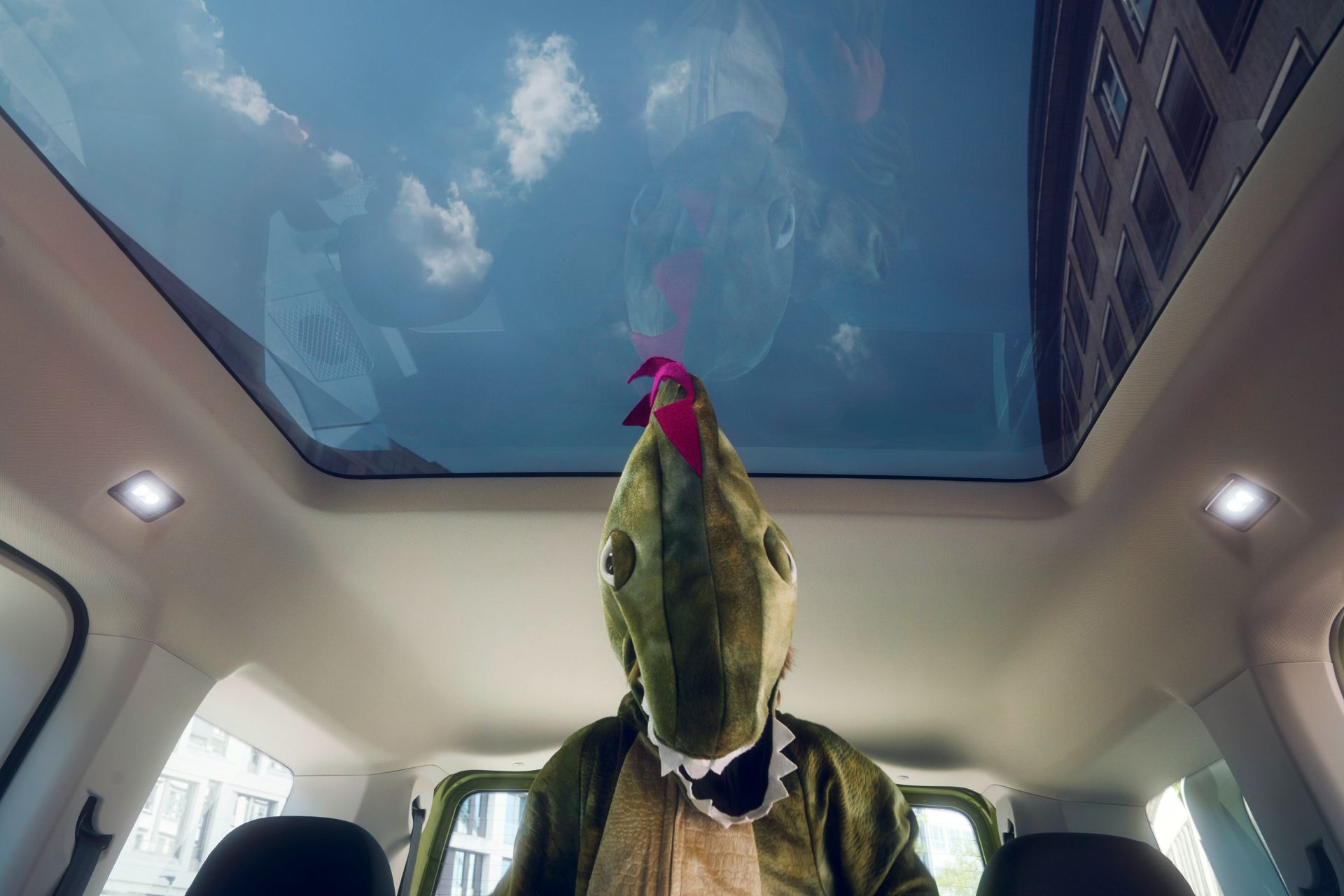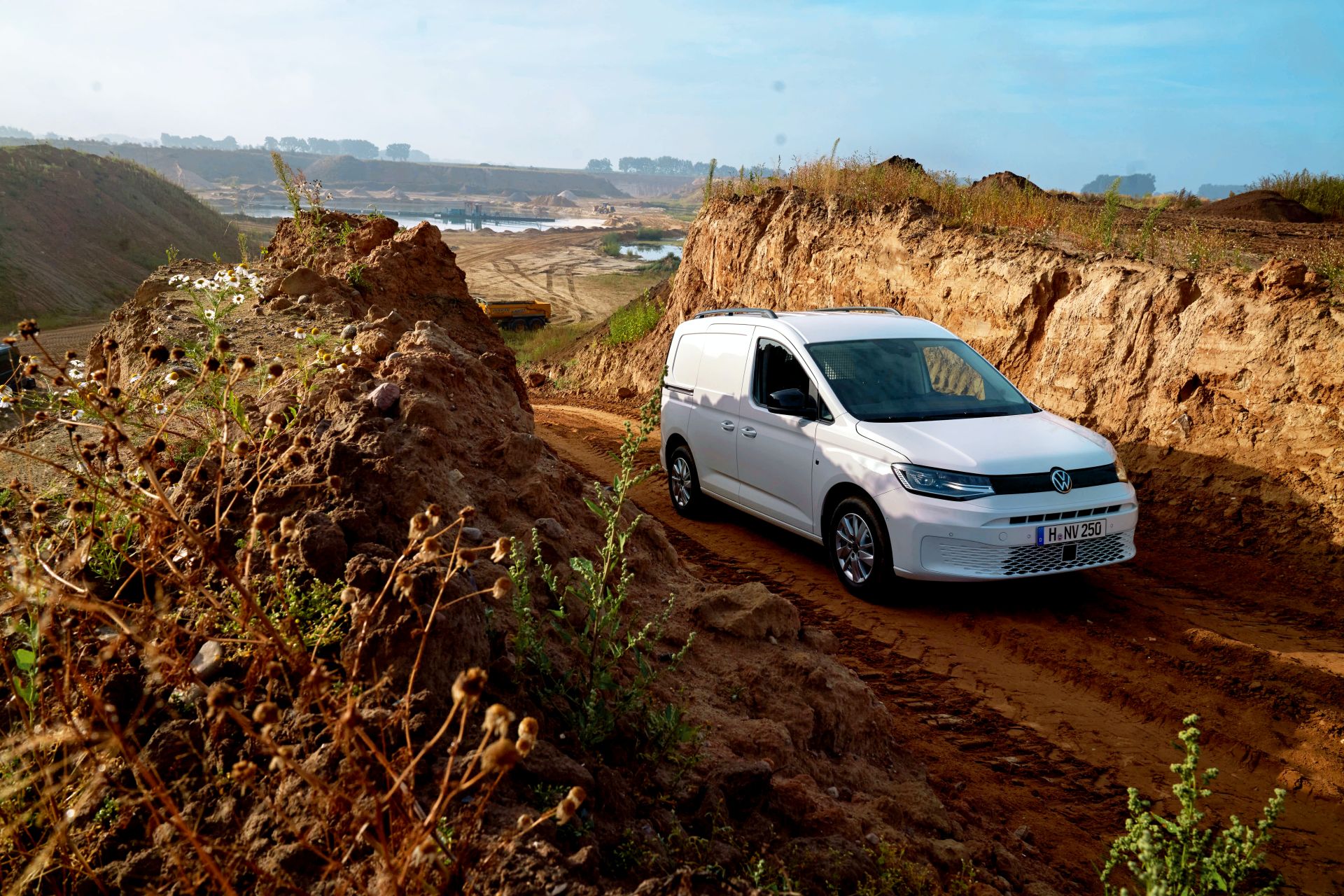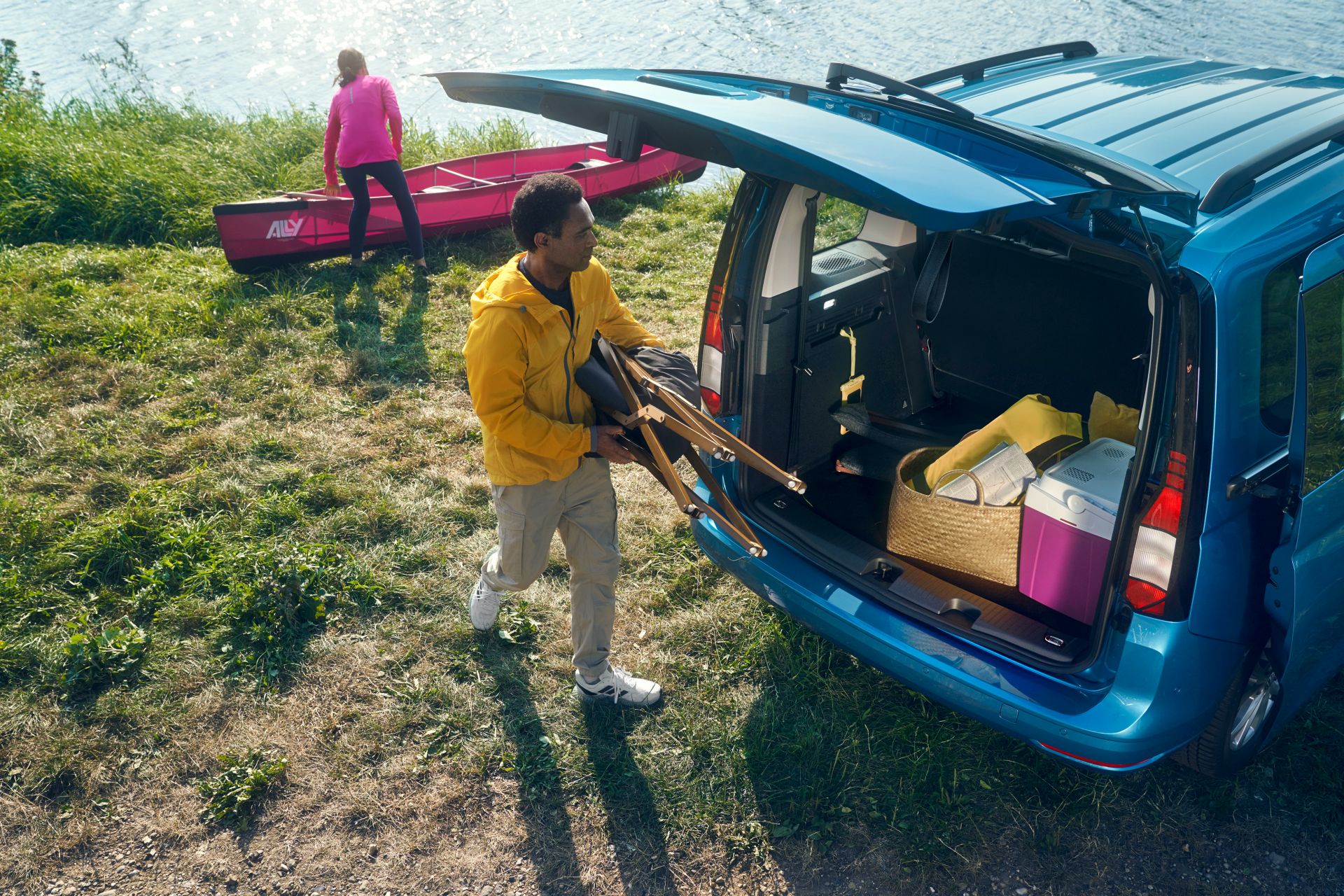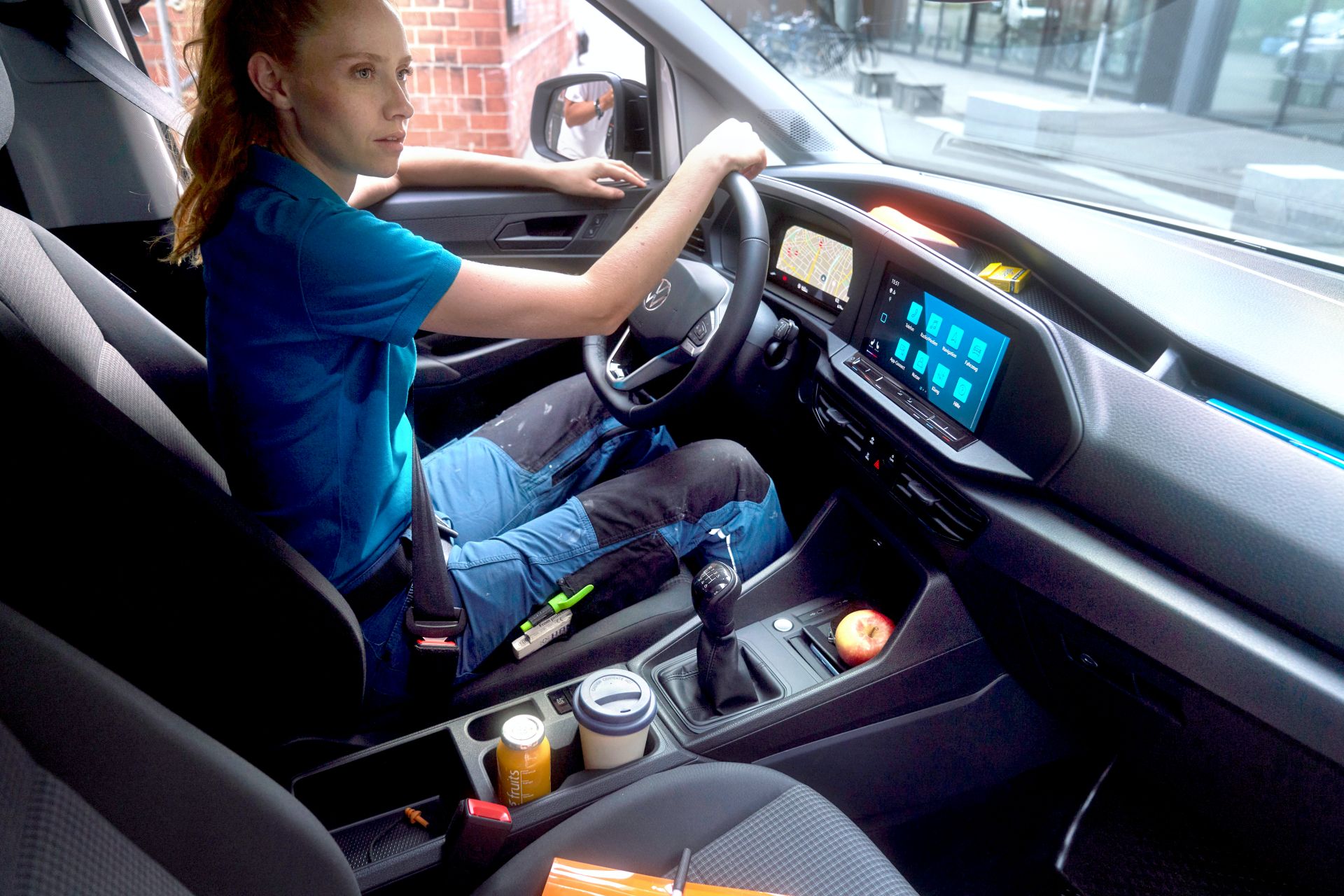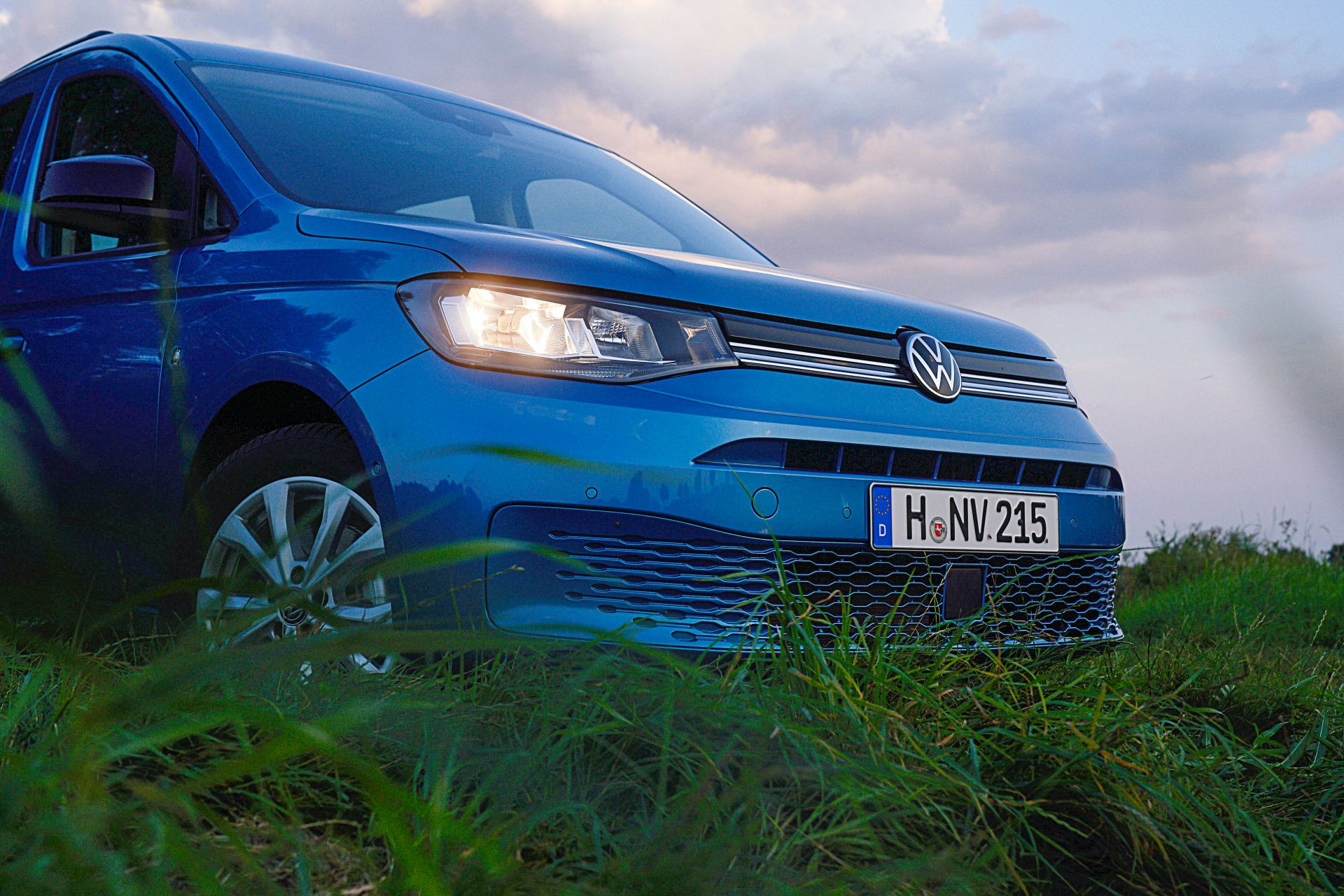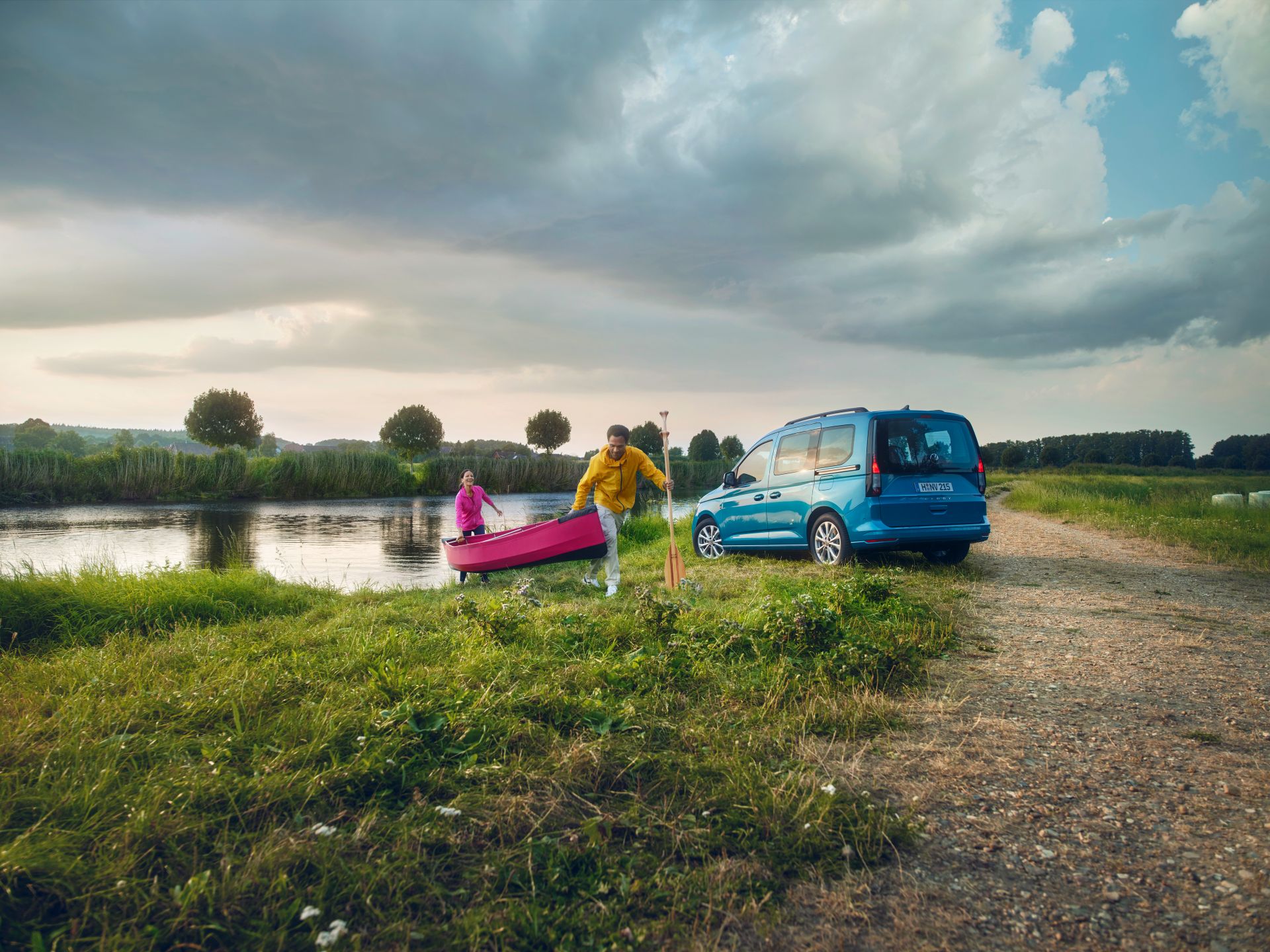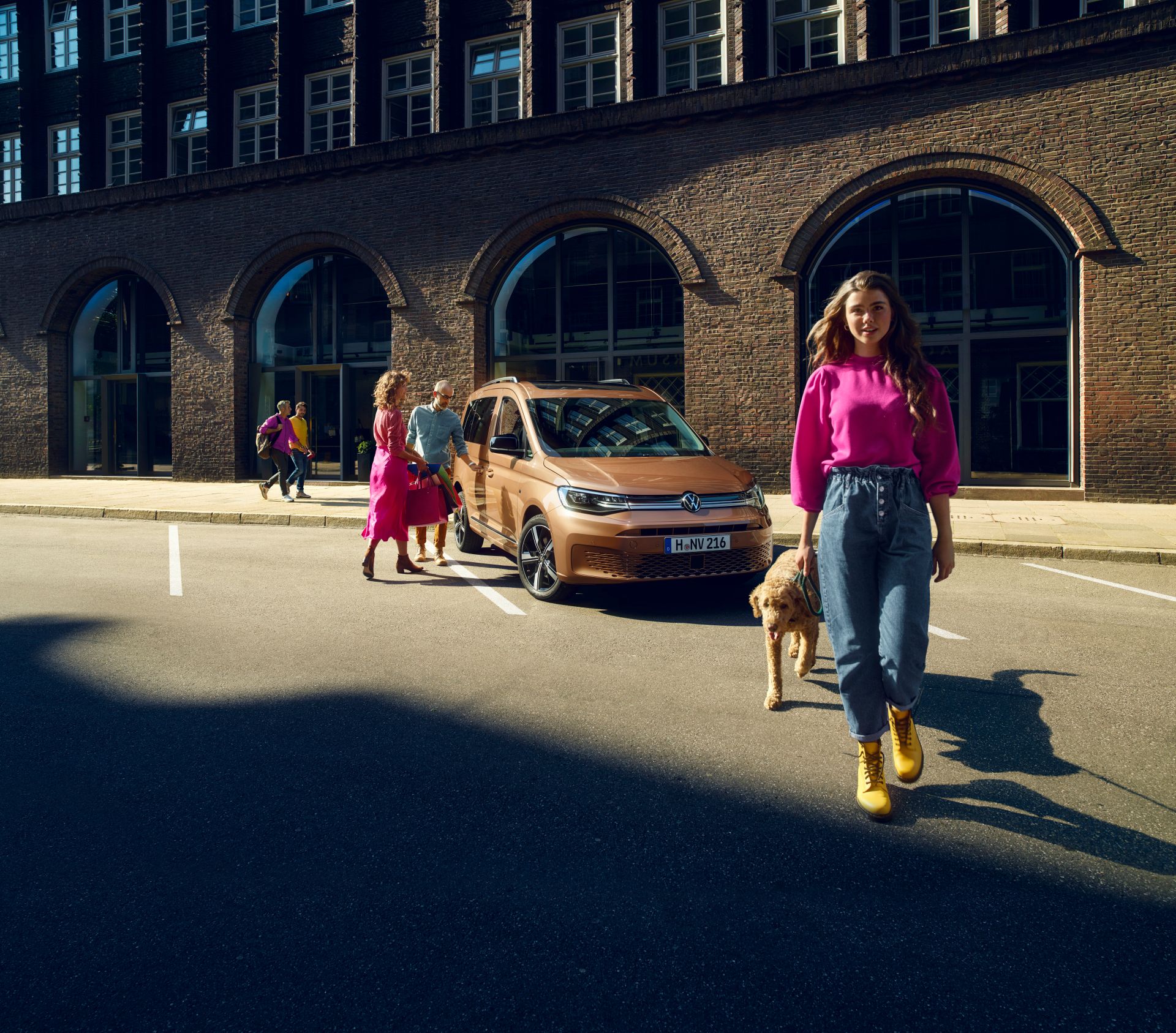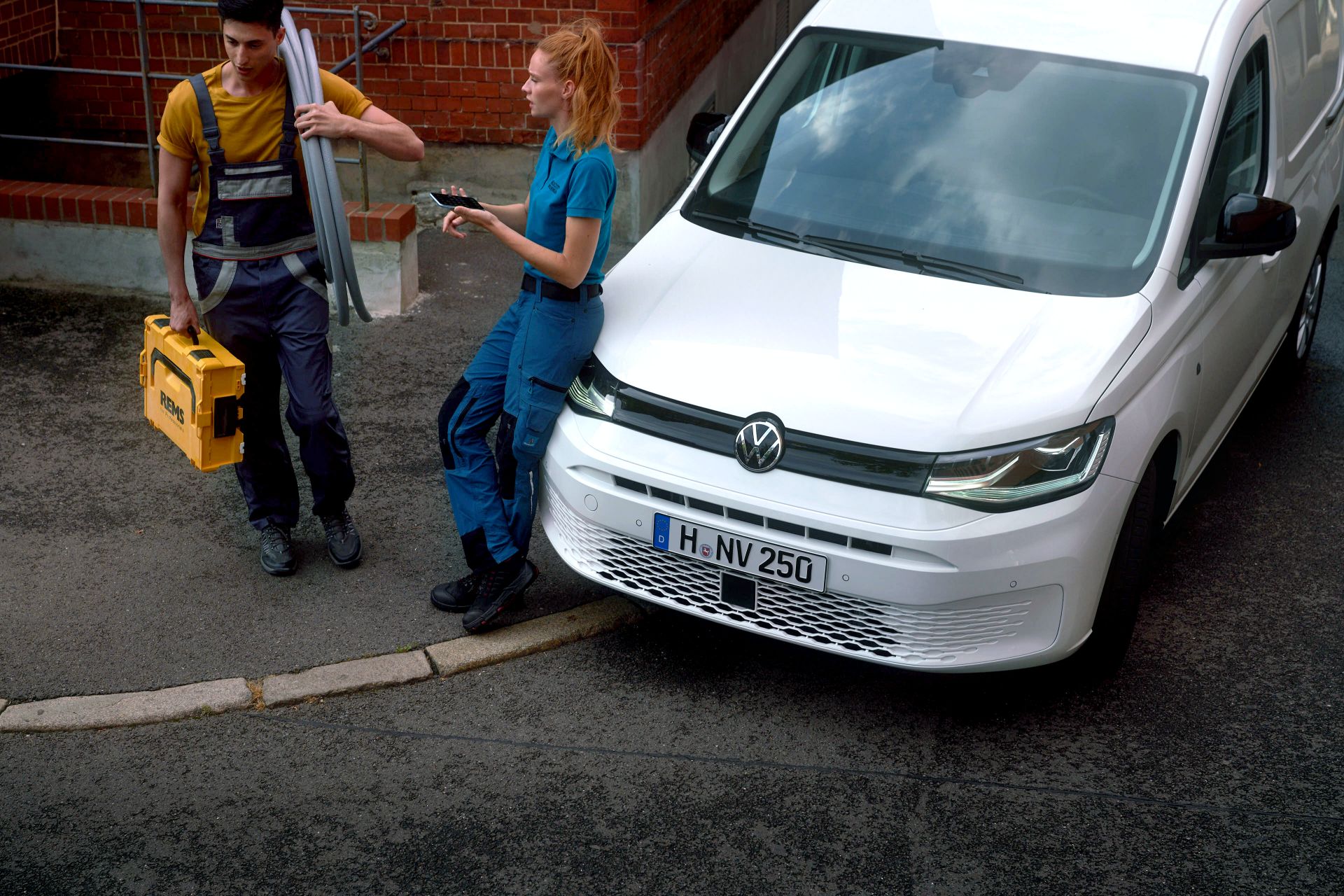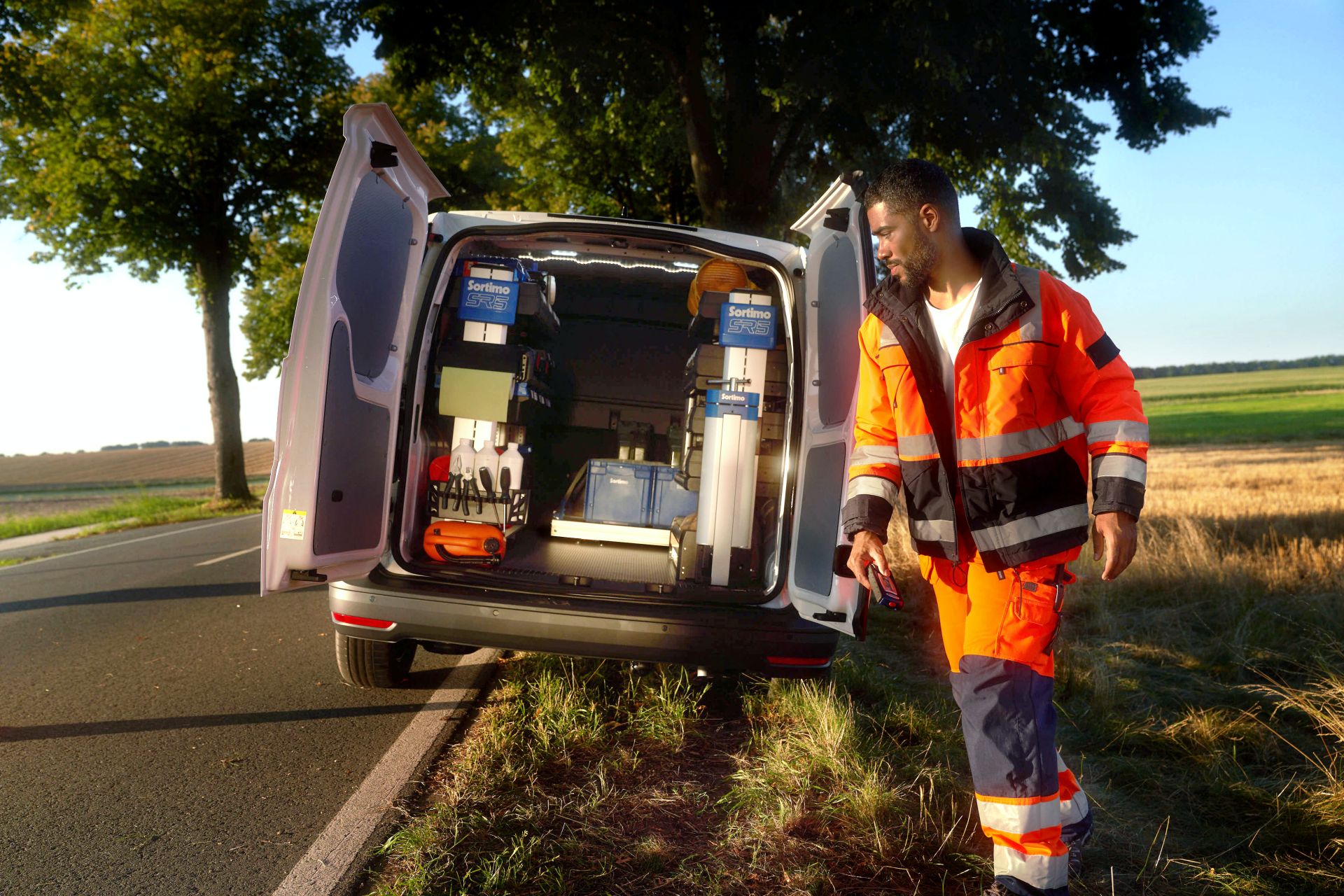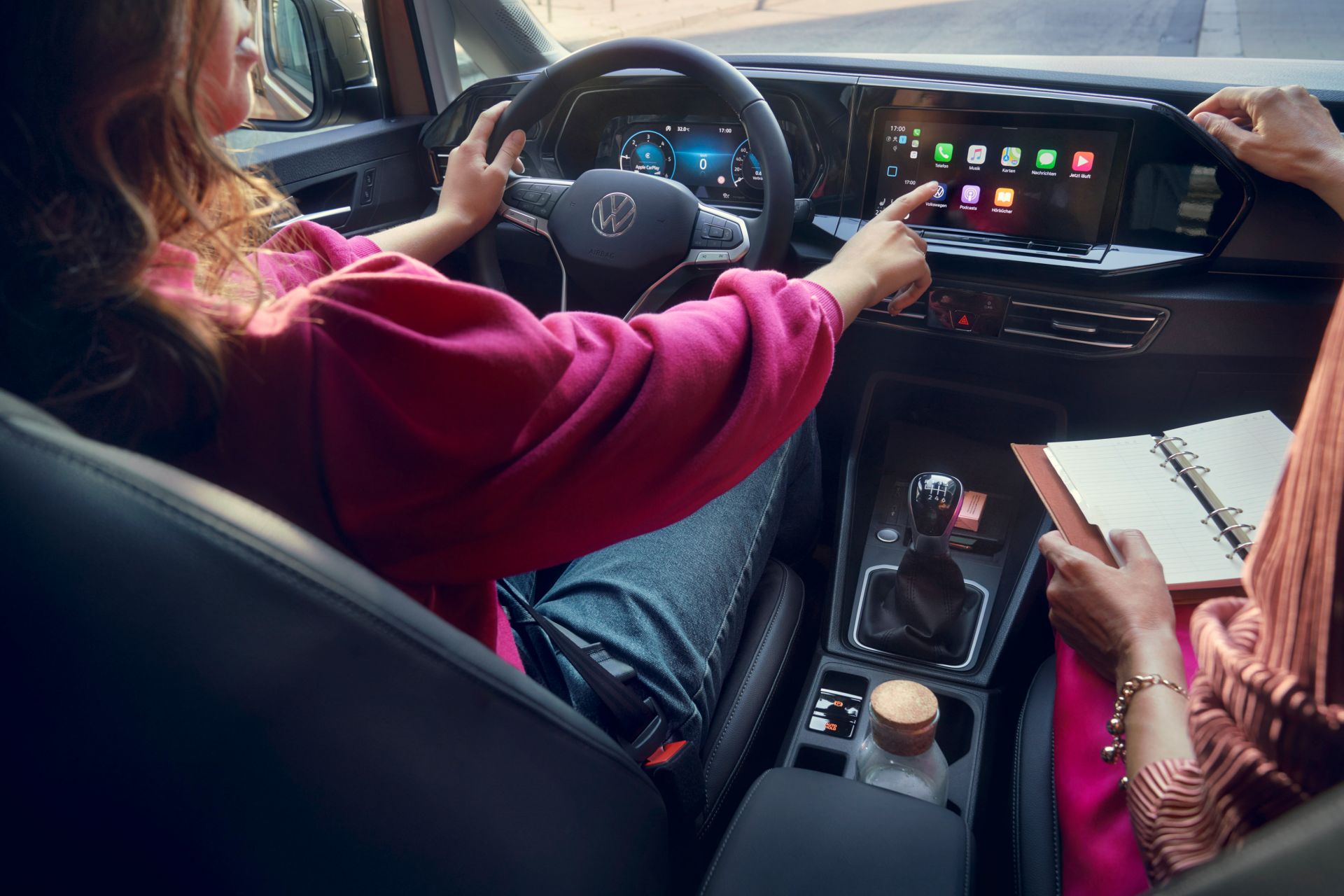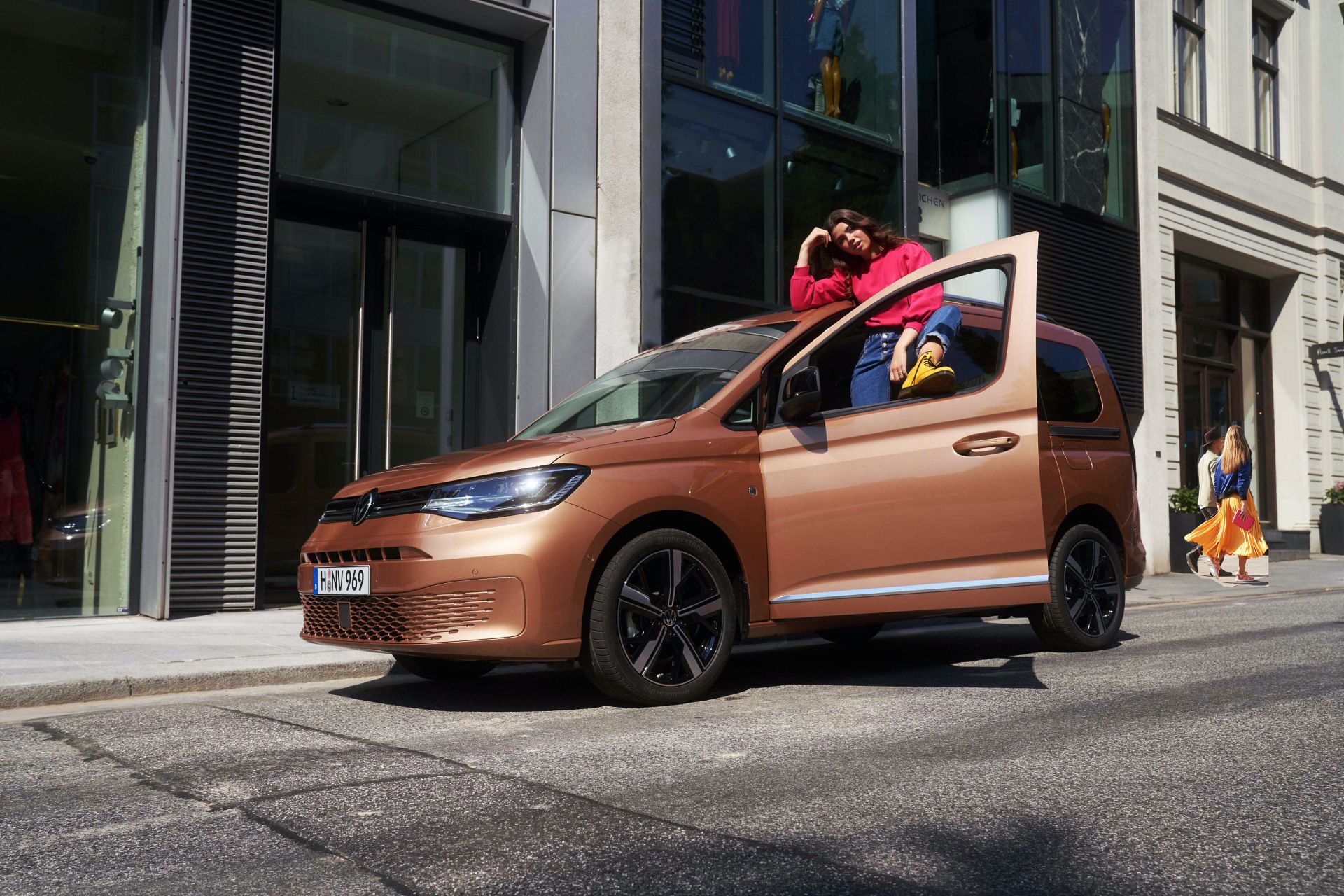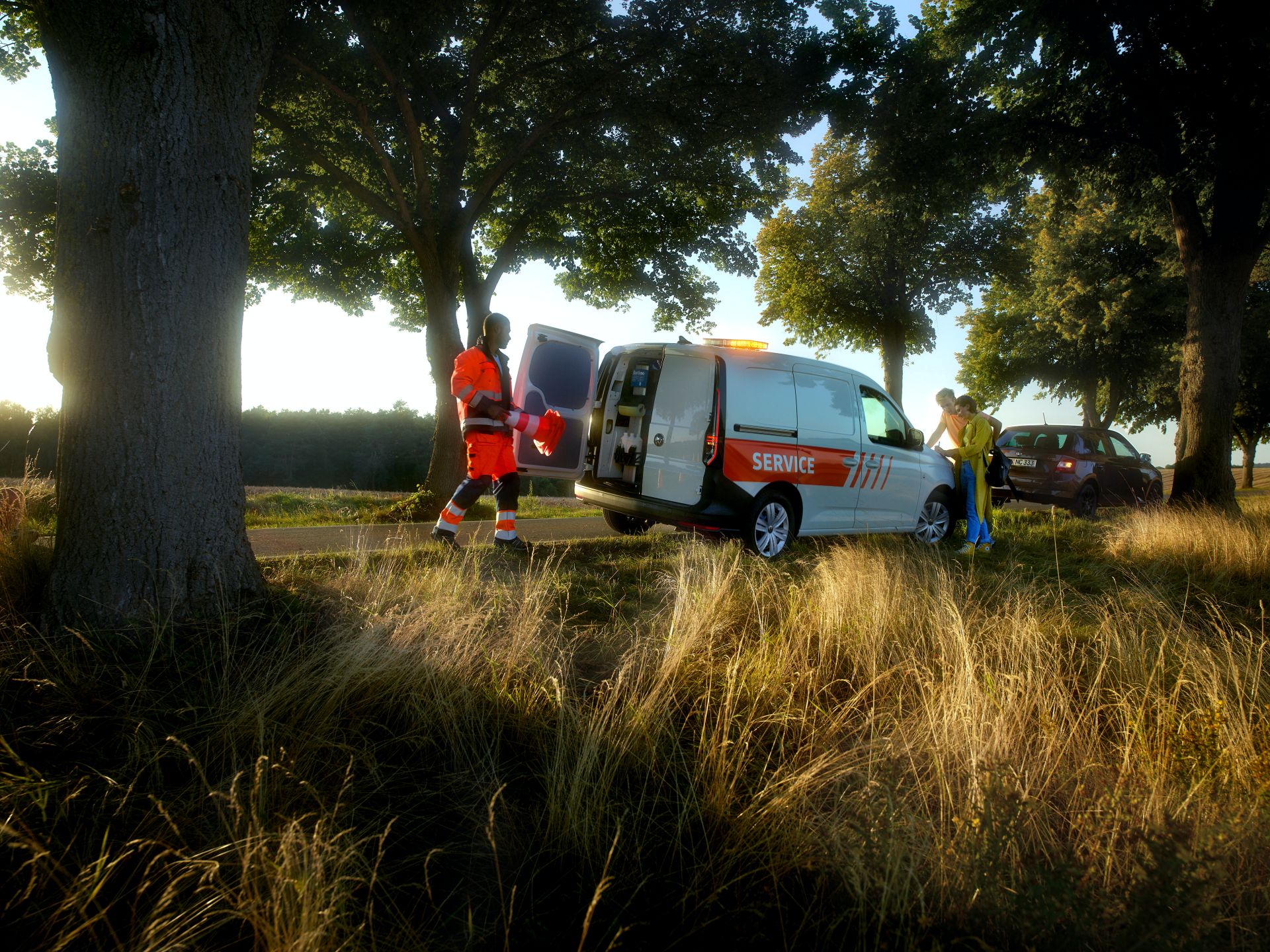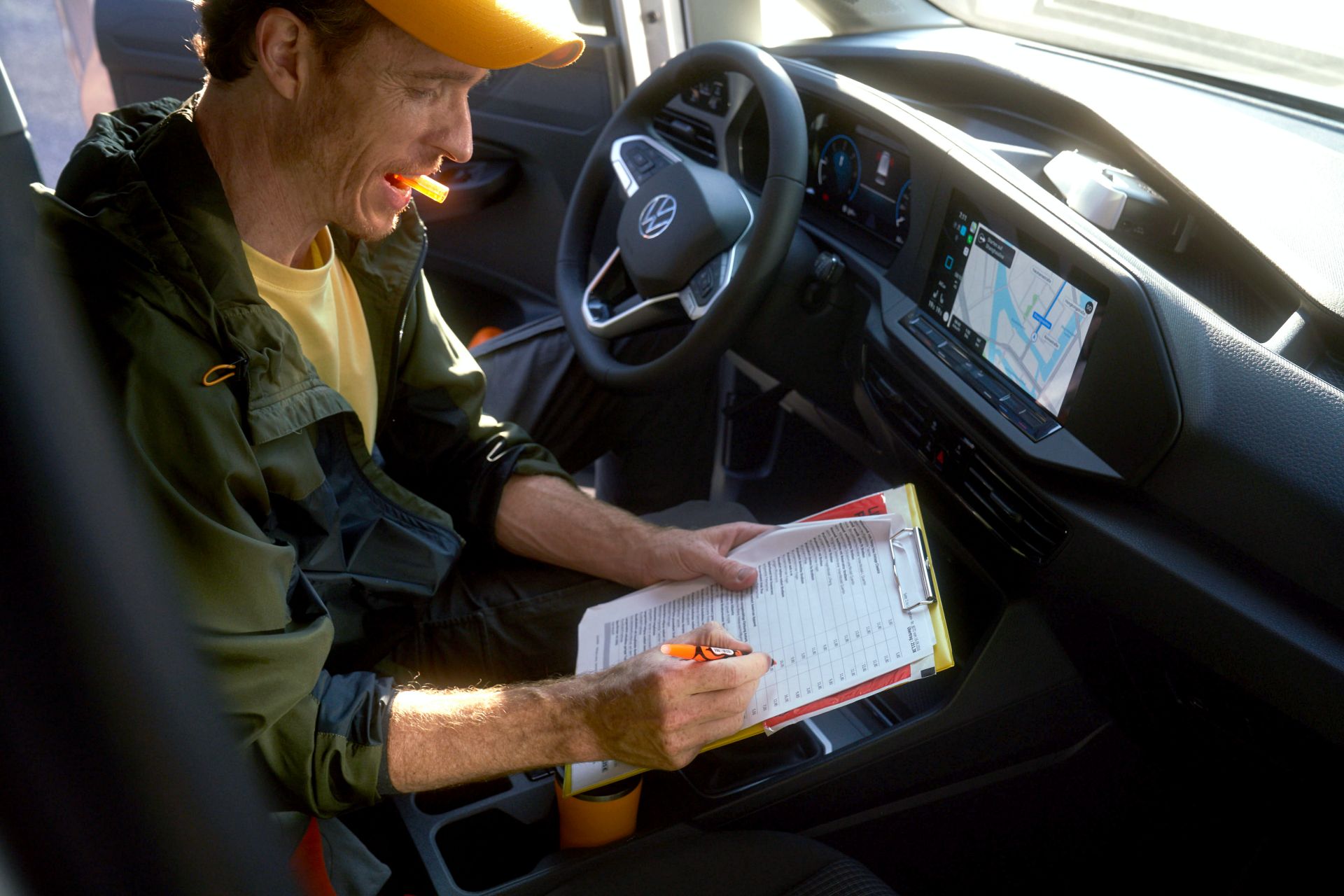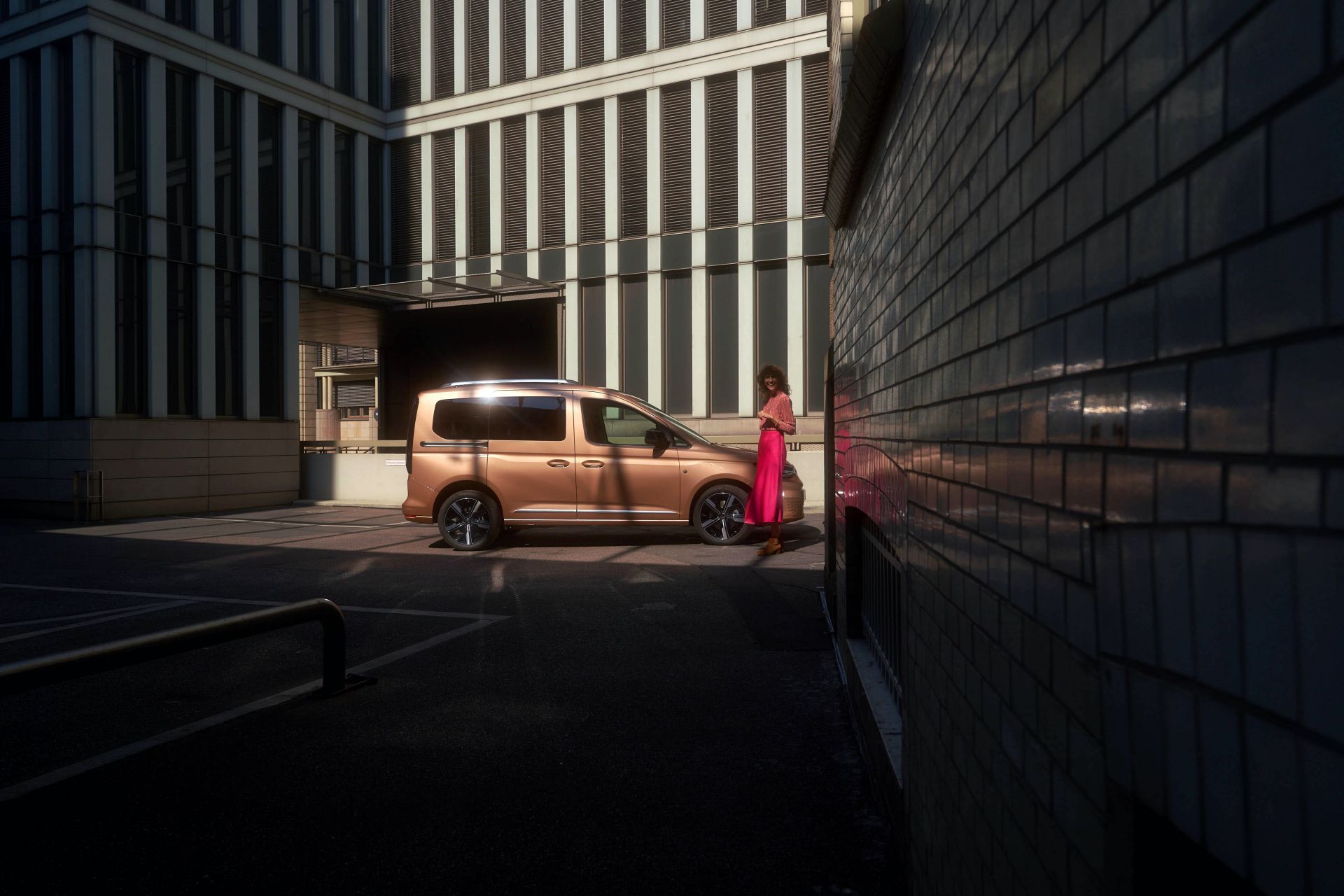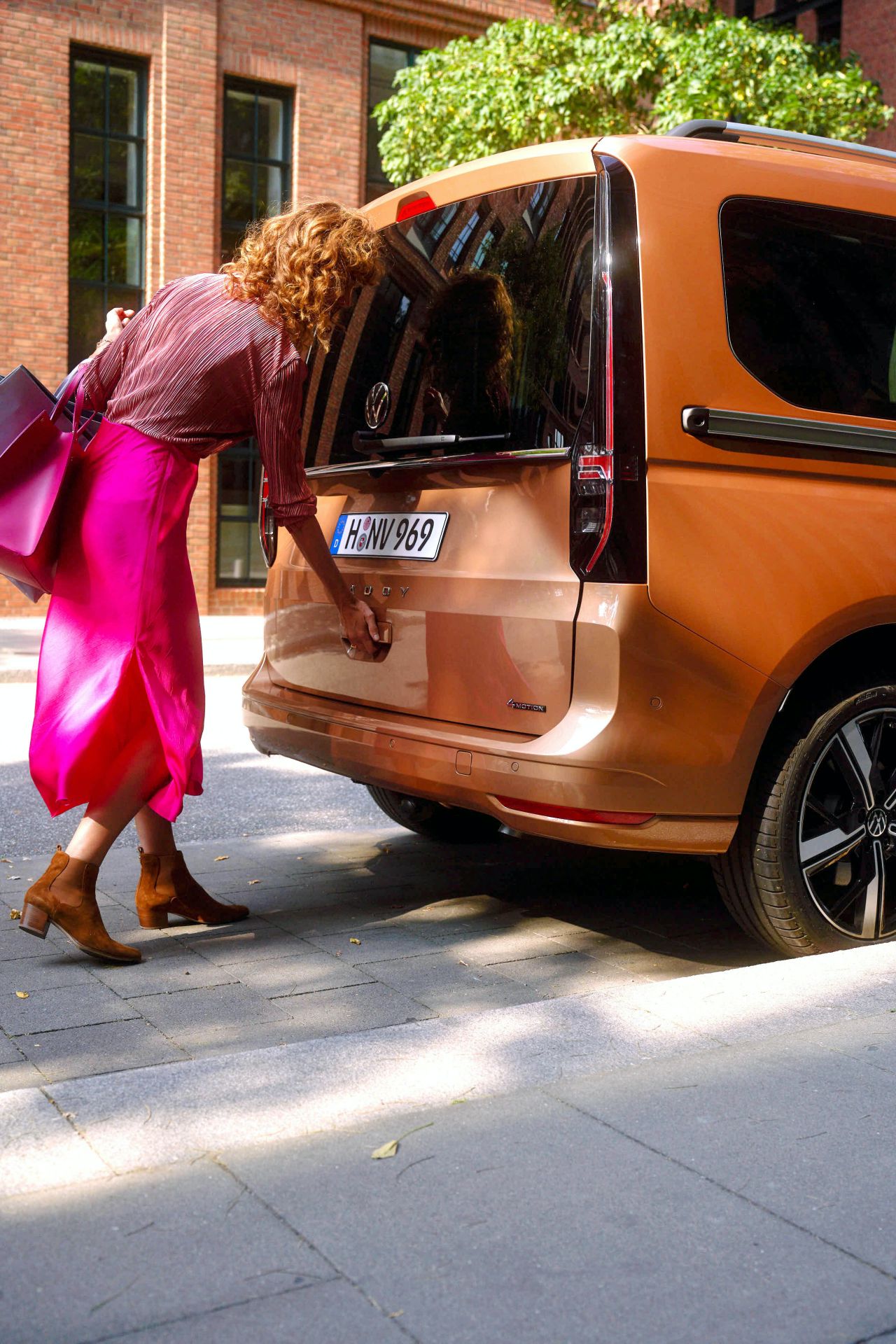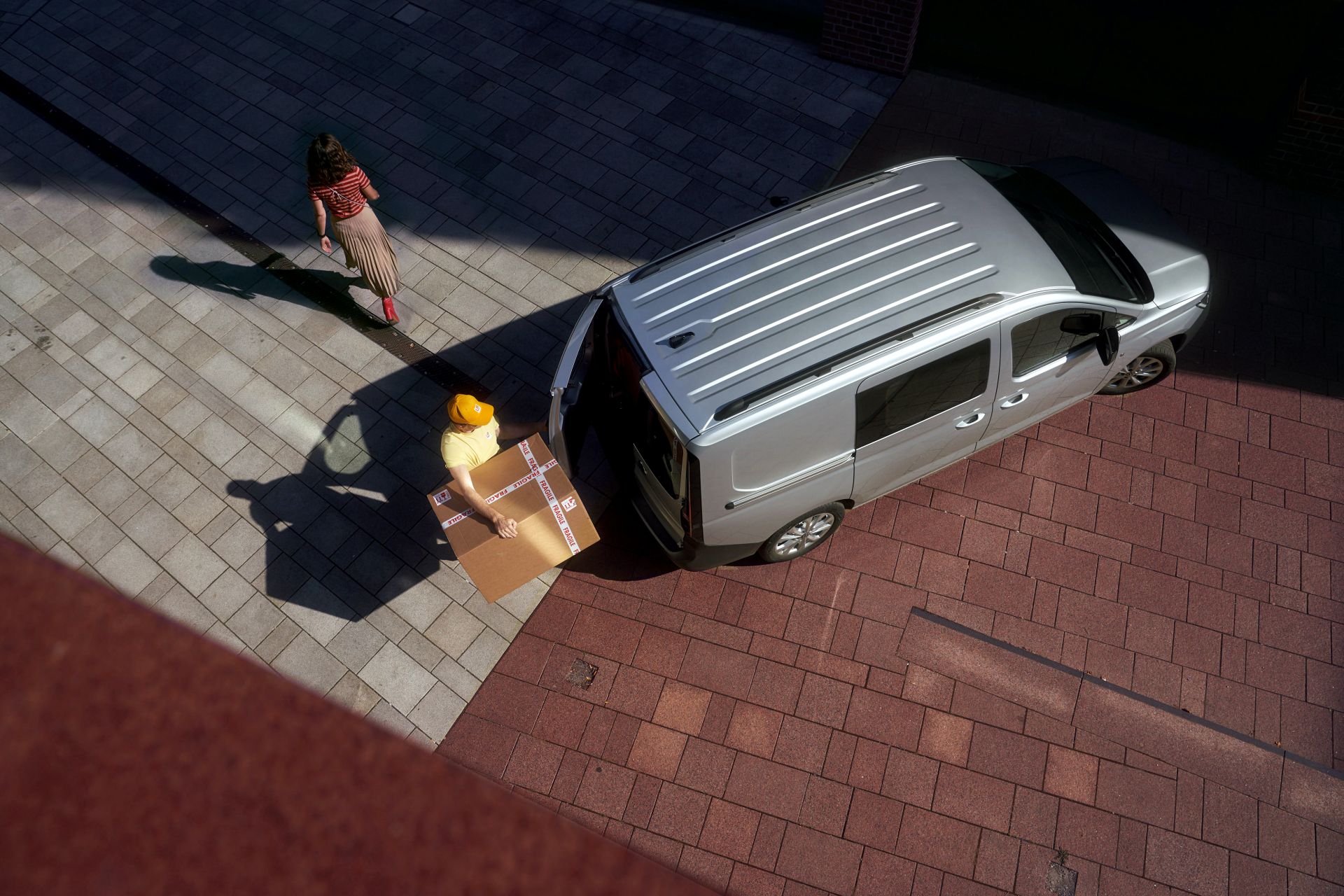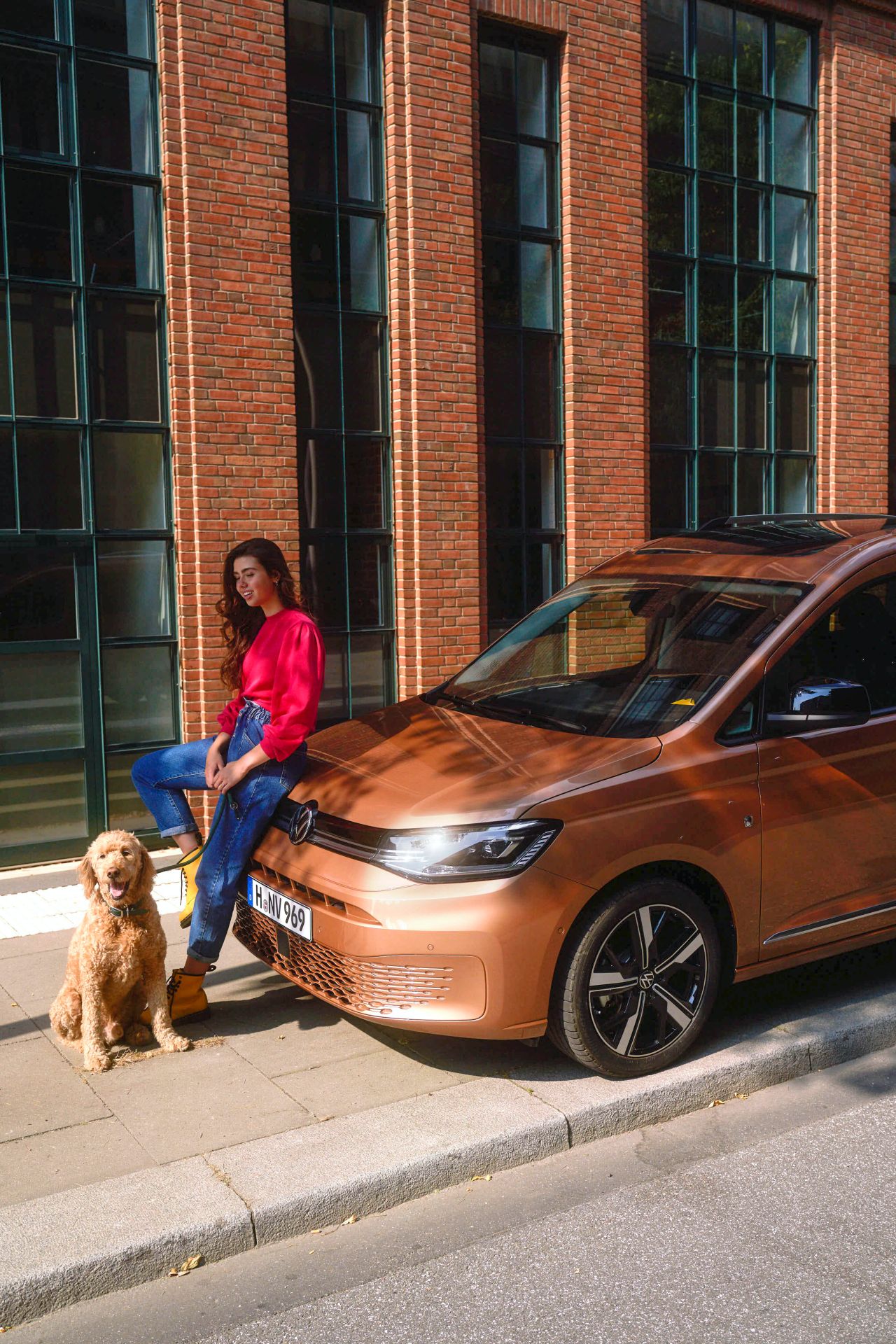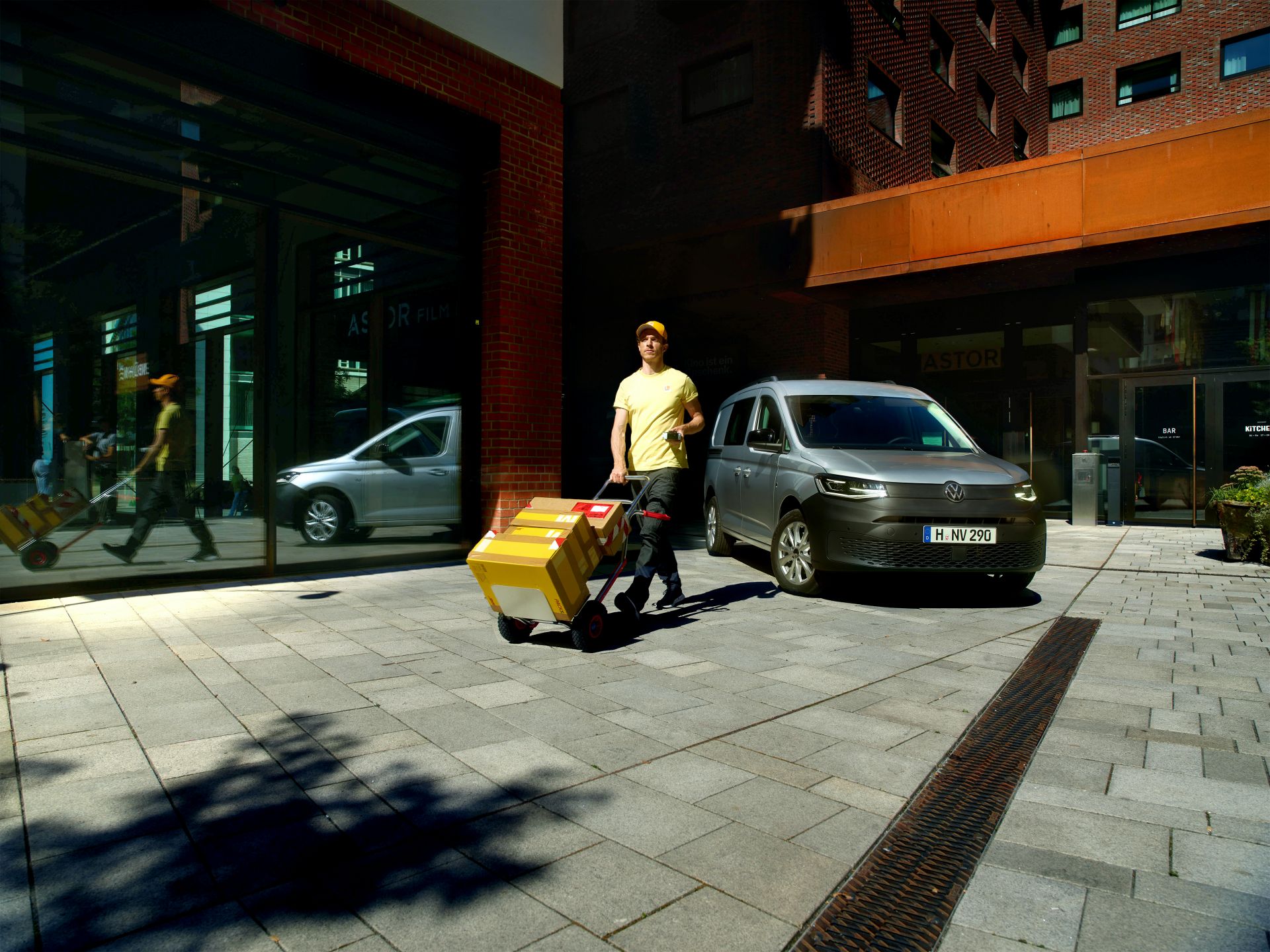After a preview in February this year, the fifth-generation VW Caddy will launch in late November in select European markets as an estate (Kombi), family MPV, Cargo delivery van and California camper.
To mark the occasion, the automaker has released a boatload of images that detail the diverse lineup, which for the first time is based on the modular transverse matrix (MQB) – just like the Golf Mk8 and many other VW Group products. The switch to MQB has enabled VW to offer new tech to the Caddy lineup, including Travel Assist, the new oncoming vehicle braking when turning function, connected infotainment systems and digitalized controls.
See Also: How The VW Caddy Evolved Over Four Decades And Five Generations
VW will offer the estate and MPV in Kombi, Caddy, Life, Style and Move trim levels, while the delivery van will be offered in Cargo and Cargo Maxi trim levels, with the latter designating the long-wheelbase variant. Maxi versions of the Caddy people-carrier and Caddy California camper will follow next year, as will the Caddy PanAmericana crossover.
Roomier, smarter and safer thanks to the switch to the MQB platform
The switch to the MQB platform has resulted in a longer standard wheelbase compared to the outgoing model (2,755 mm / 108.5 in vs 2,682 mm / 105.6 in), while the Maxi now has a 2,970 mm (116.9 in) wheelbase. This gives the Caddy not only a roomier interior but also improved proportions and a reduced drag coefficient of 0.30 (vs 0.33).
It also gains new LED headlights and taillights, as well as 18-inch alloys for the first time. Another premiere is the ‘Keyless Access’ locking and ignition system, and the 2021 Caddy is also available with a large panoramic sunroof and electric closing aids for the sliding doors and rear hatch.
Inside, the Caddy offers 3.1 cubic meters (109.5 cu ft) of cargo space, and 3.7 cubic meters (130.6 cu ft) in the Cargo Maxi. Combined with a fully redesigned rear axle, this allows a Euro pallet to be loaded sideways in the back of the Caddy Cargo. The Cargo Maxi can now take two Euro pallets, thanks to the maximum cargo length of 2,150 mm (84.6 in) up to the bulkhead (1,797 mm / 70.7 in for the Caddy Cargo).
Powertrains: Three TDI diesels, a TSI petrol, a TGI natural gas and an eHybrid PHEV
MPV and estate versions come with five seats as standard, with a third row of two individual seats available as an option for both short- and long-wheelbase variants. The estate and family MPV models offer a luggage space of up to 2,556 liters (90.2 cu ft) loaded up to the roof with the second and third row of seats taken out. With five people on board, the luggage space is still an impressive 1,213 liters (42.8 cu ft) loaded up to the height of the seat backs.
The engine lineup consists of three 2.0-liter TDI four-cylinder diesels in 75 PS (74 HP), 102 PS (100 HP) and 122 PS (120 HP) versions. VW will also offer a 1.5-liter TSI turbocharged petrol engine rated at 114 PS (112 HP), a TGI turbocharged natural gas engine delivering 130 PS (128 HP), and an eHybrid plug-in hybrid drive. All engines feature standard six-speed manual transmissions, with a seven-speed DSG available on high-spec models with the 120 HP diesel or 112 HP petrol.
The VW Caddy goes on sale at the end of November in Germany, Austria and Poland, followed later on by all other European countries, and then by export markets such as Israel, South Africa and Australia. From spring 2021, customers will be able to buy the Caddy, including the California, equipped with 4Motion AWD. Finally, the high-riding PanAmericana will arrive later in the year as the successor to the Caddy Alltrack.
Prices in Germany start from €20,862 ($24,725) for the 2021 Caddy Cargo and €25,044 ($29,680) for the Caddy estate.



